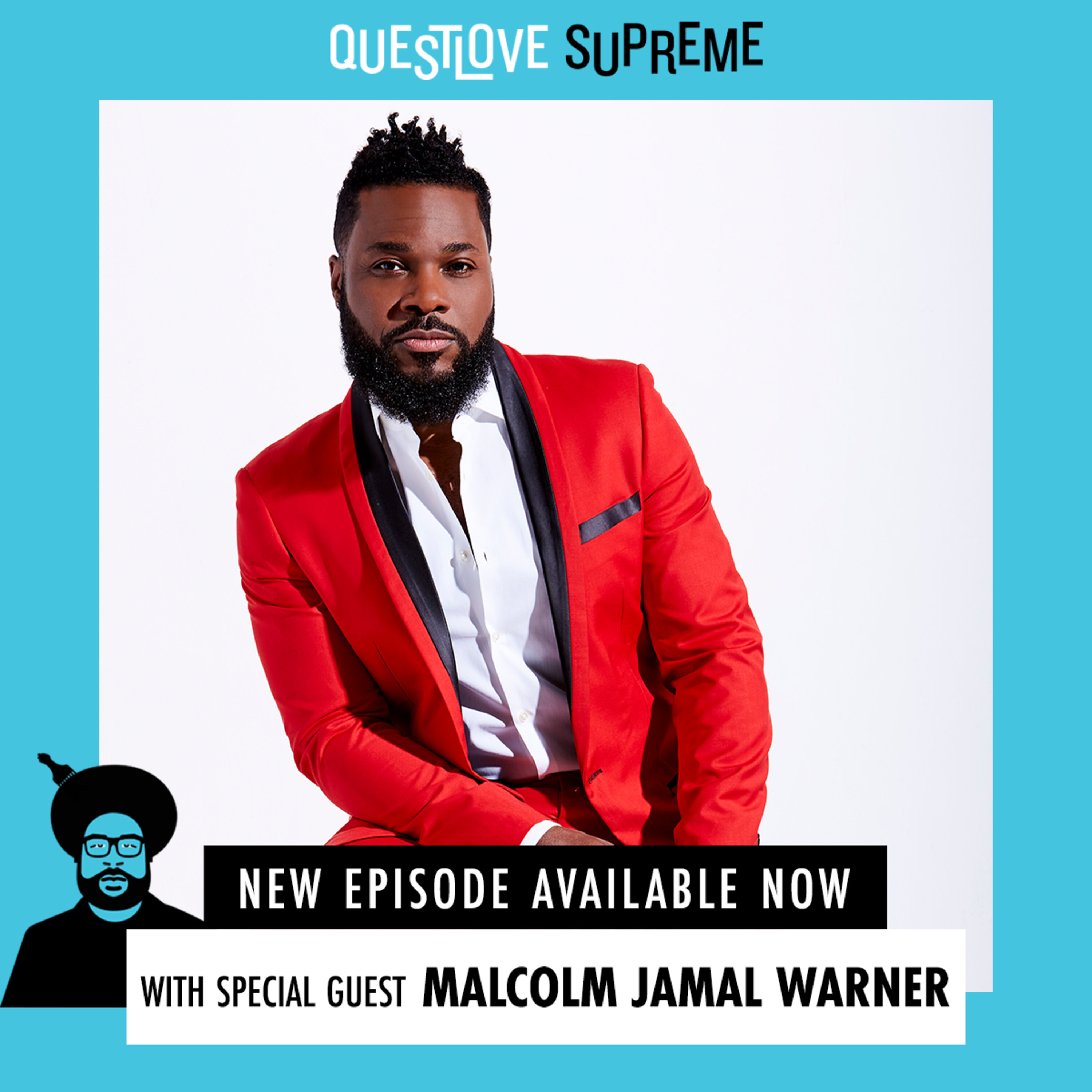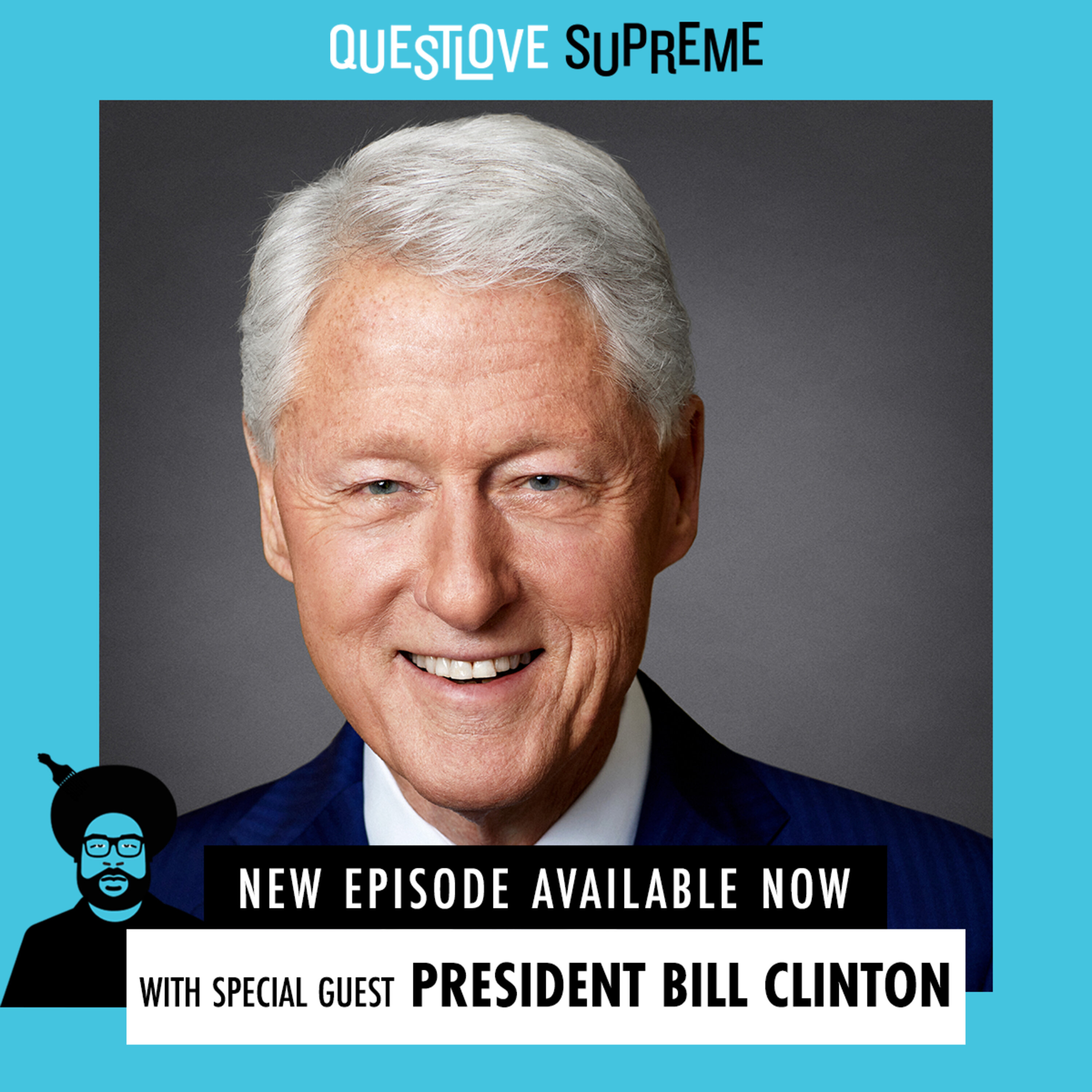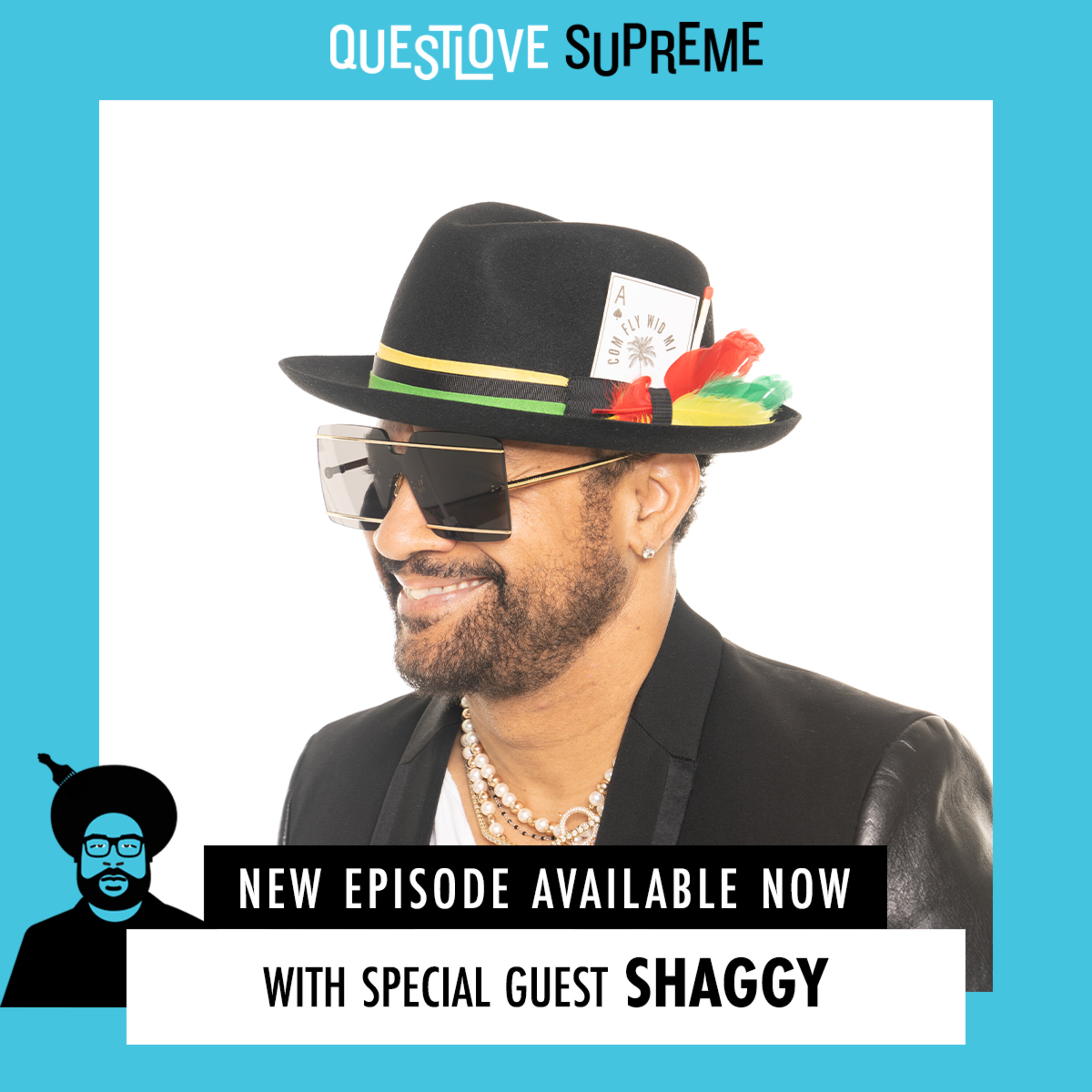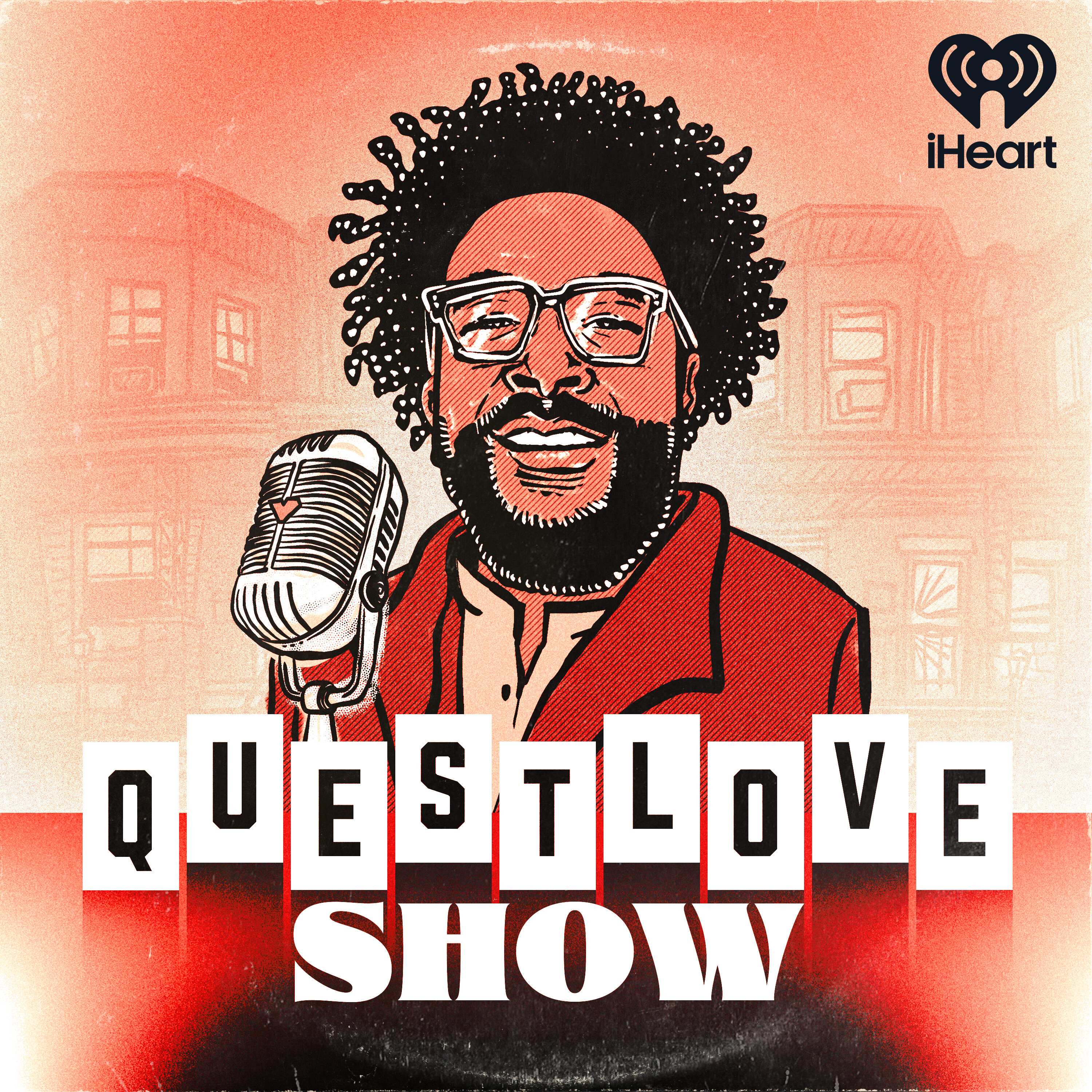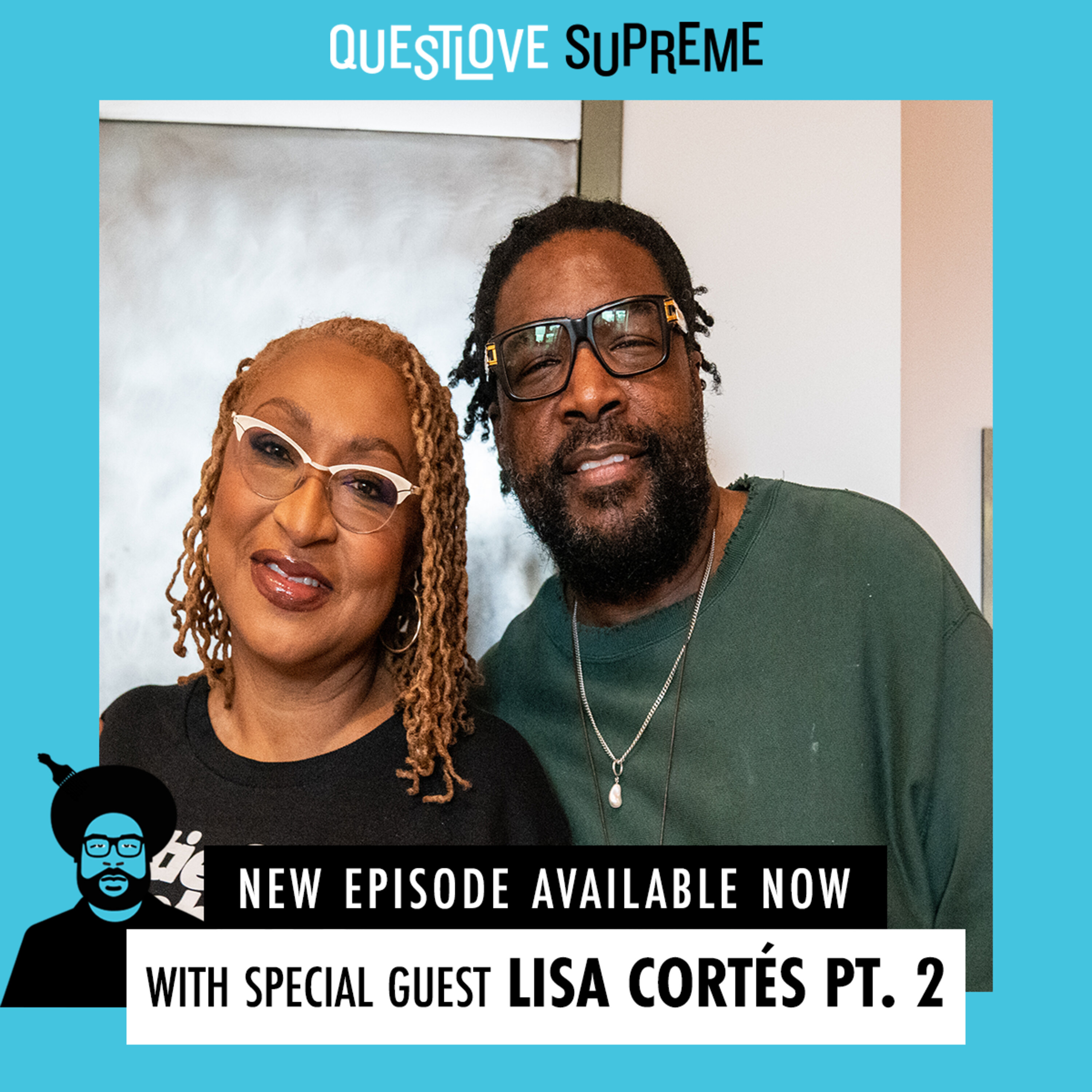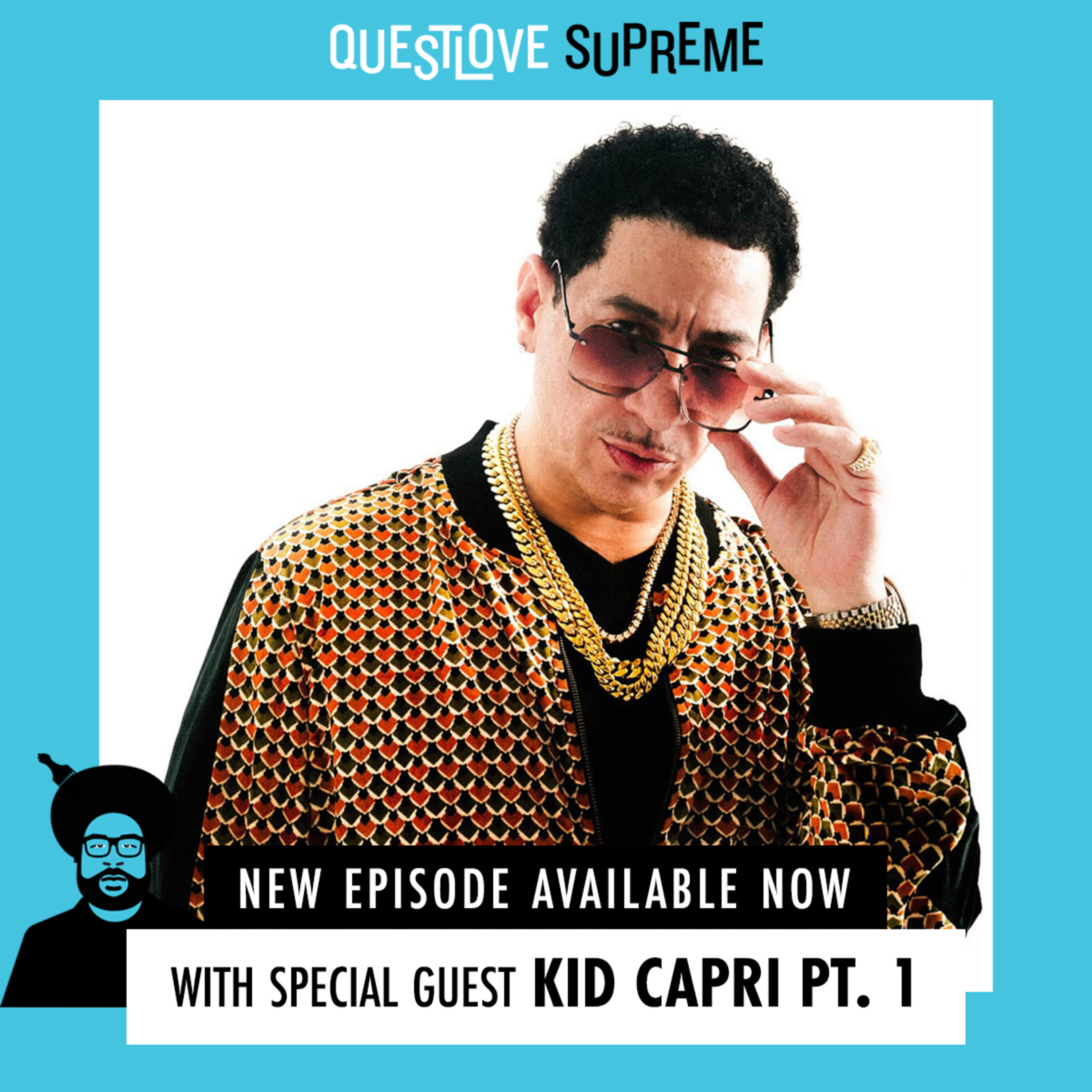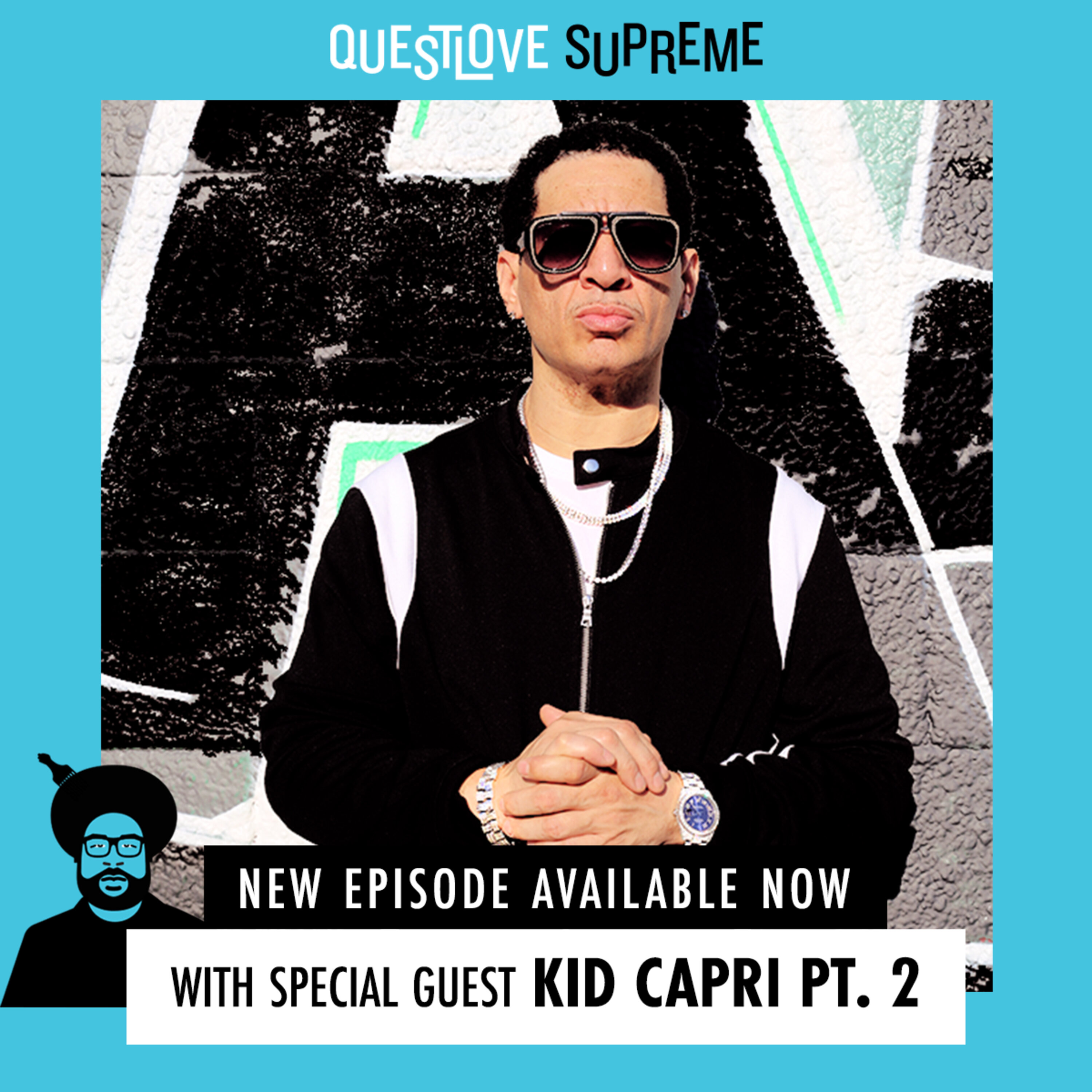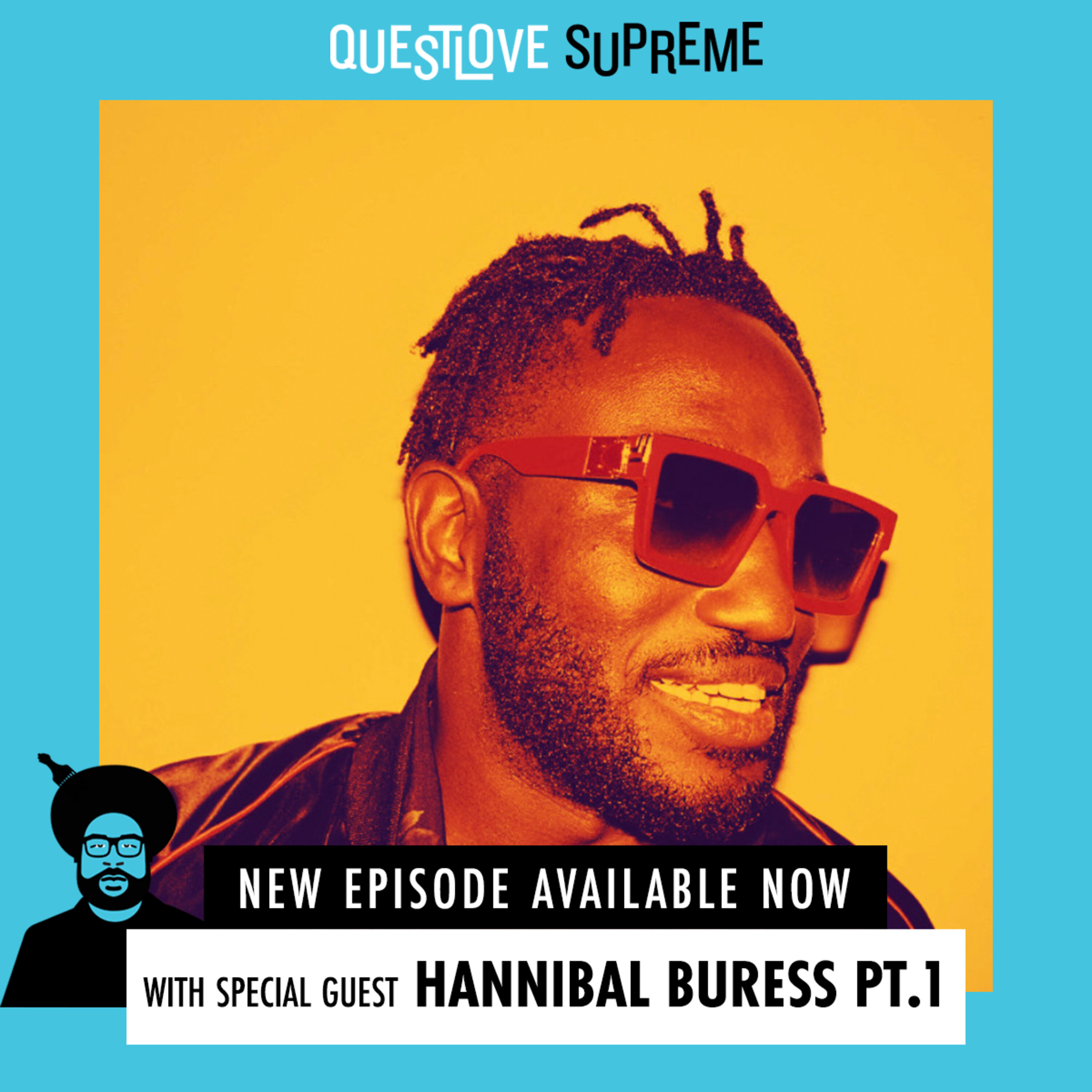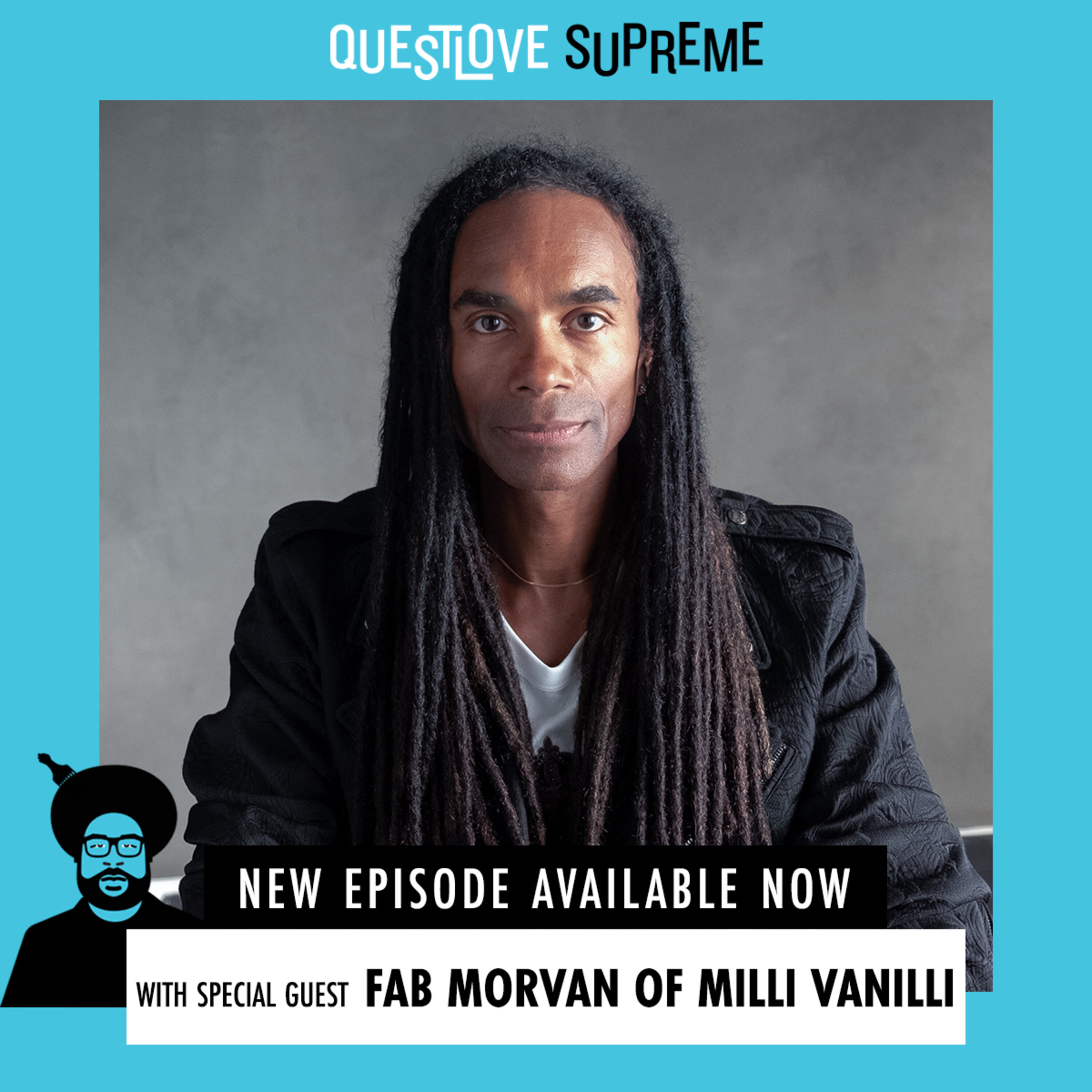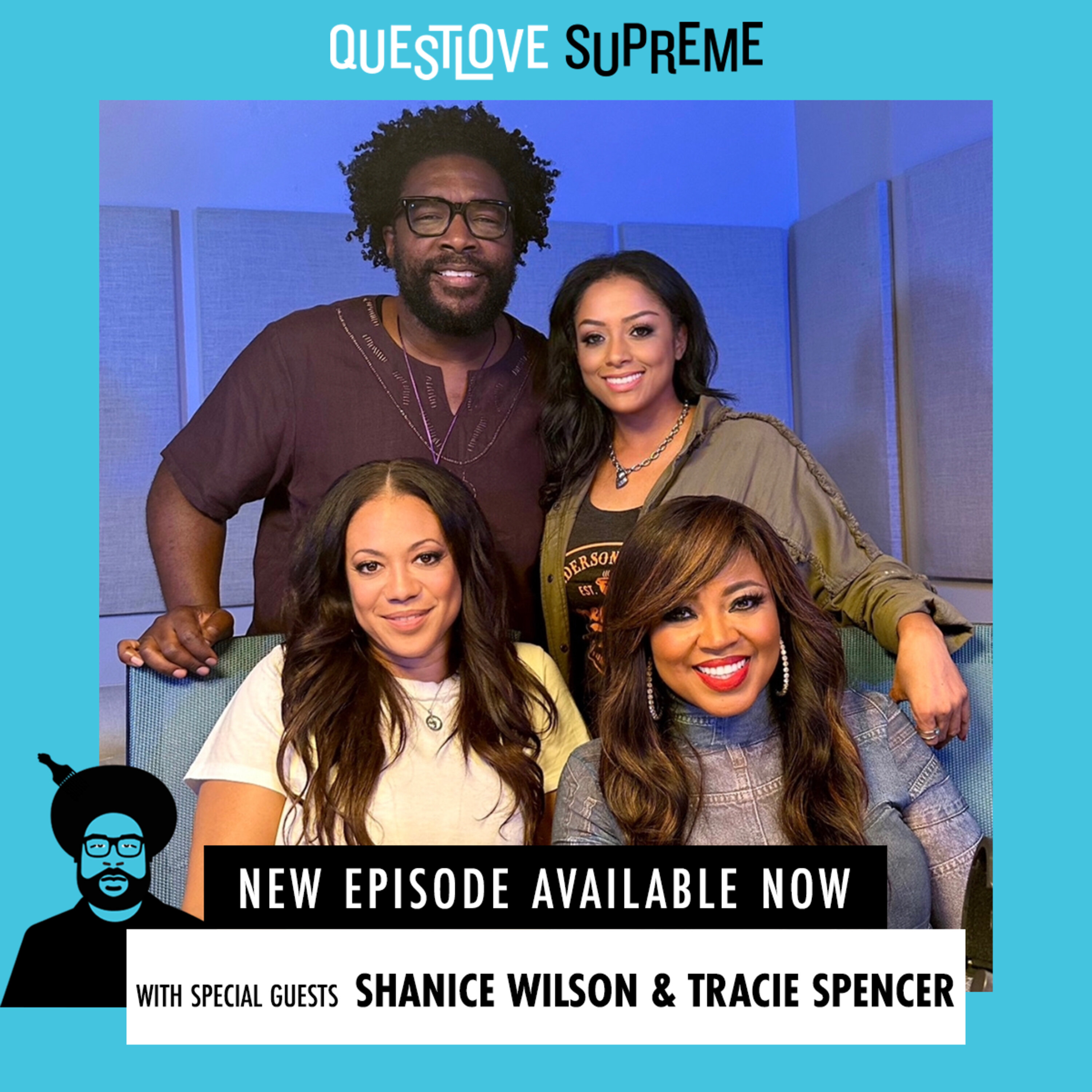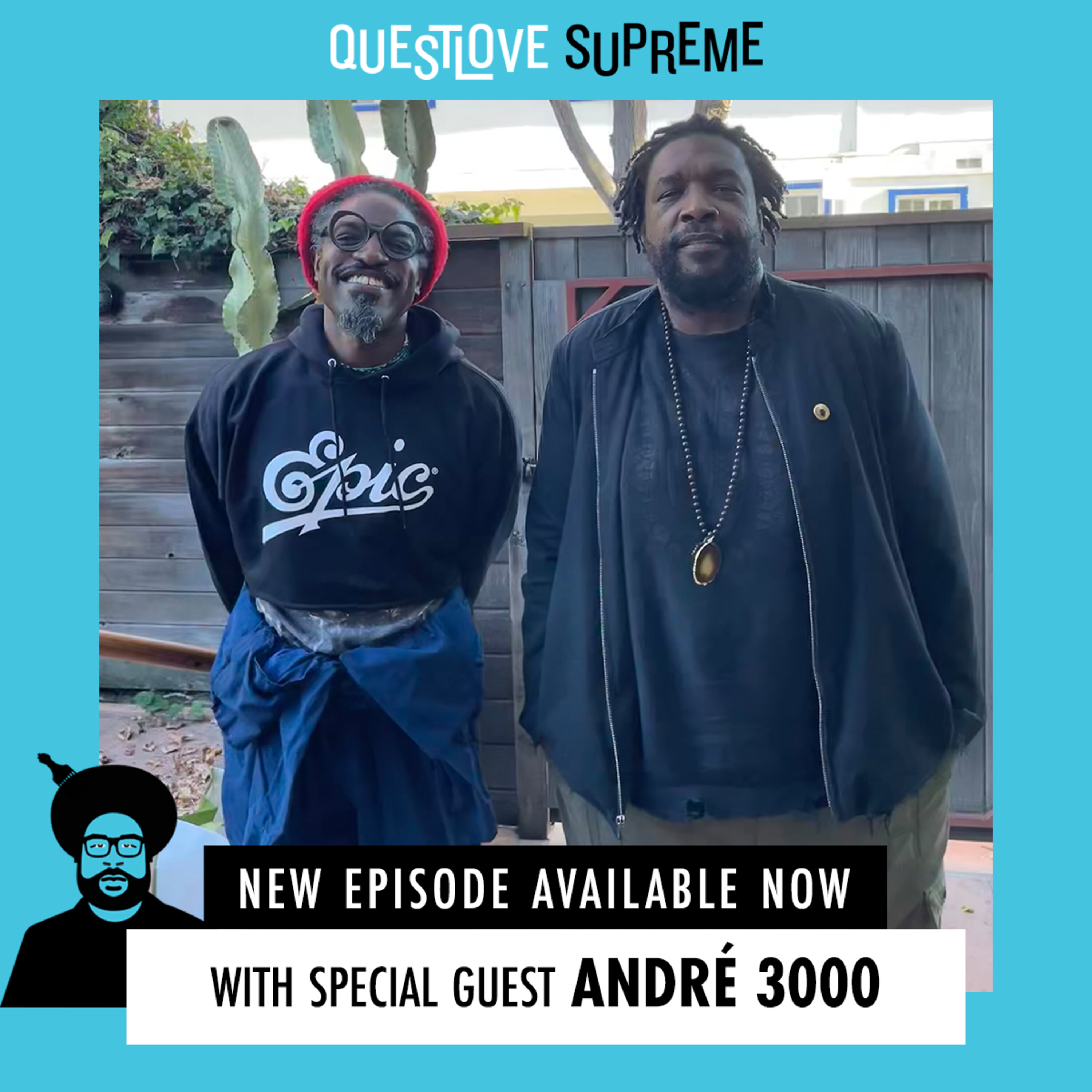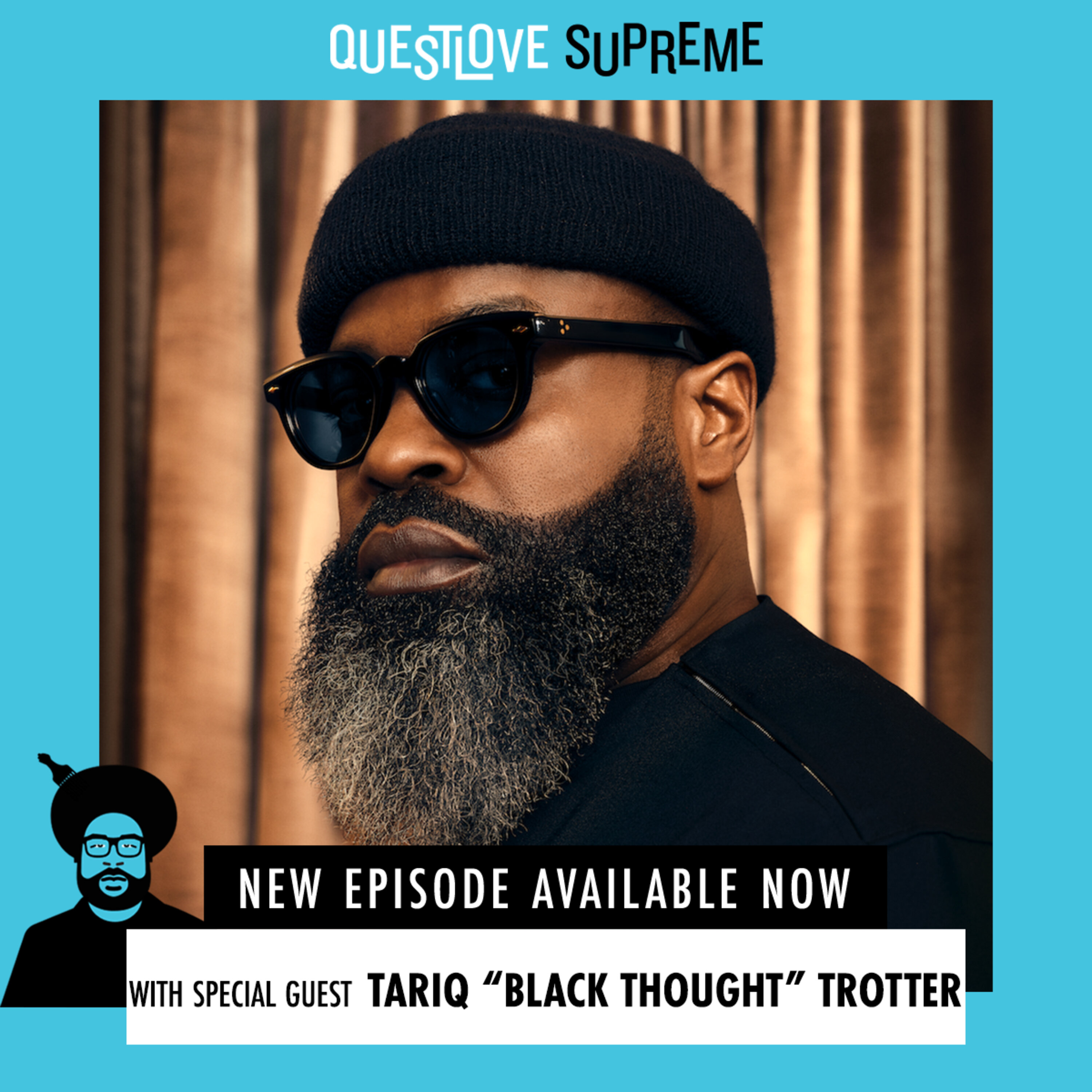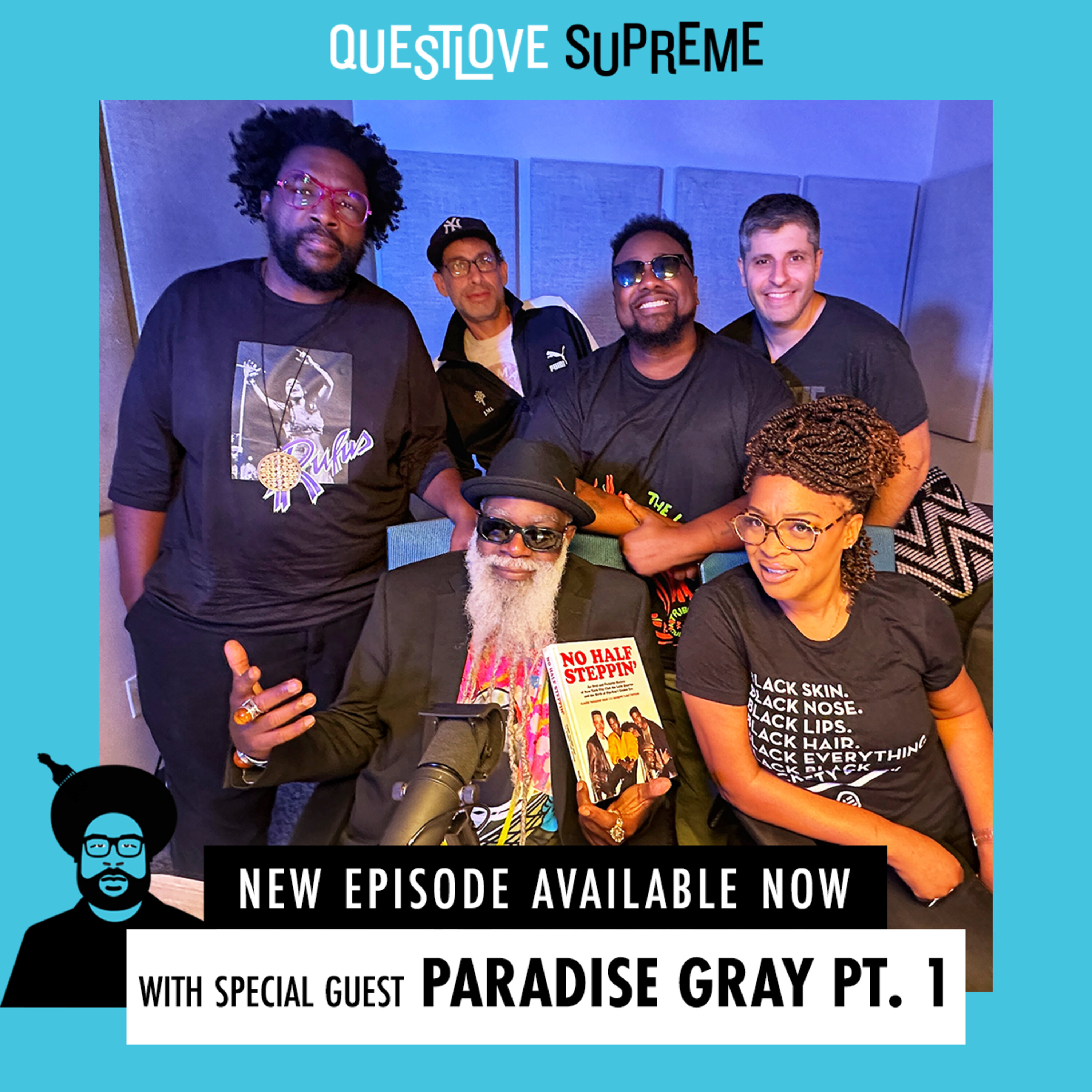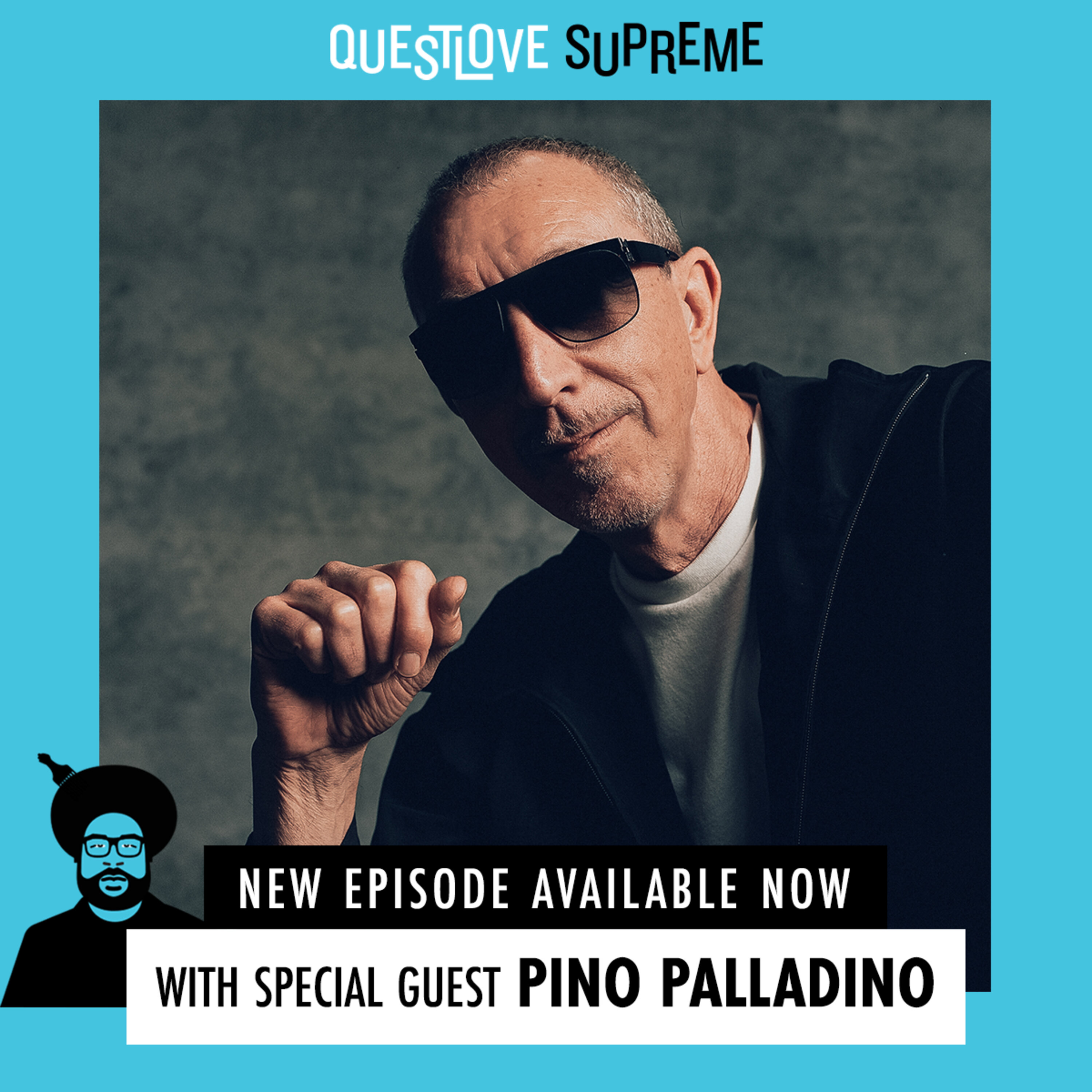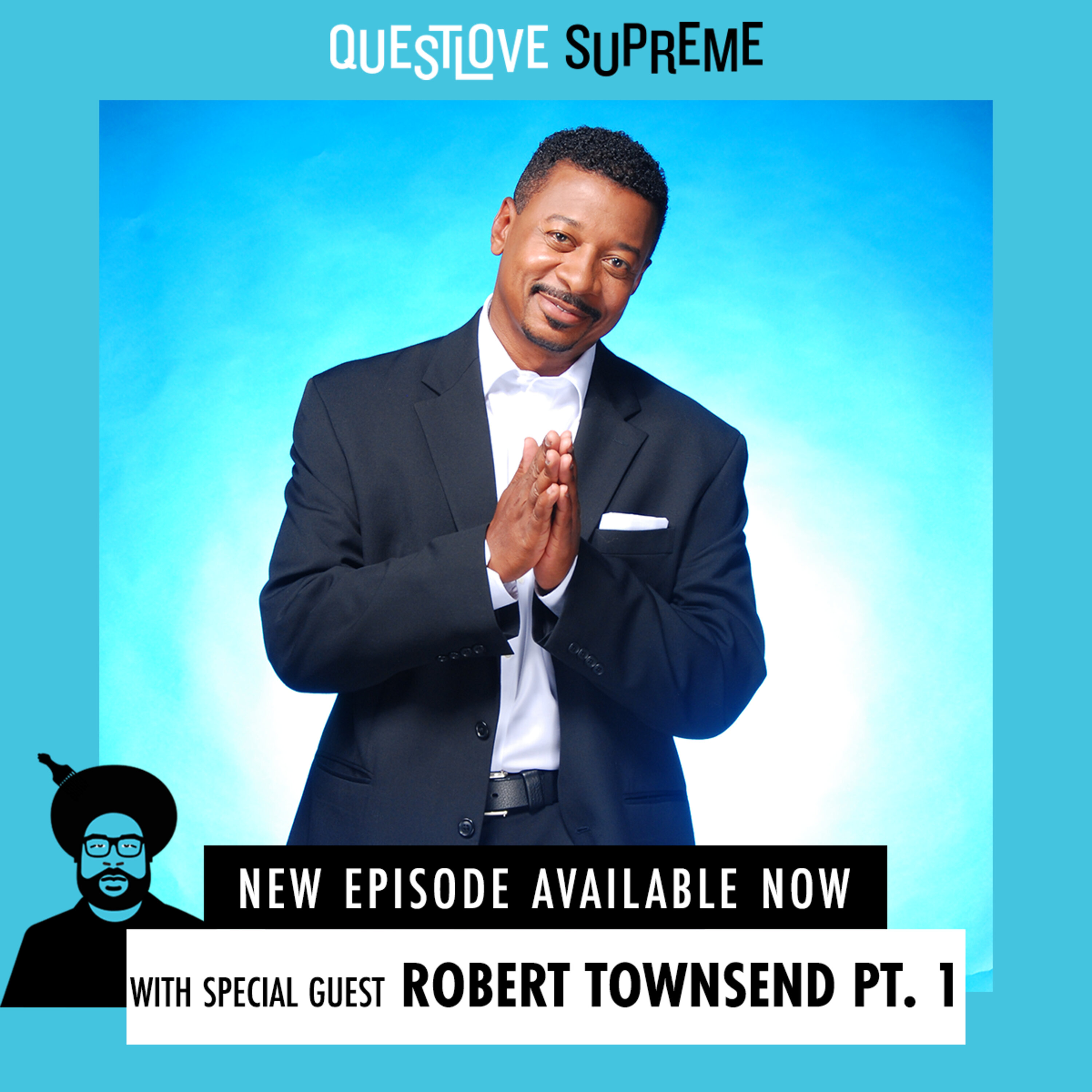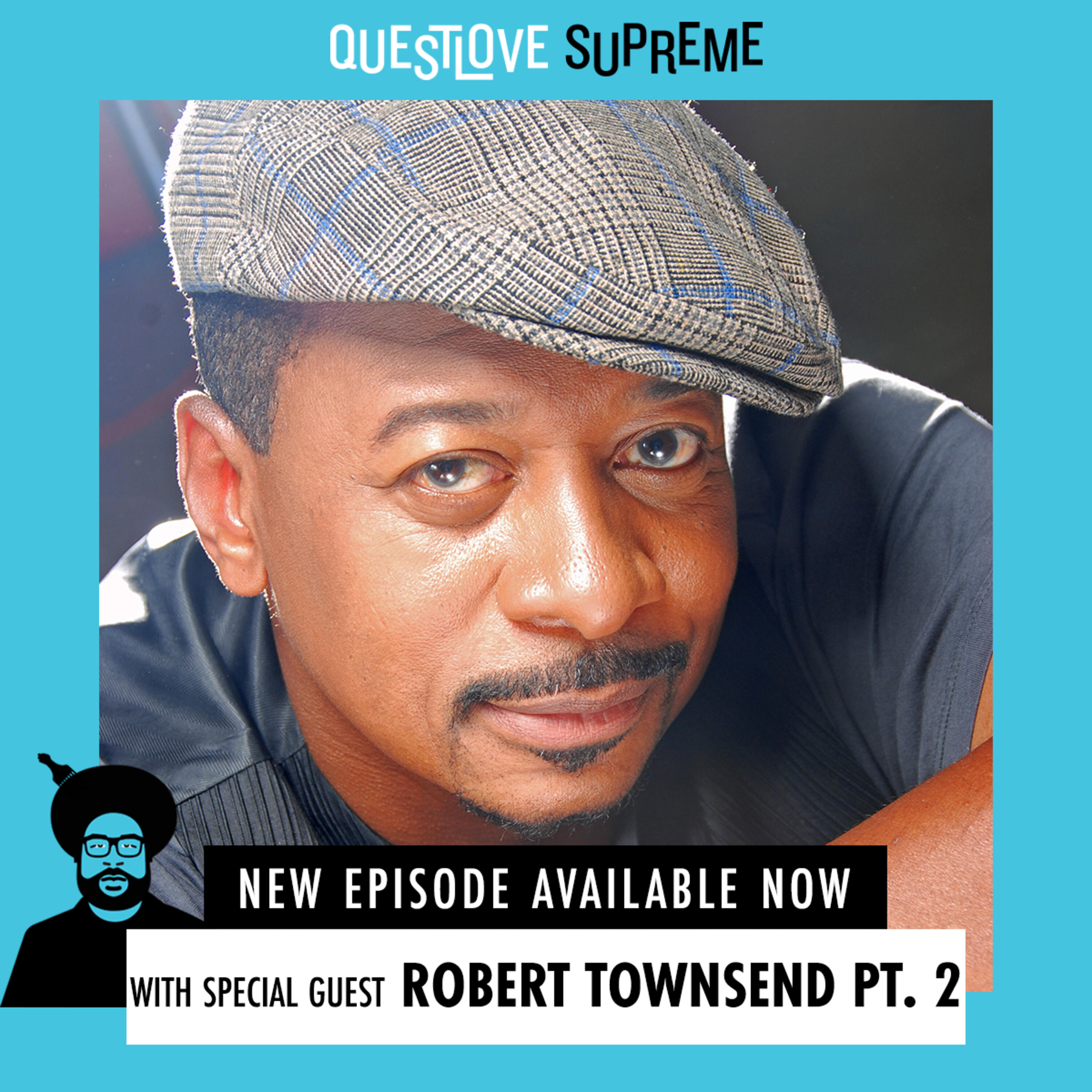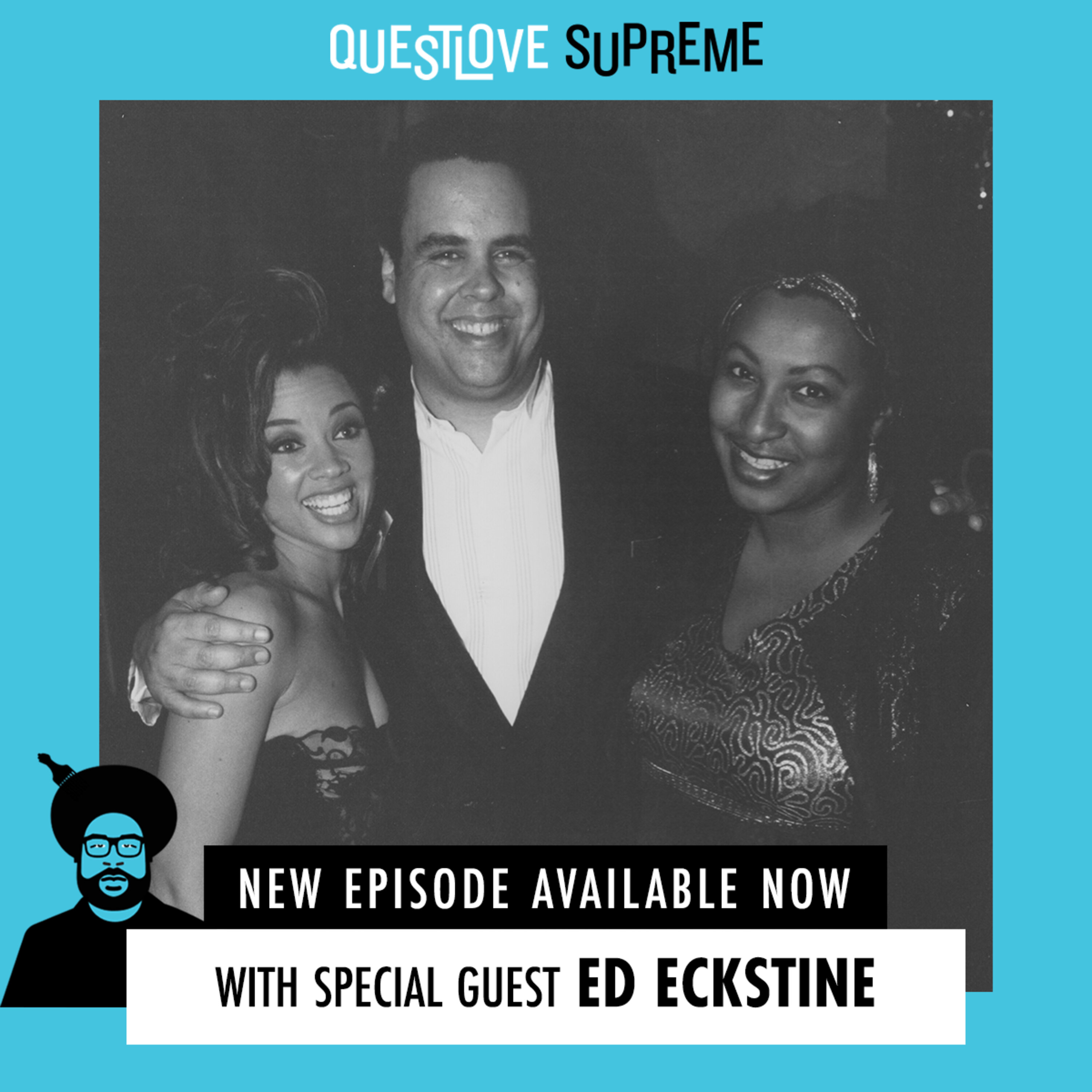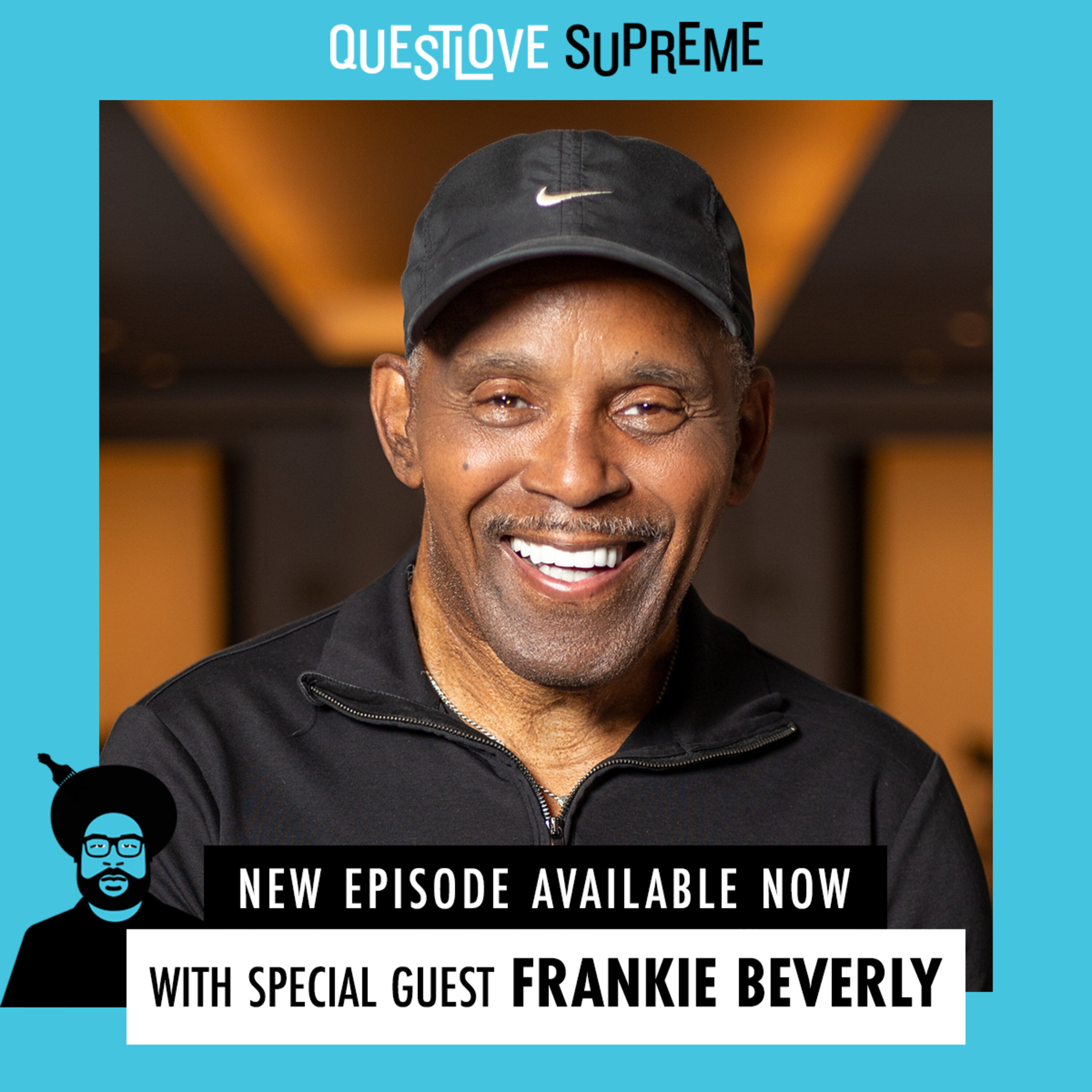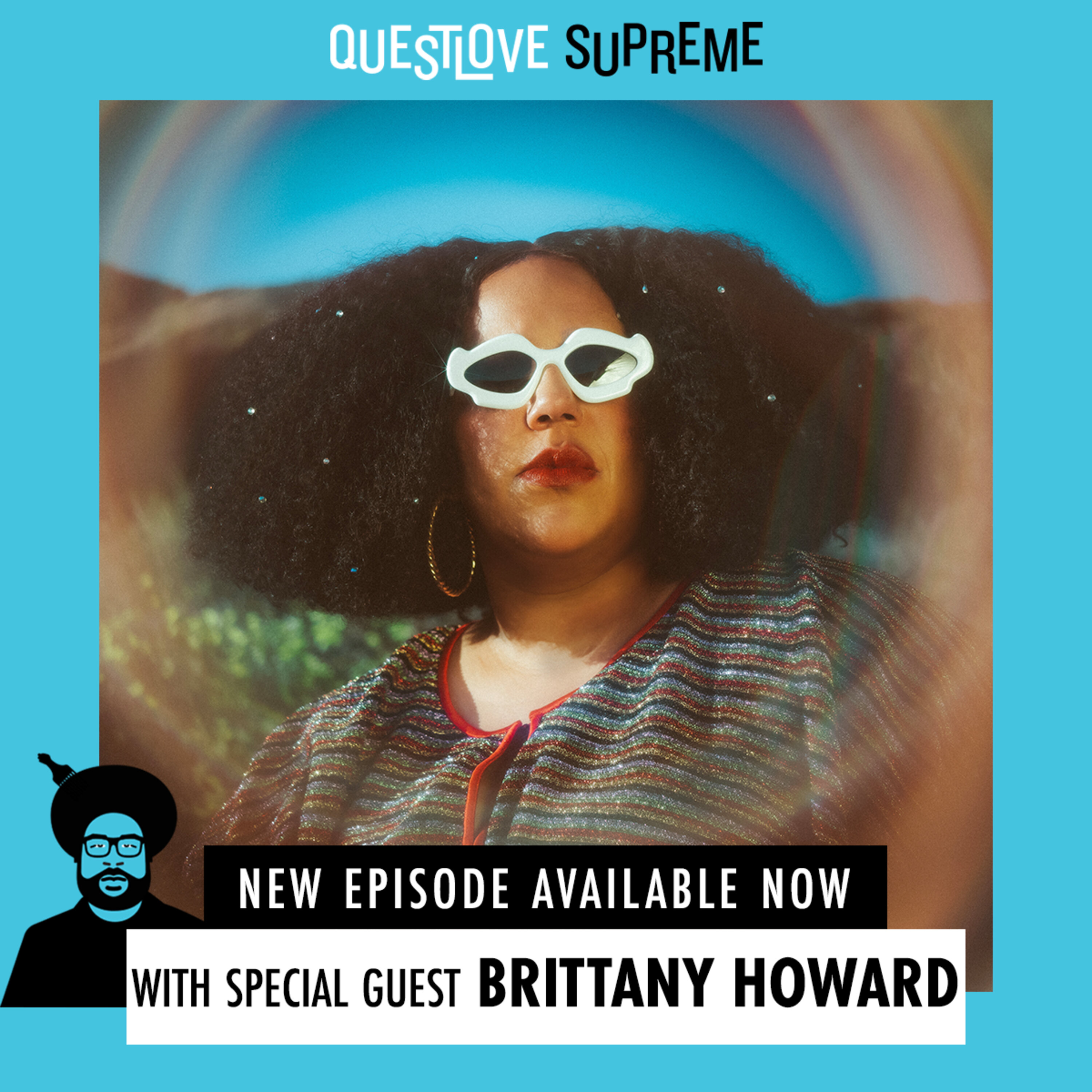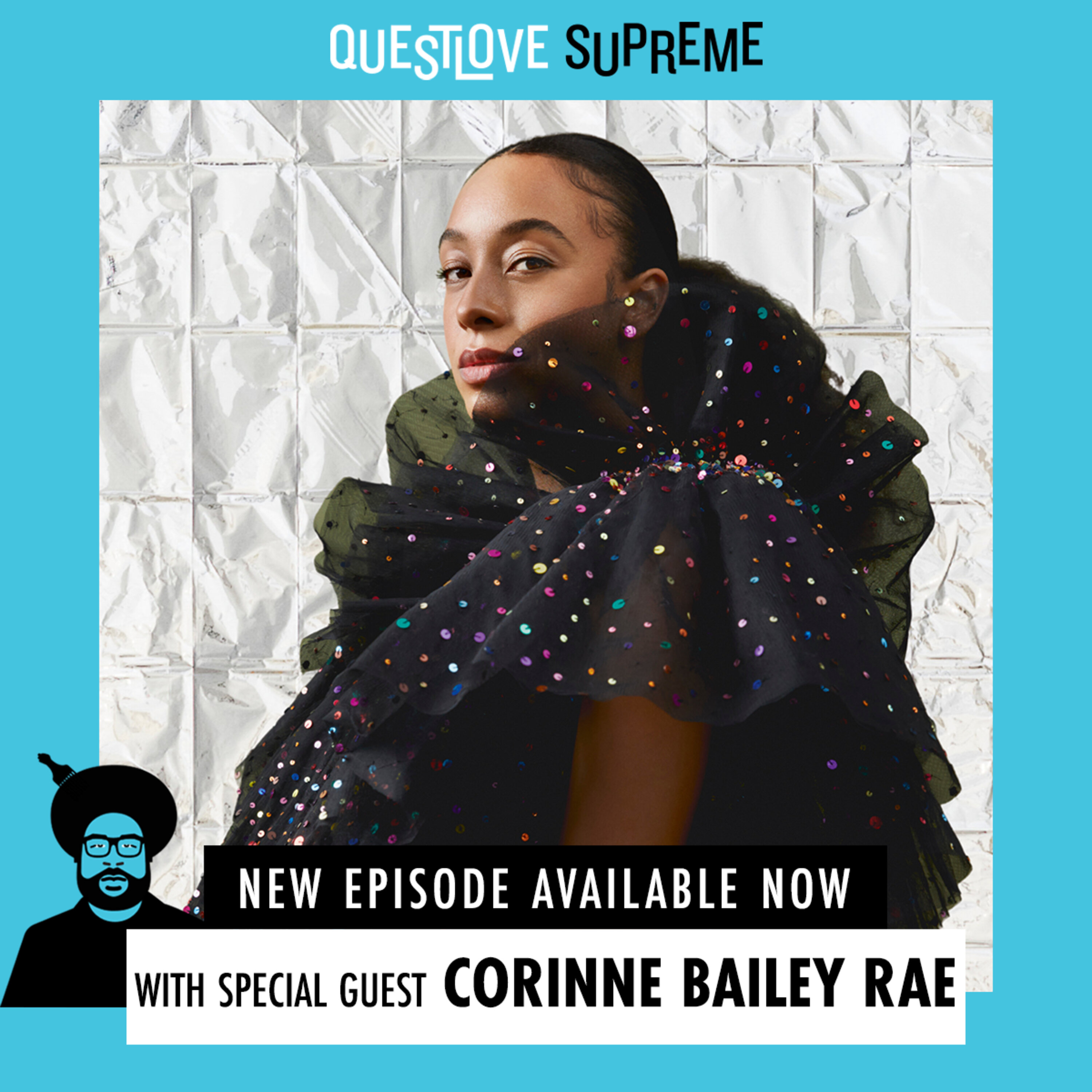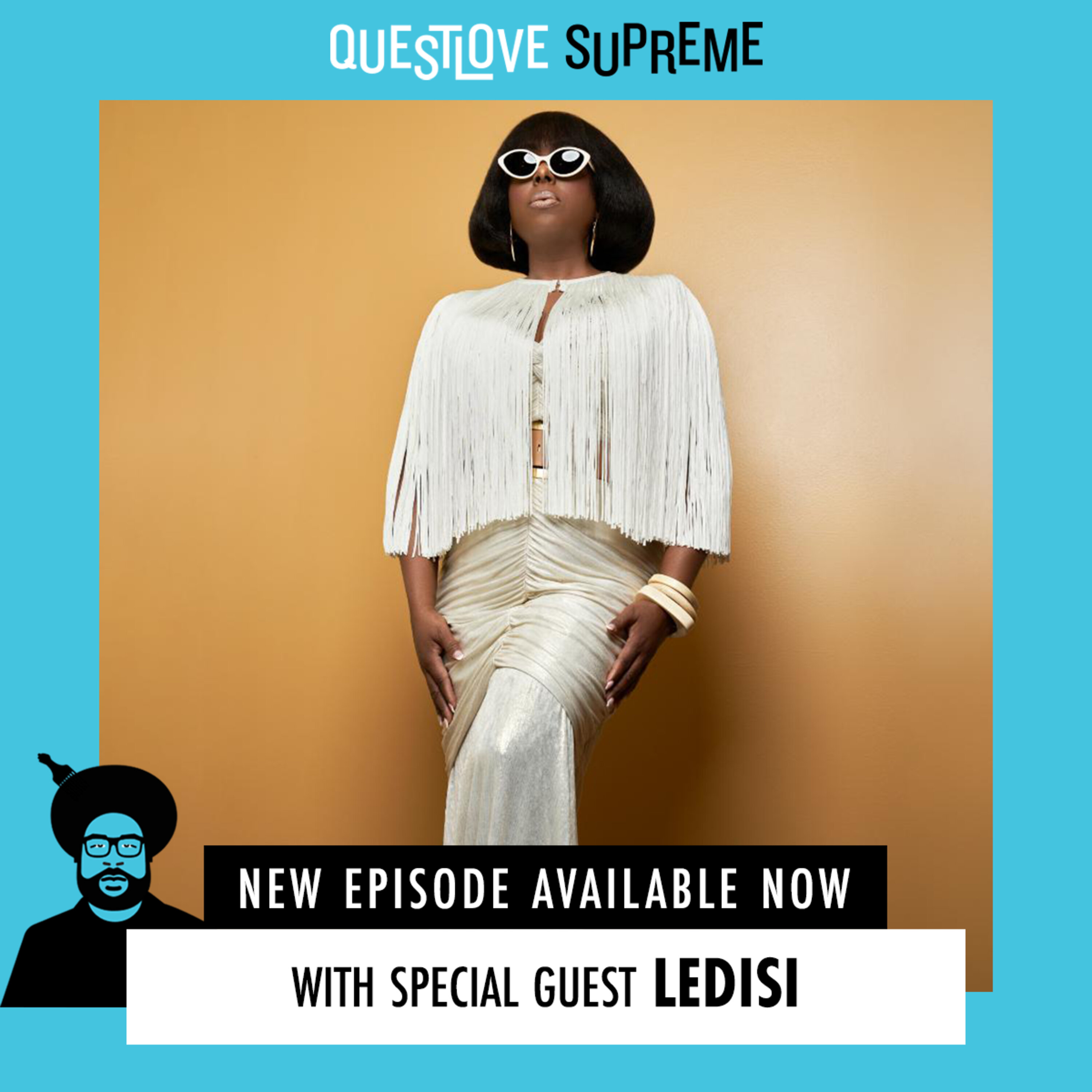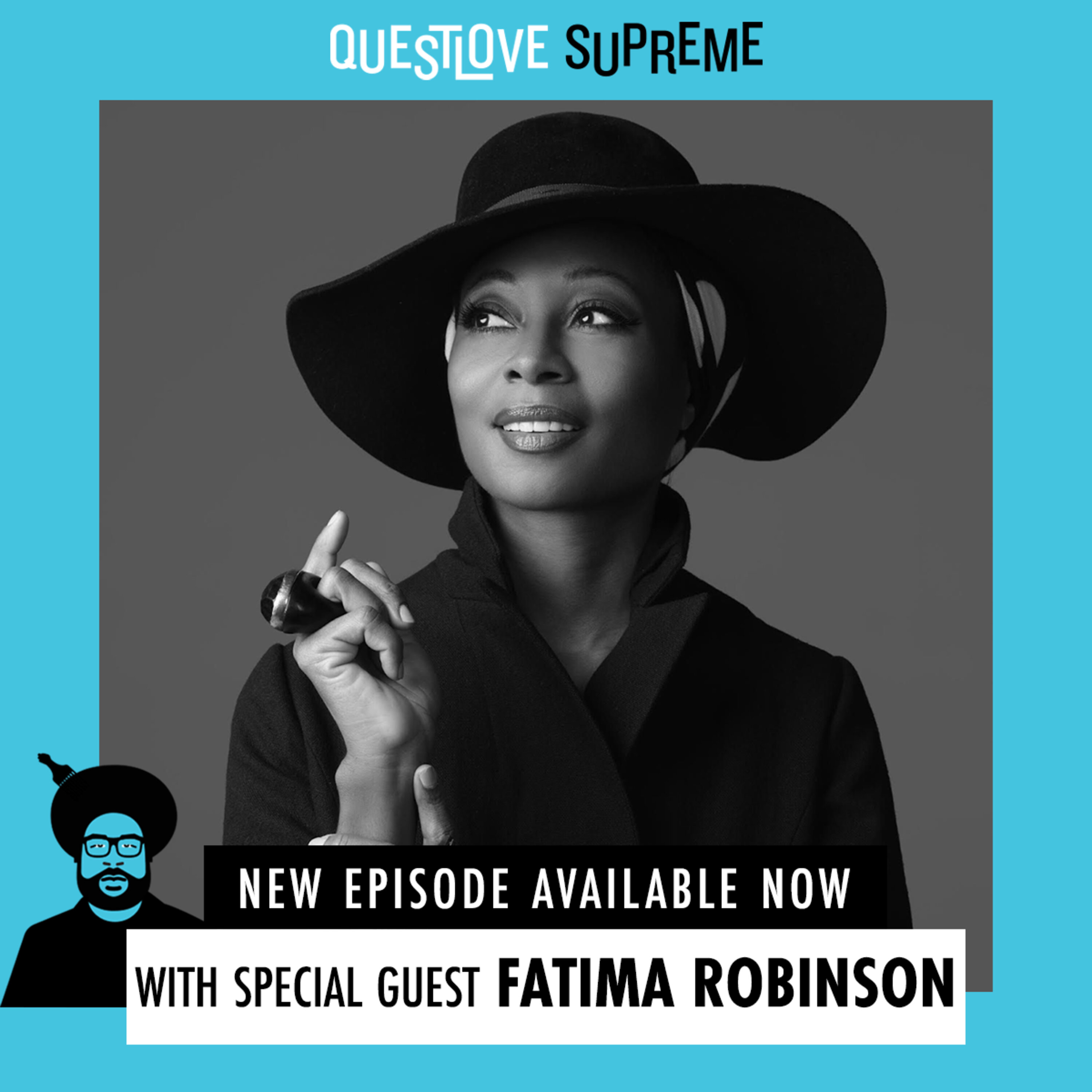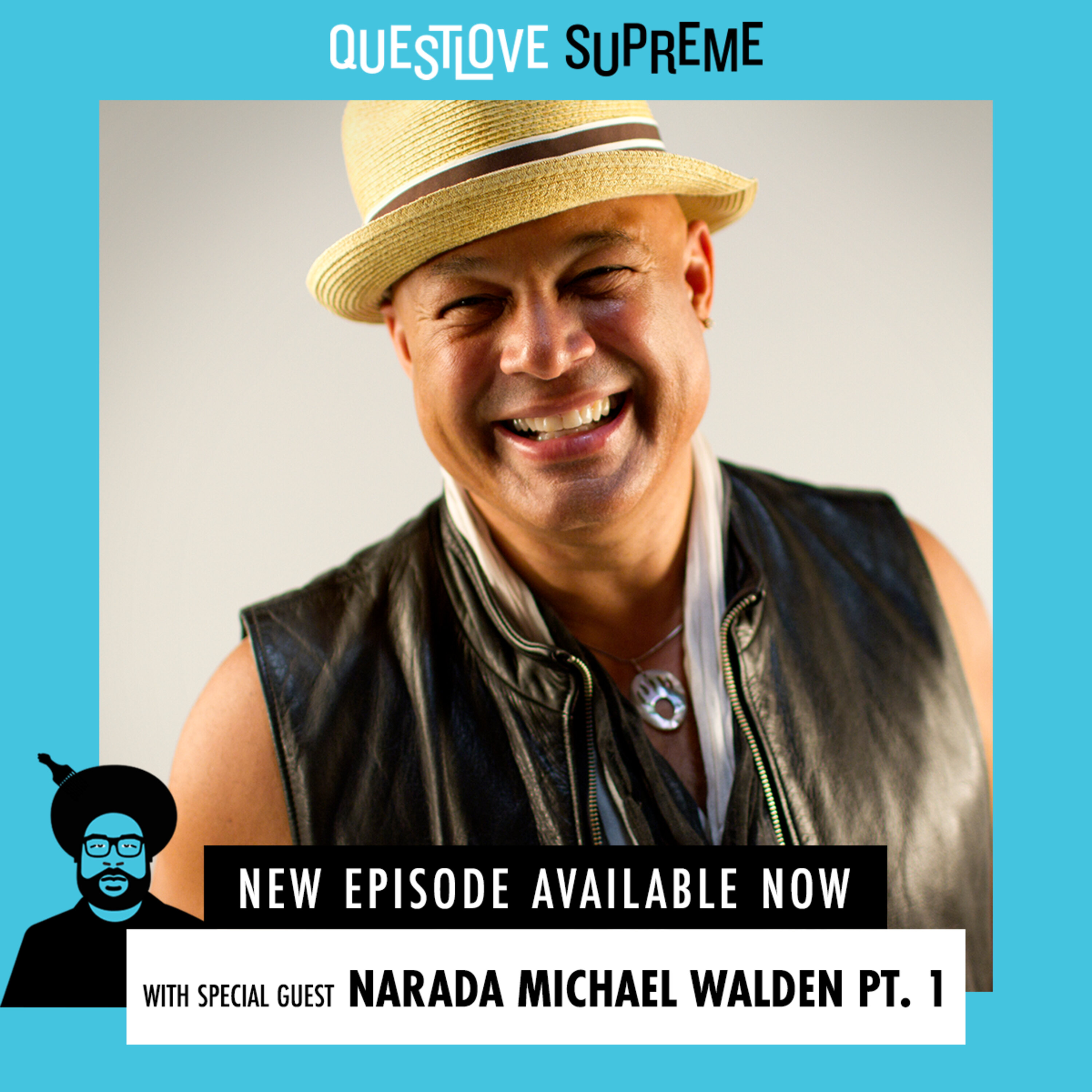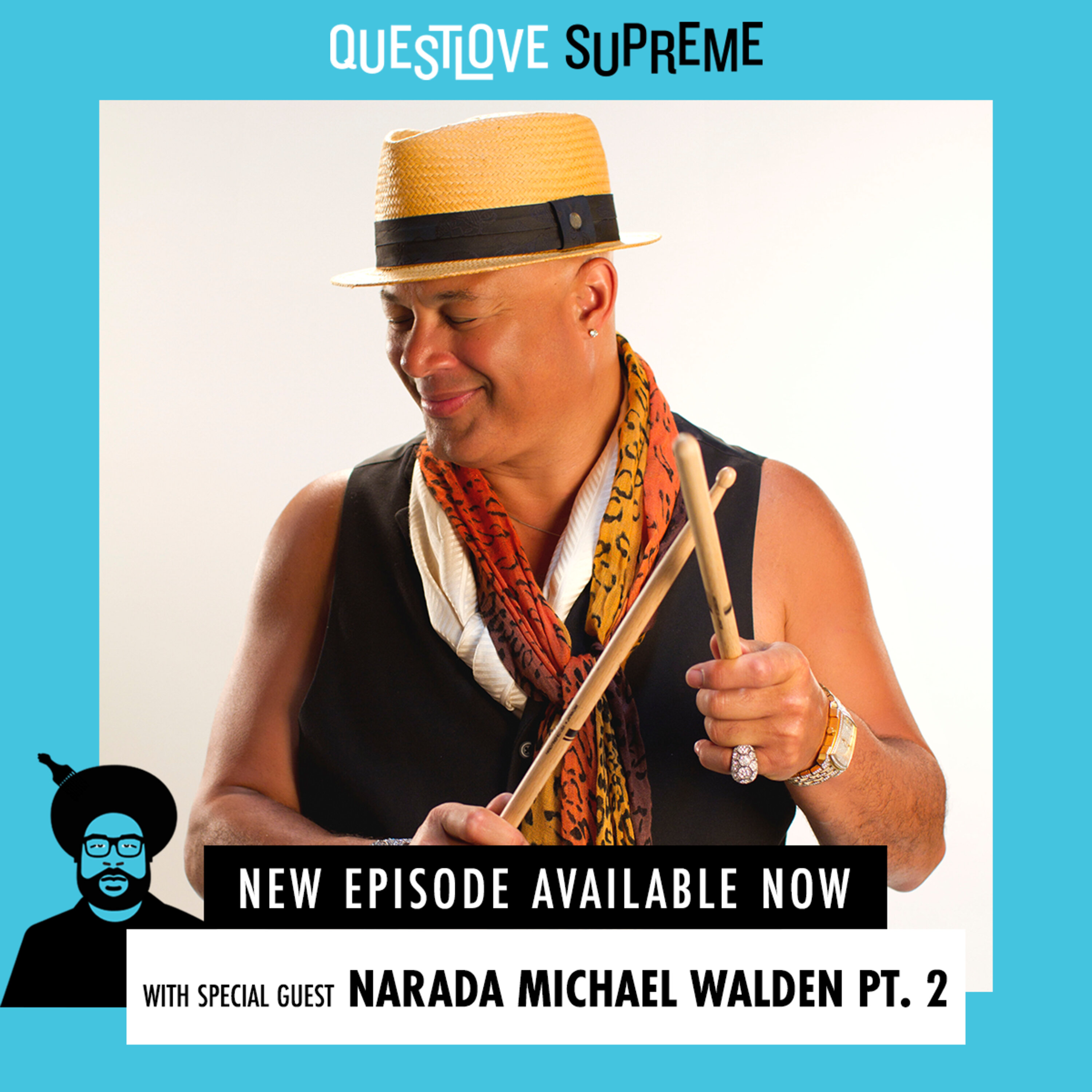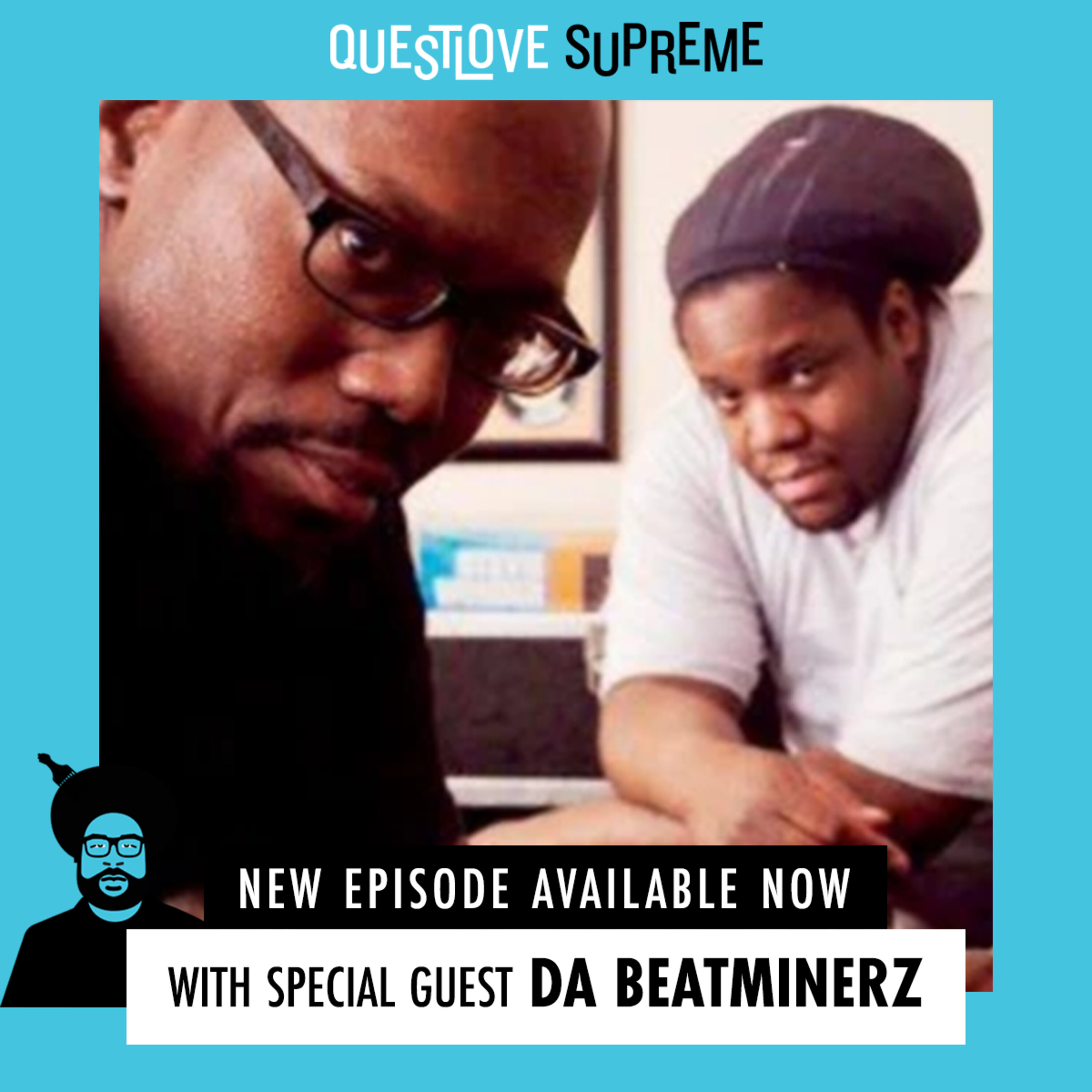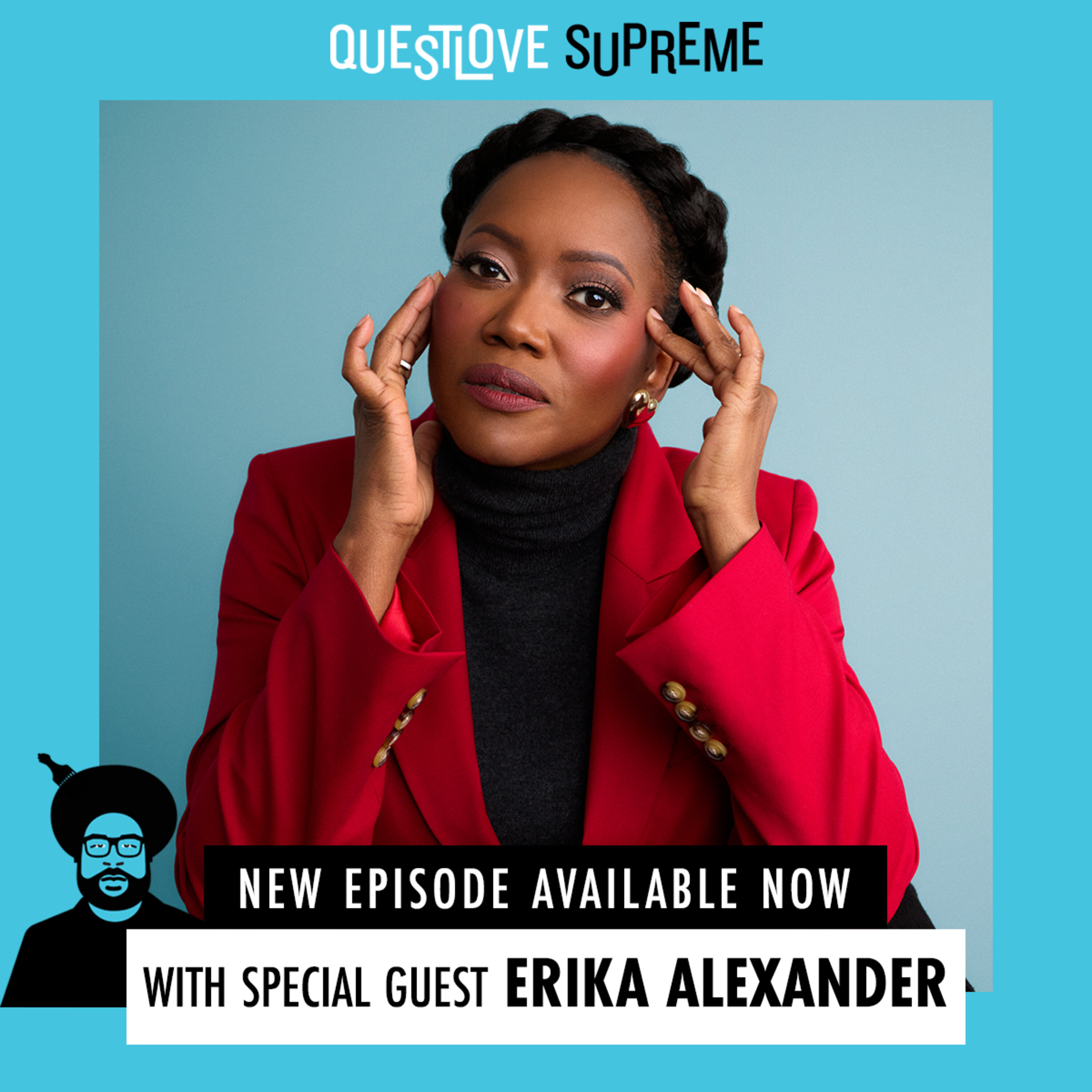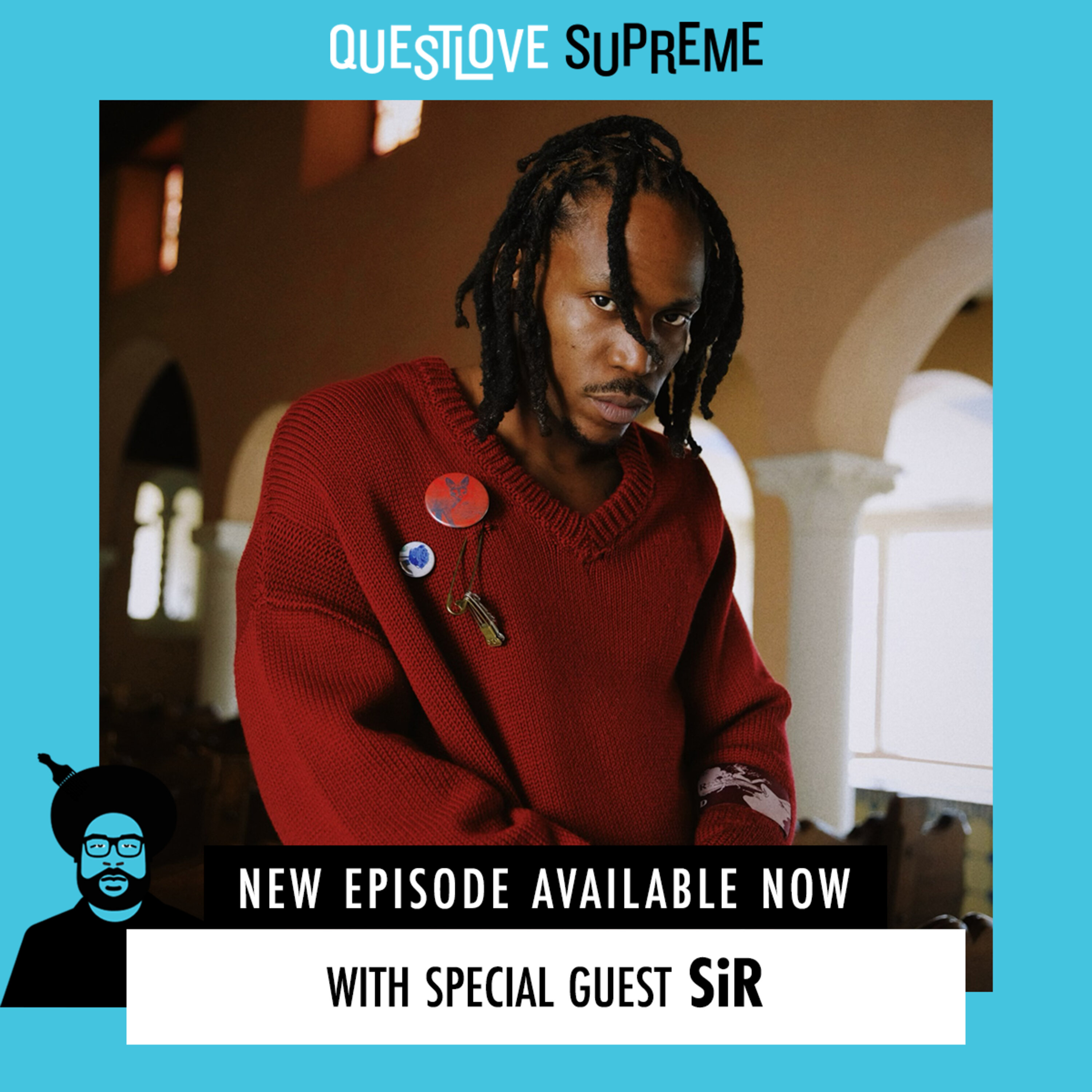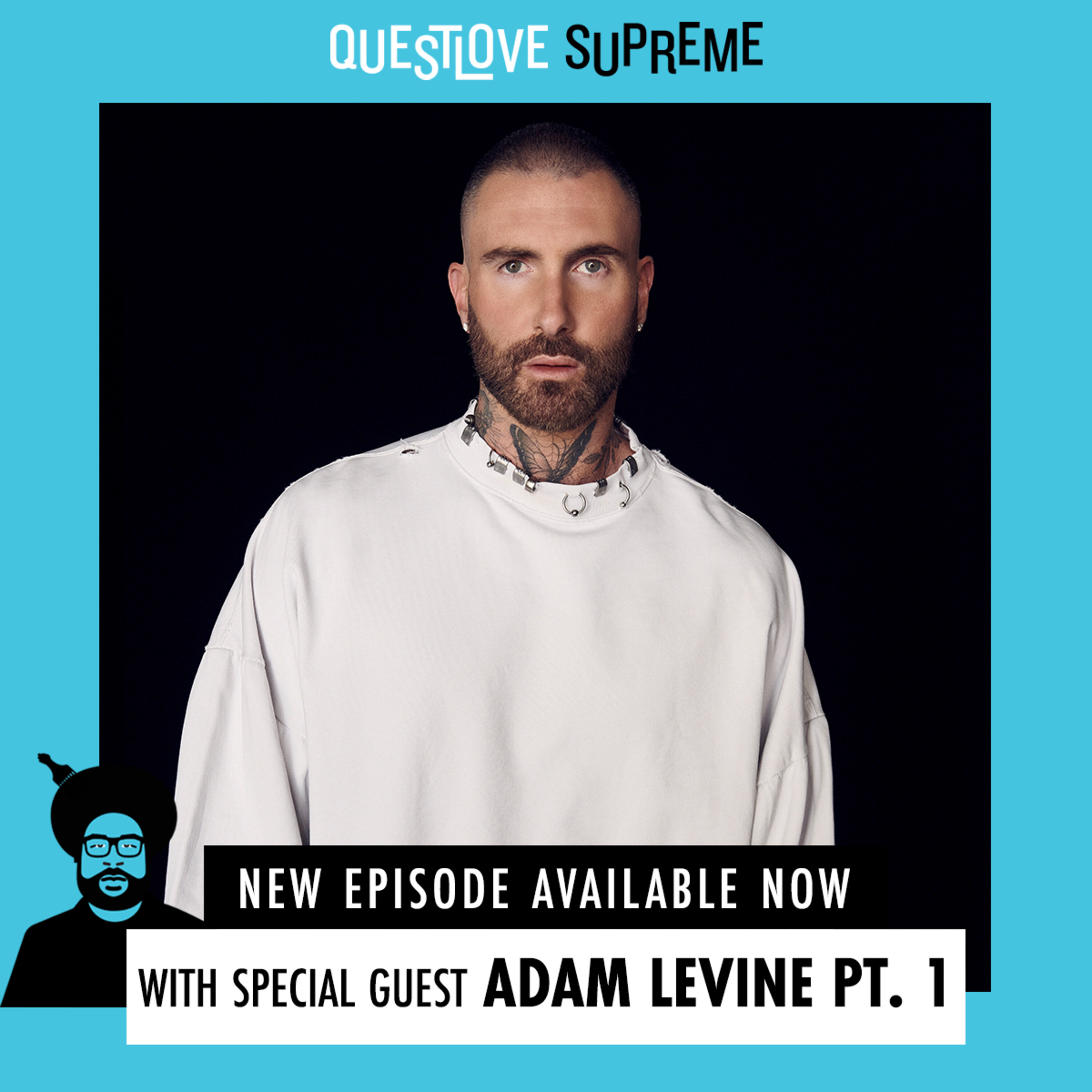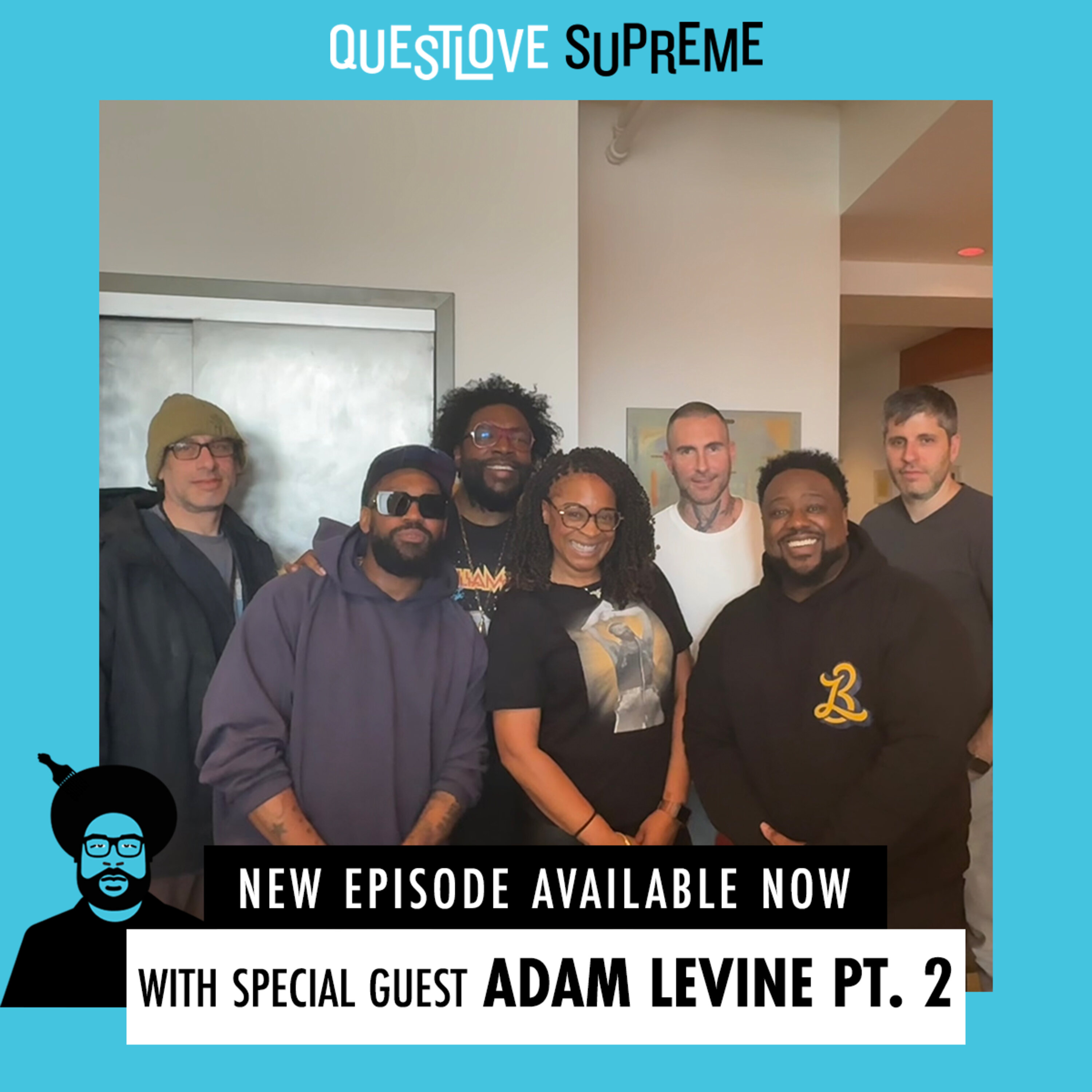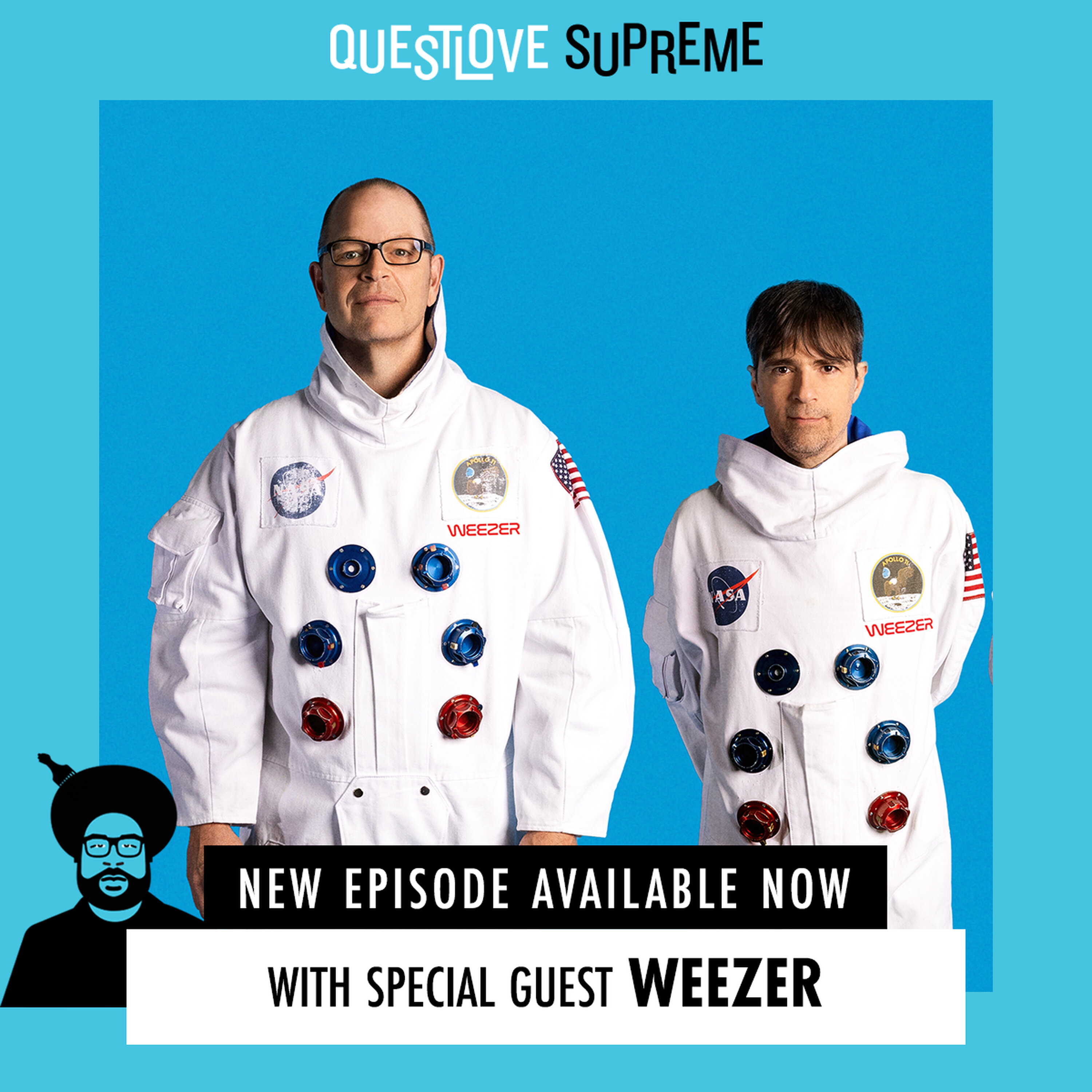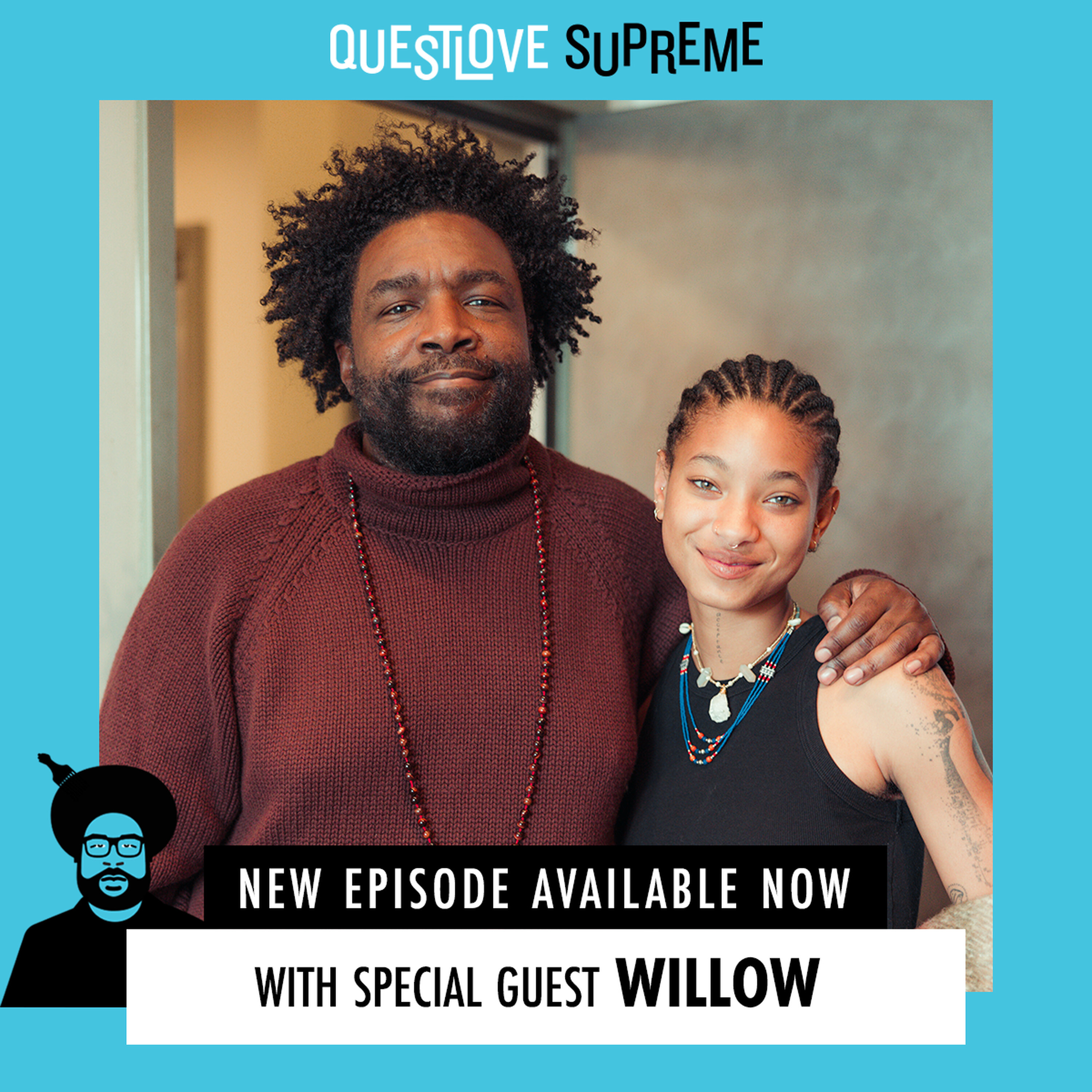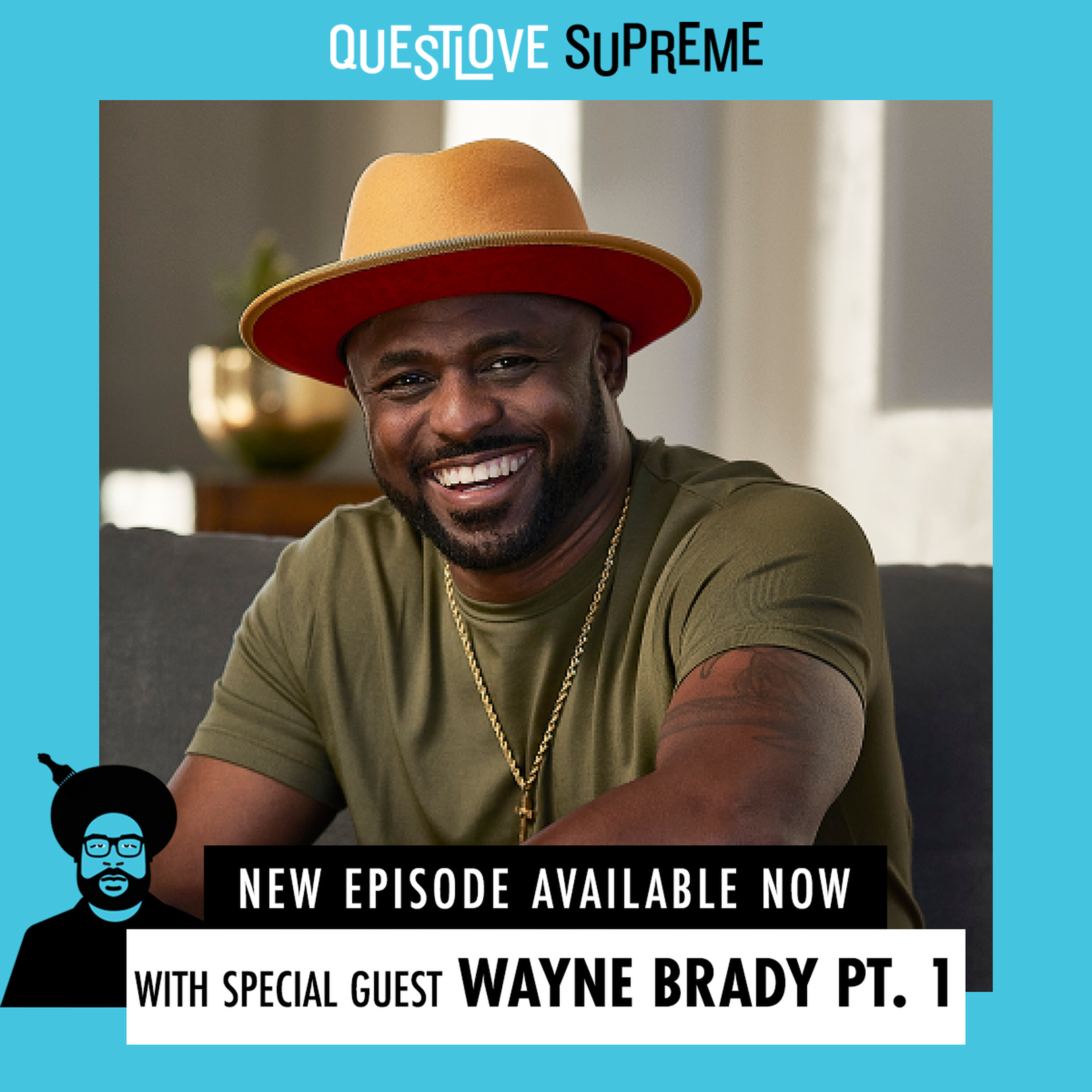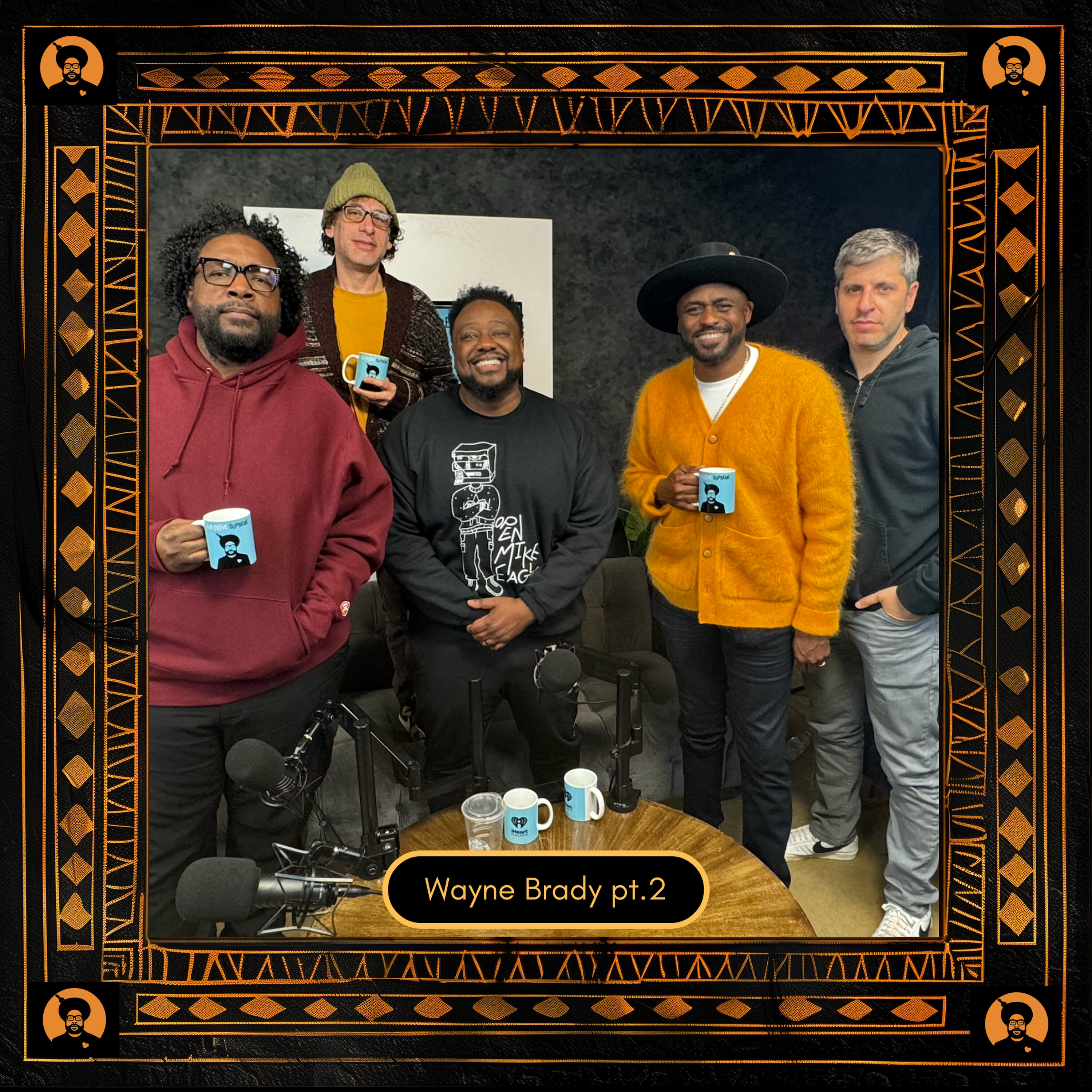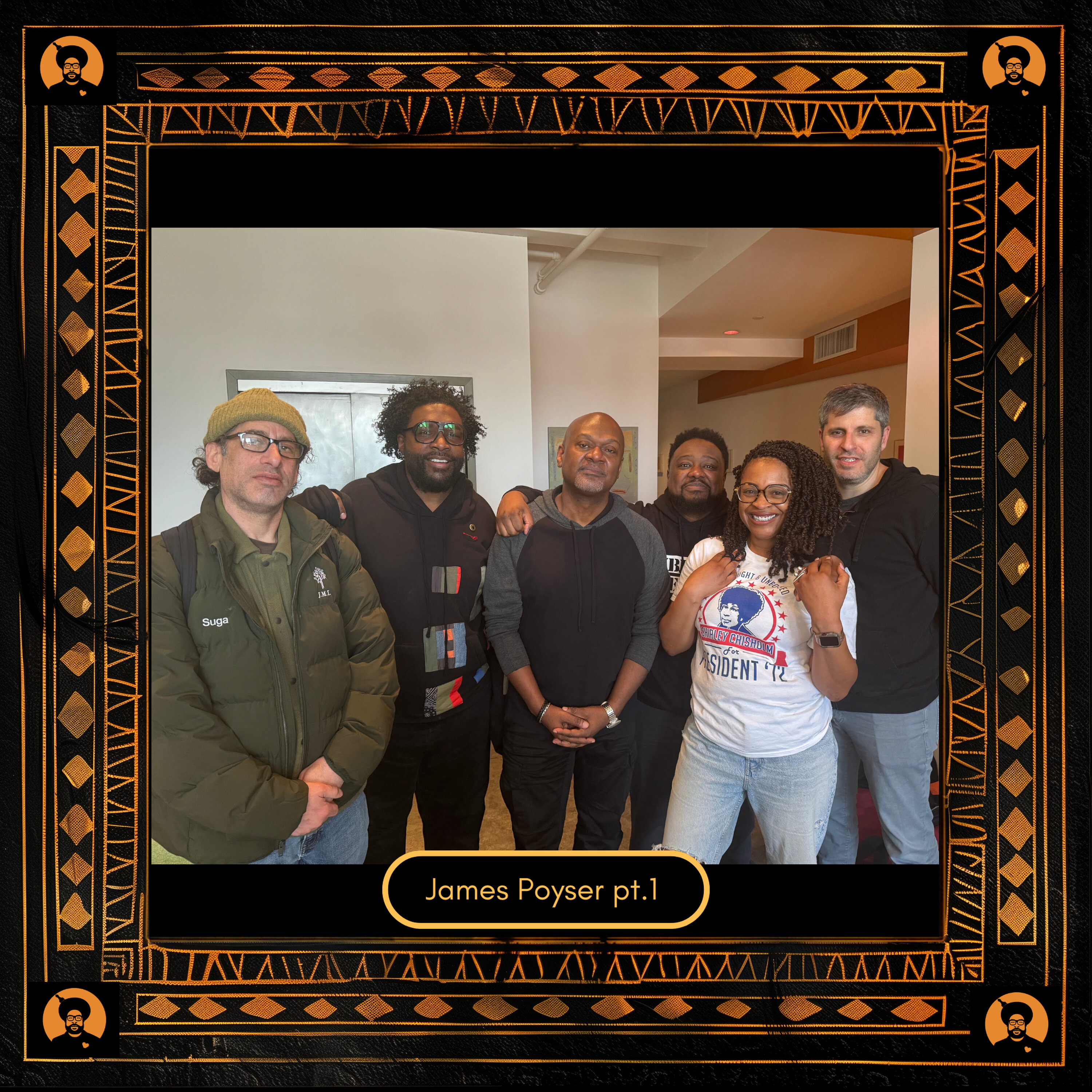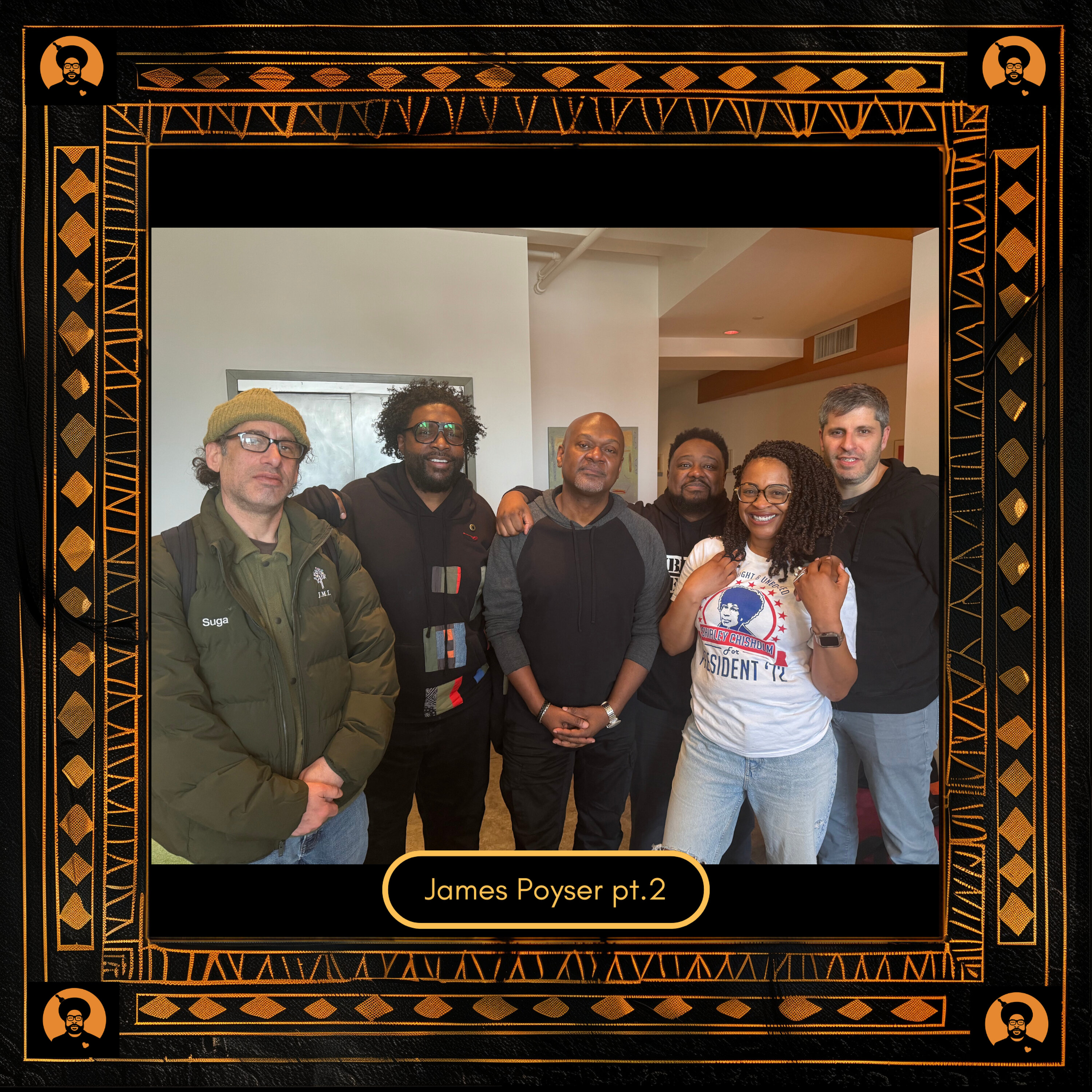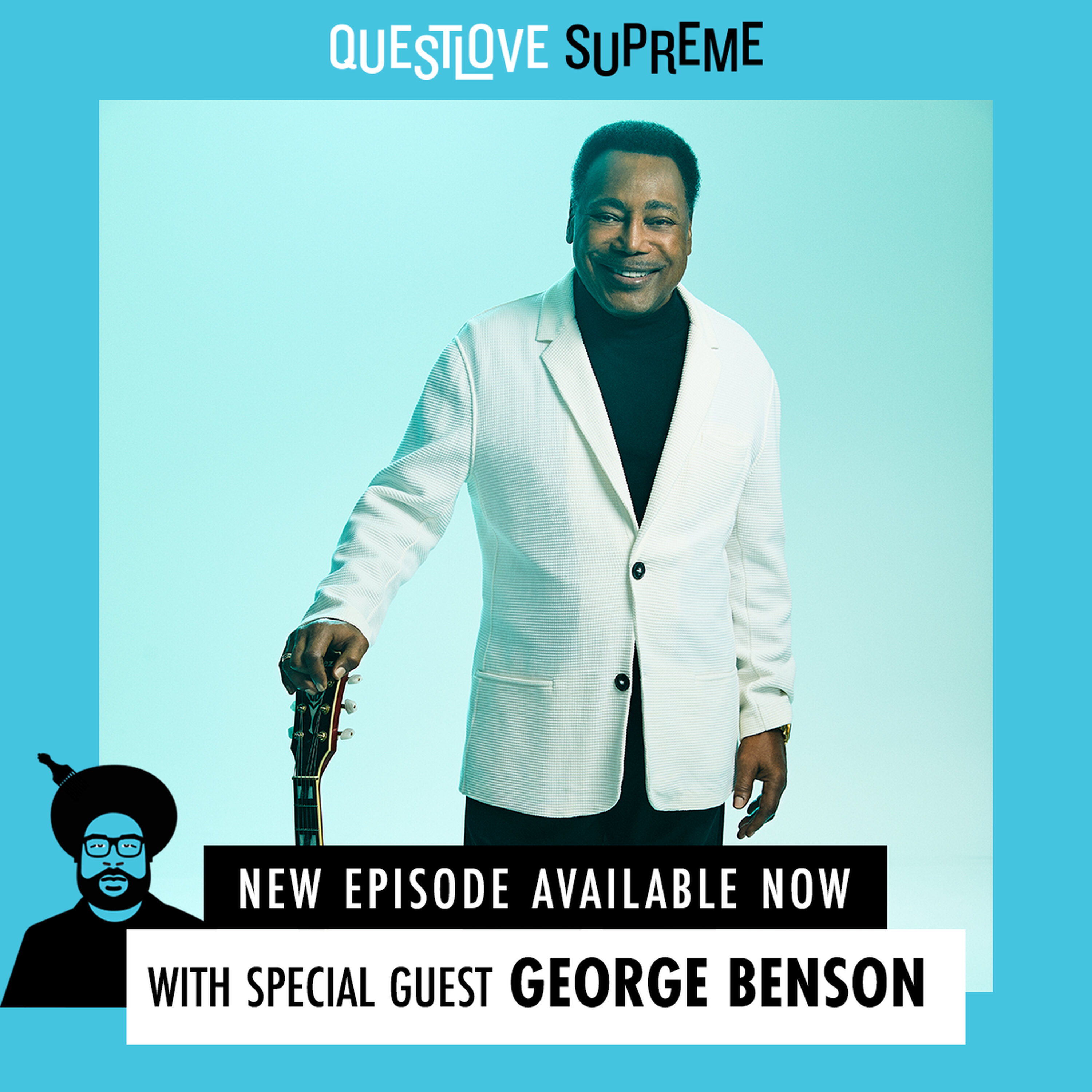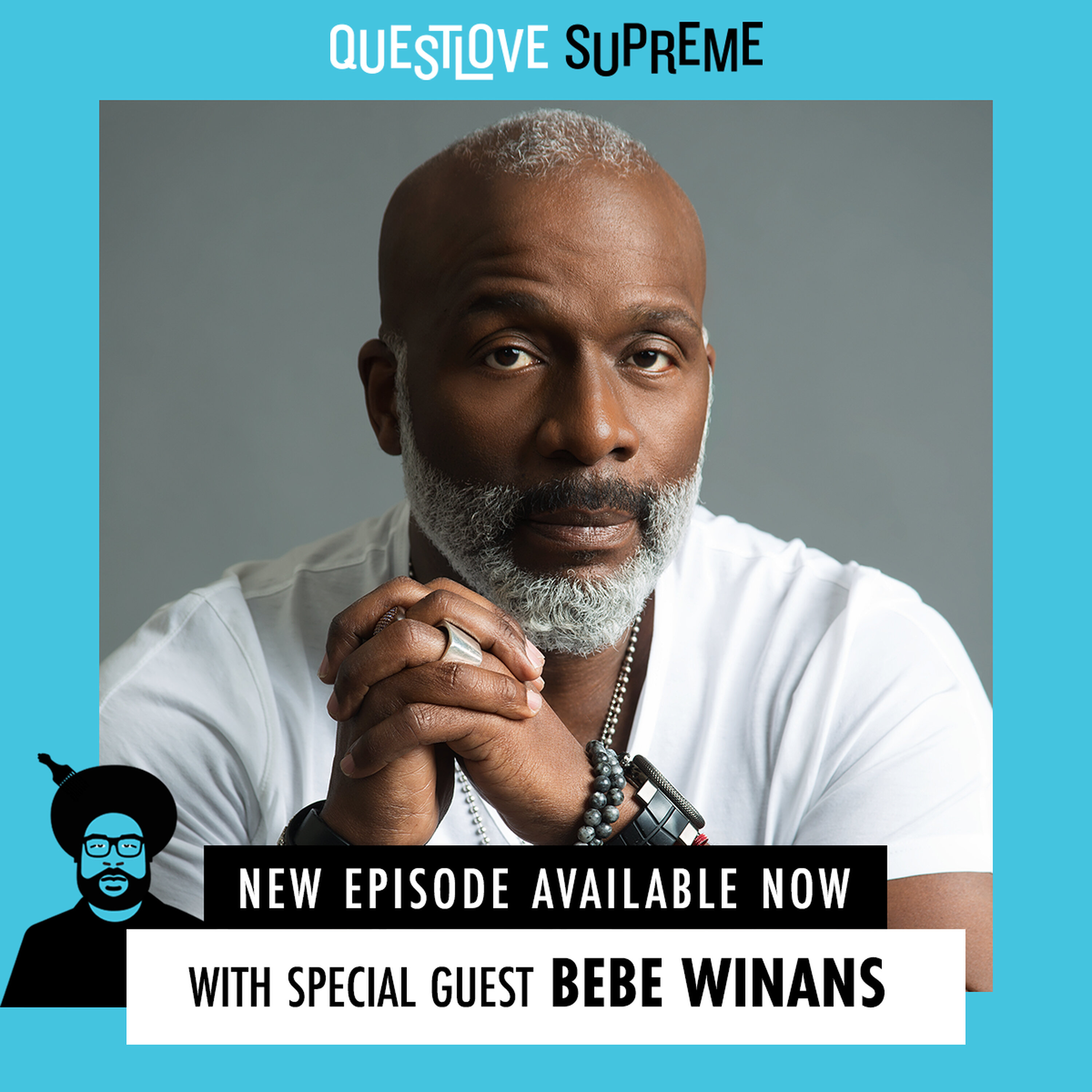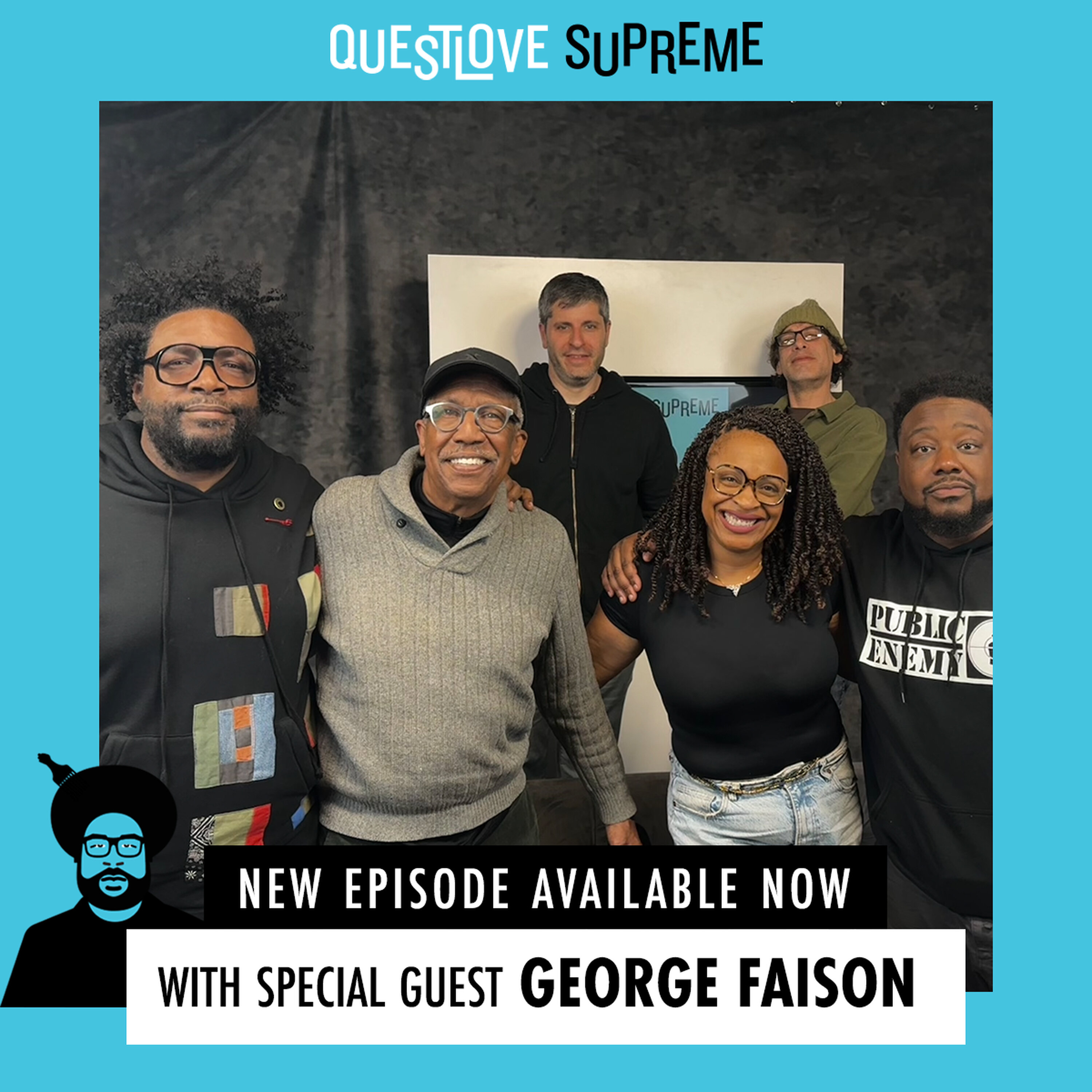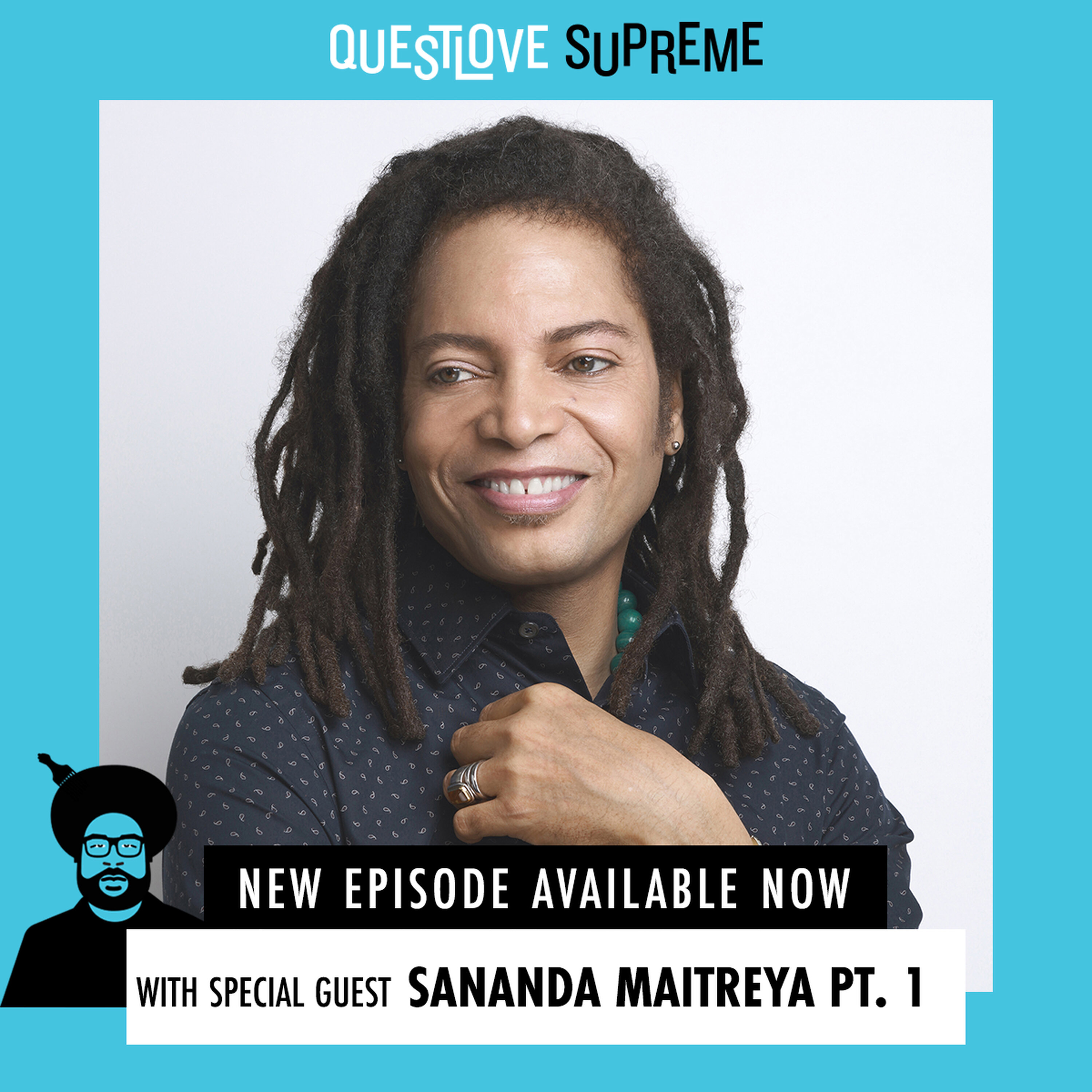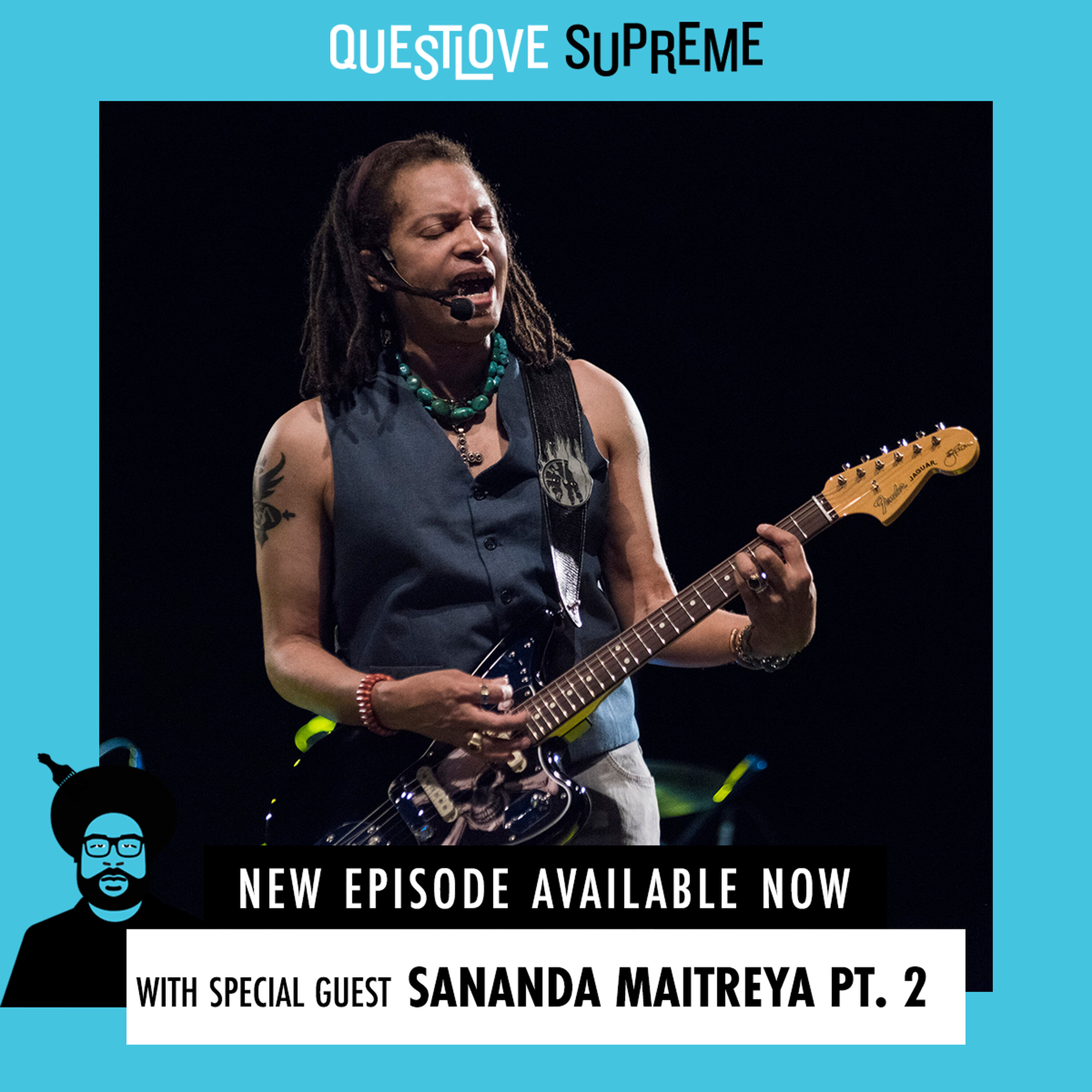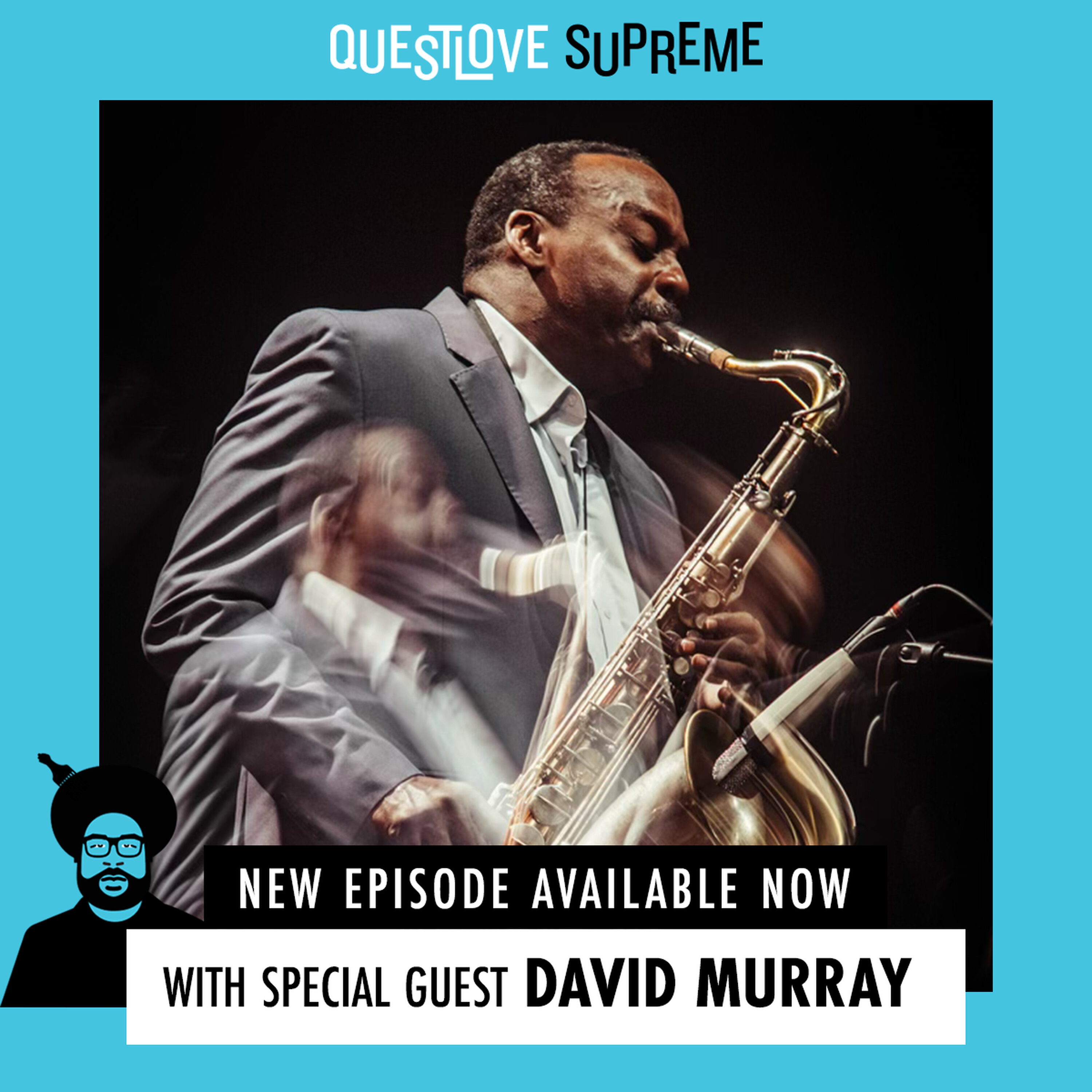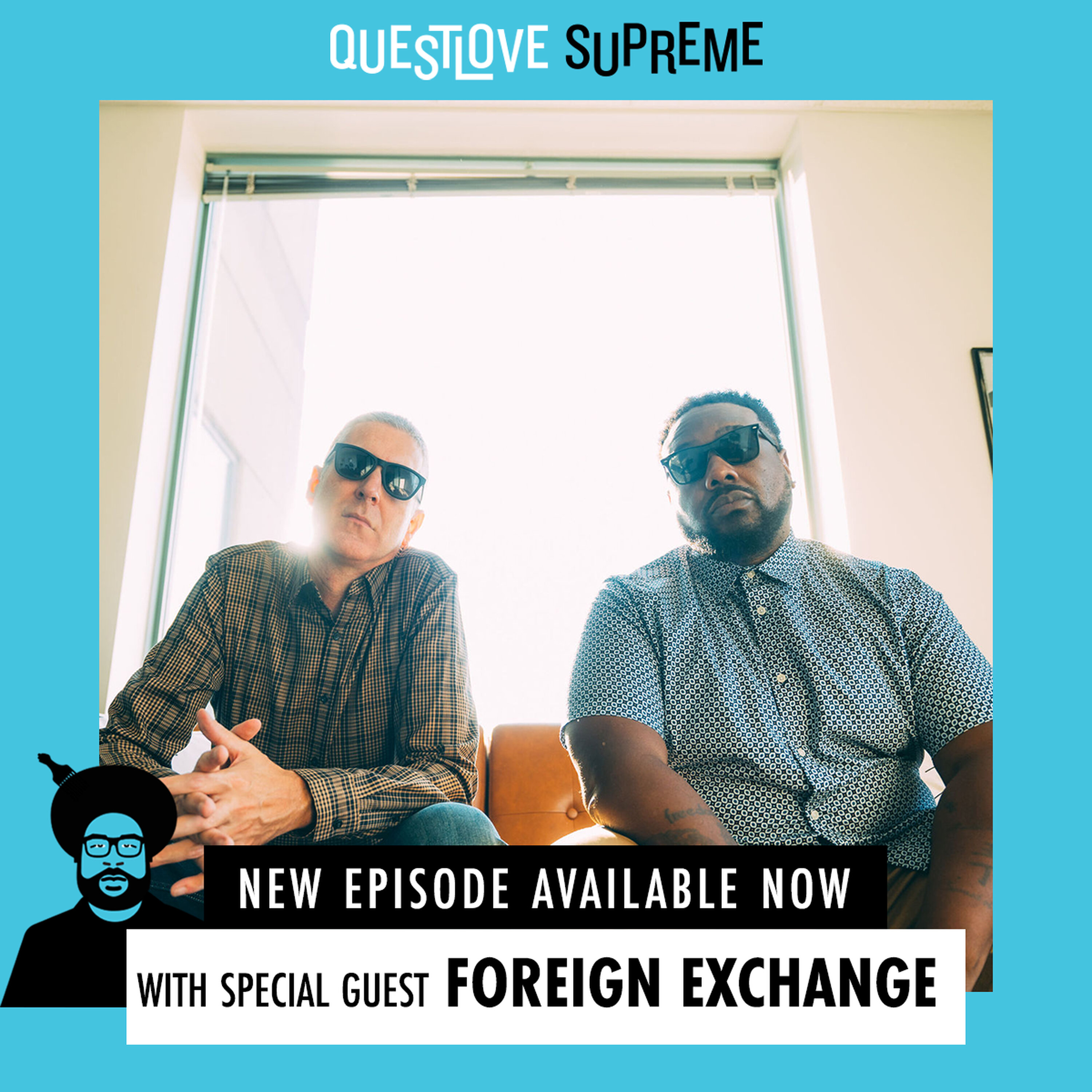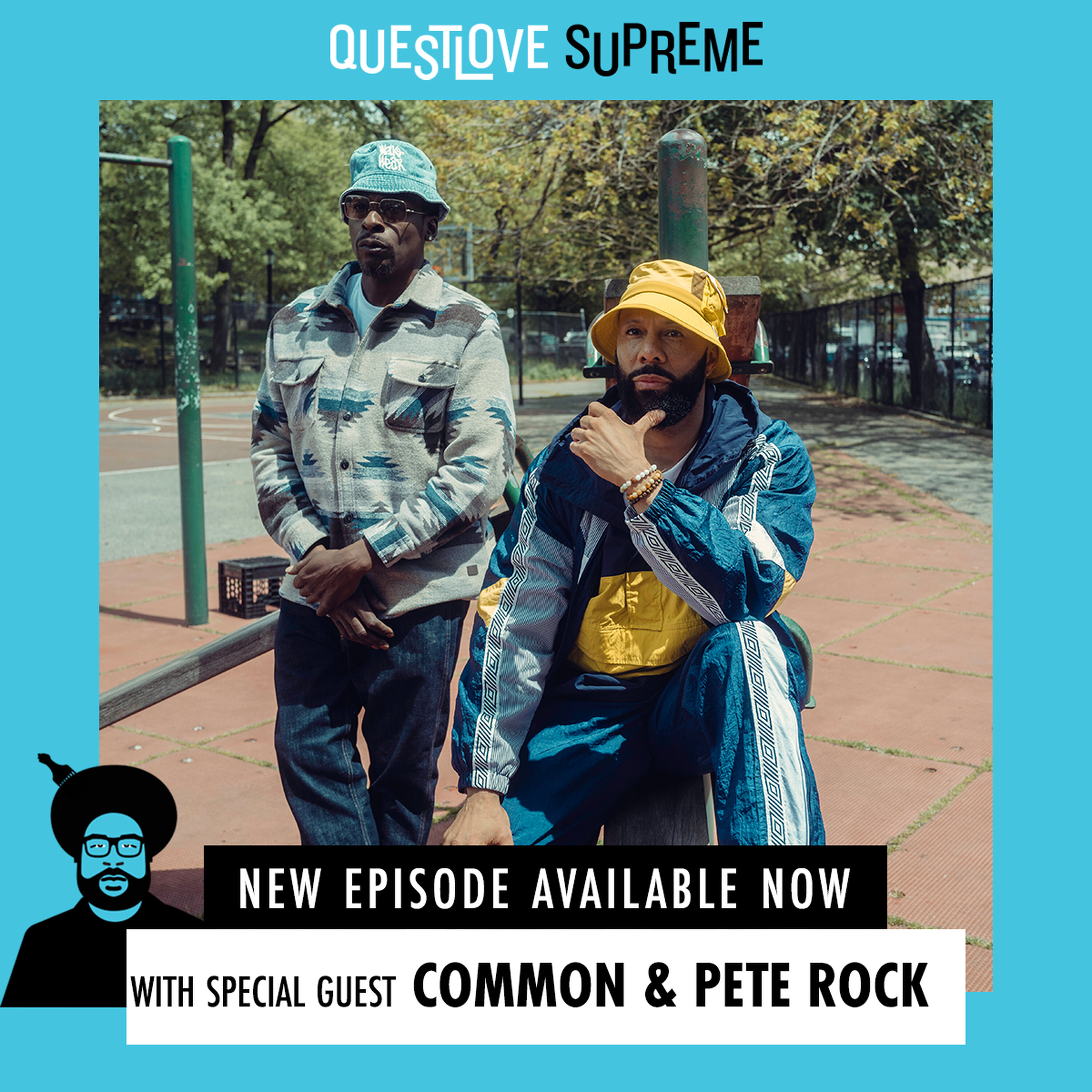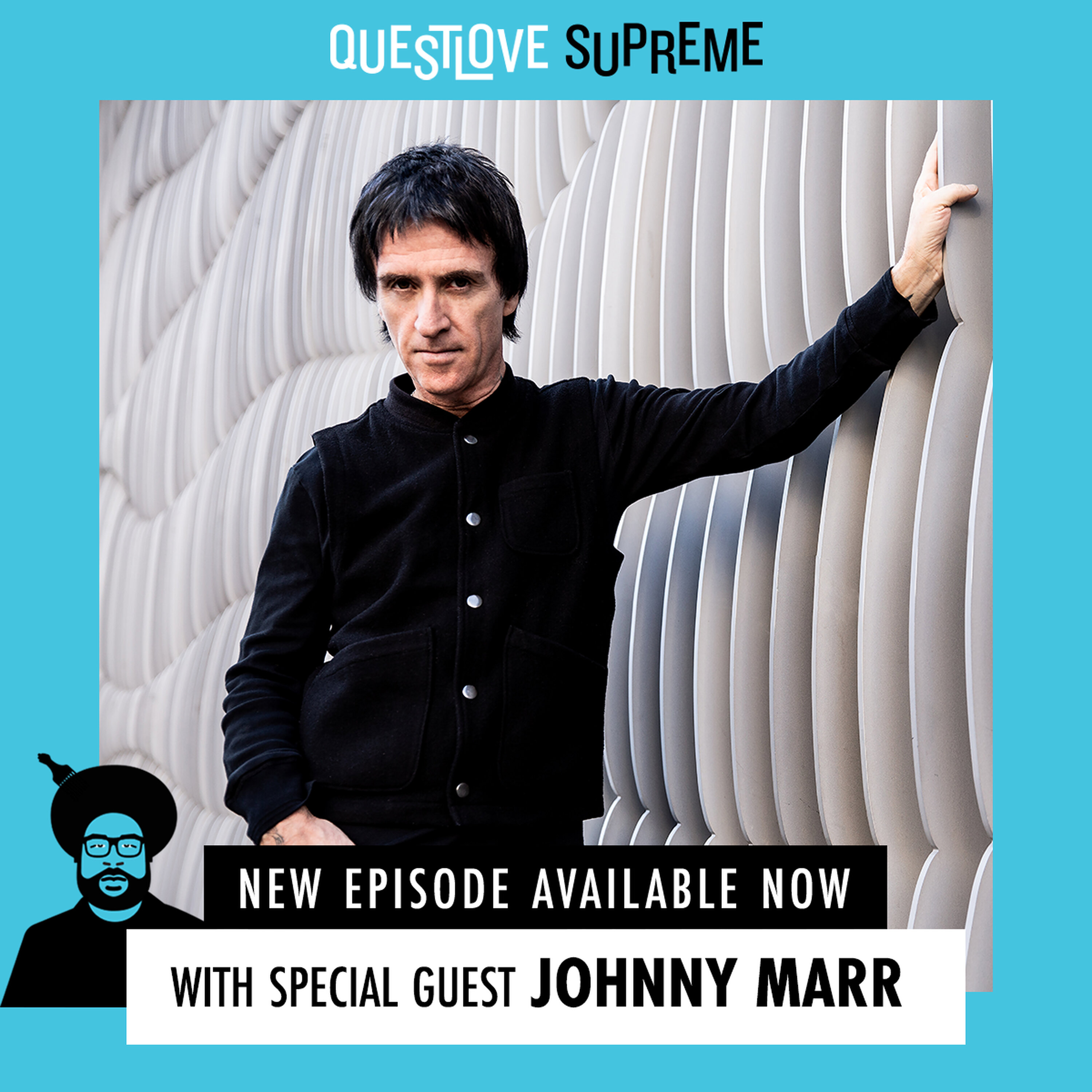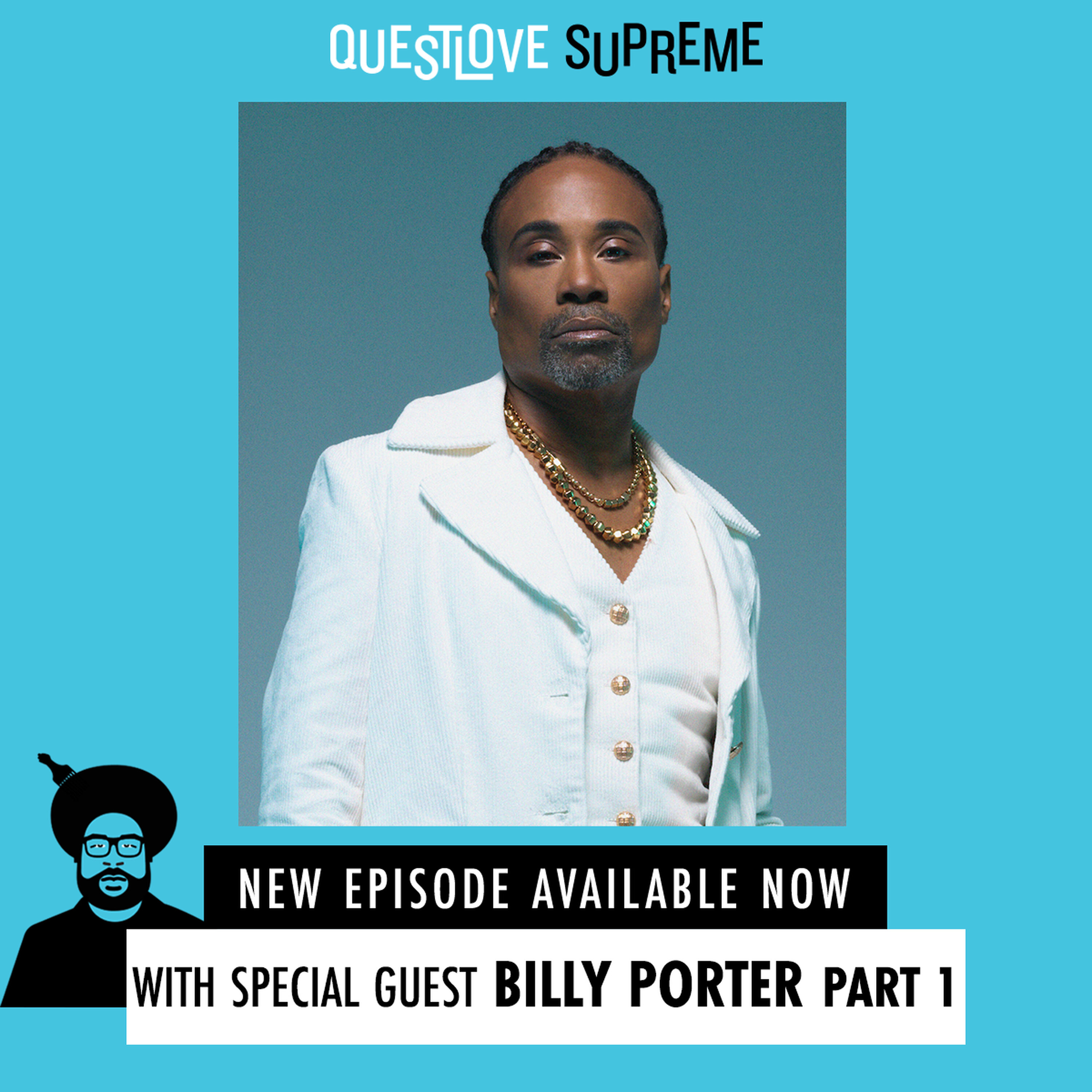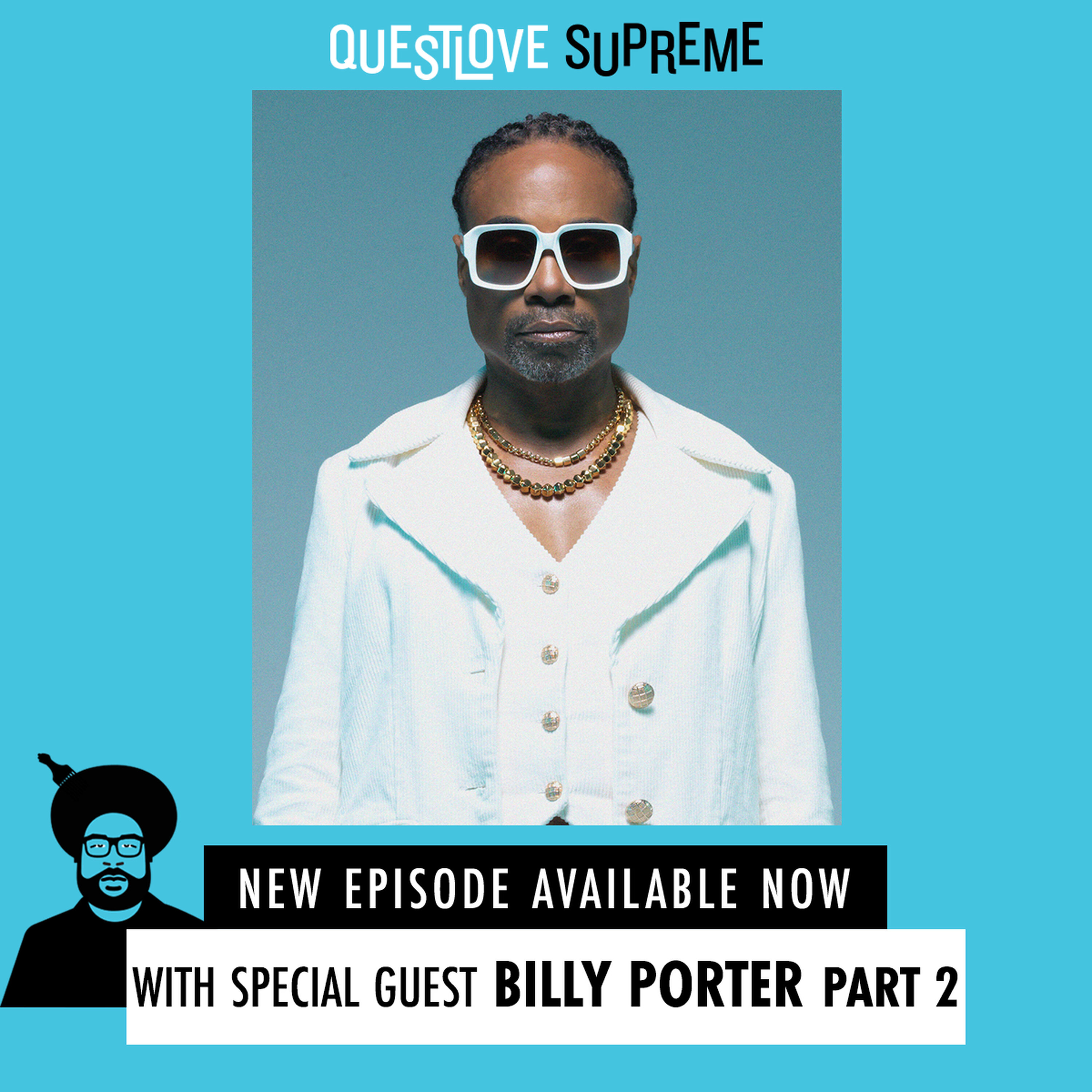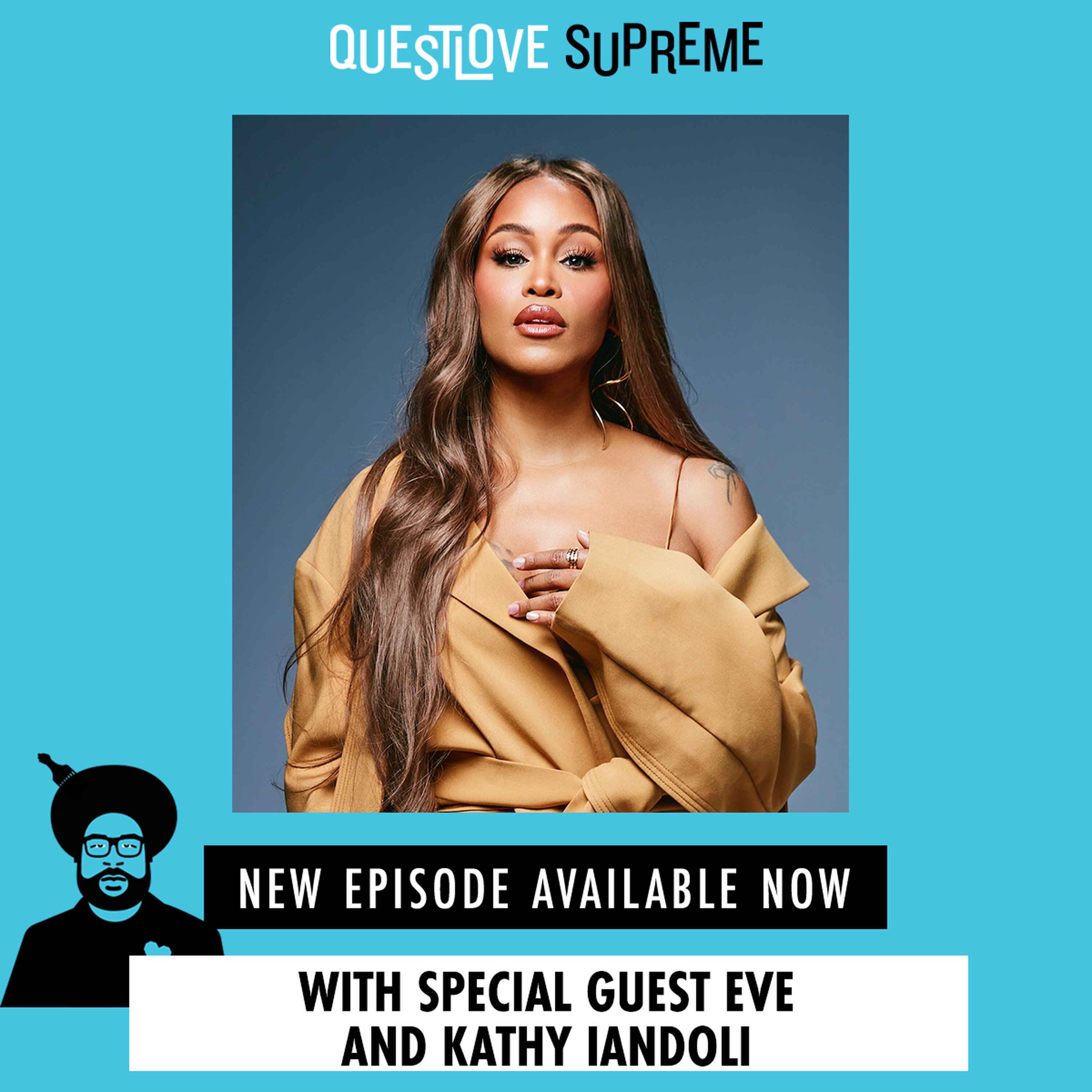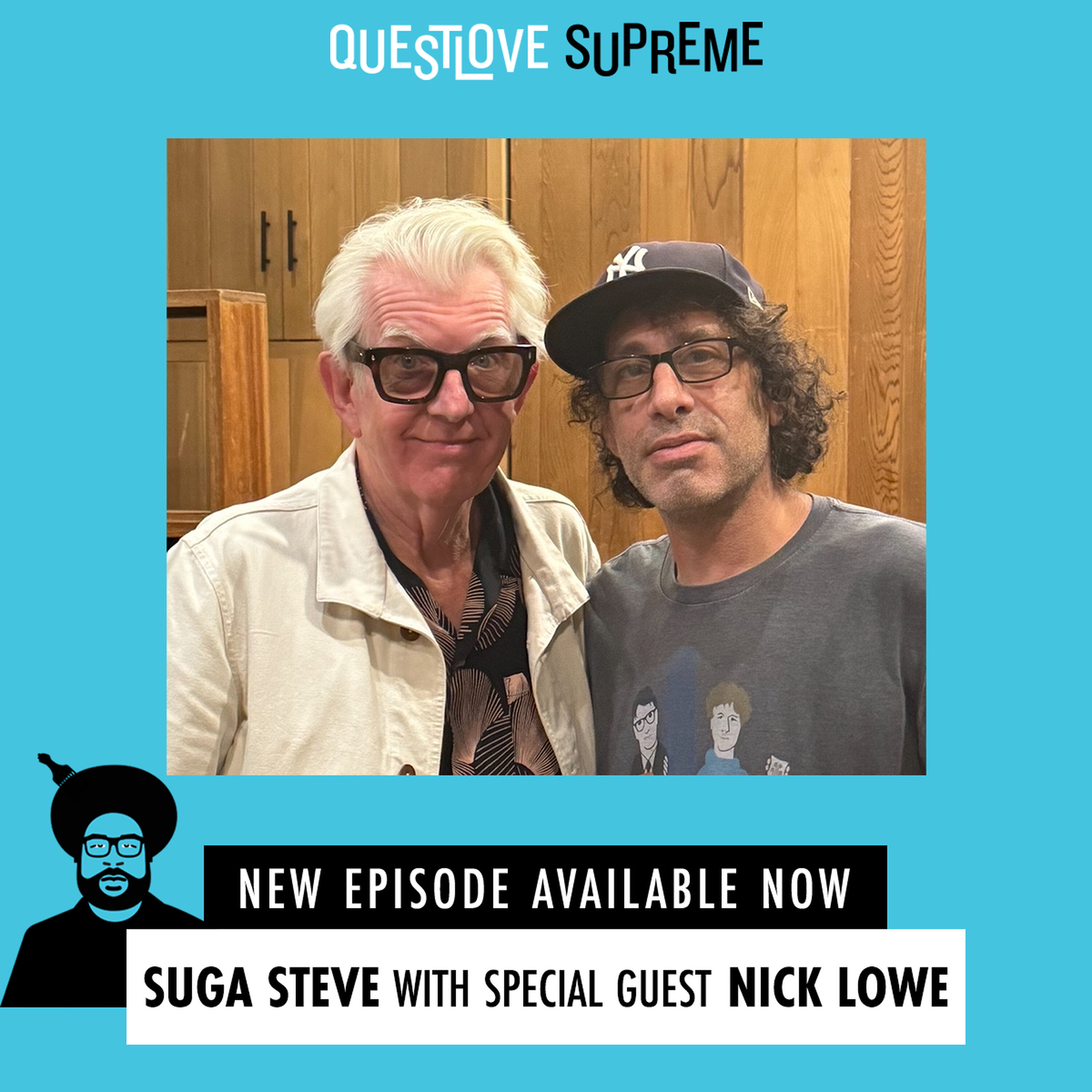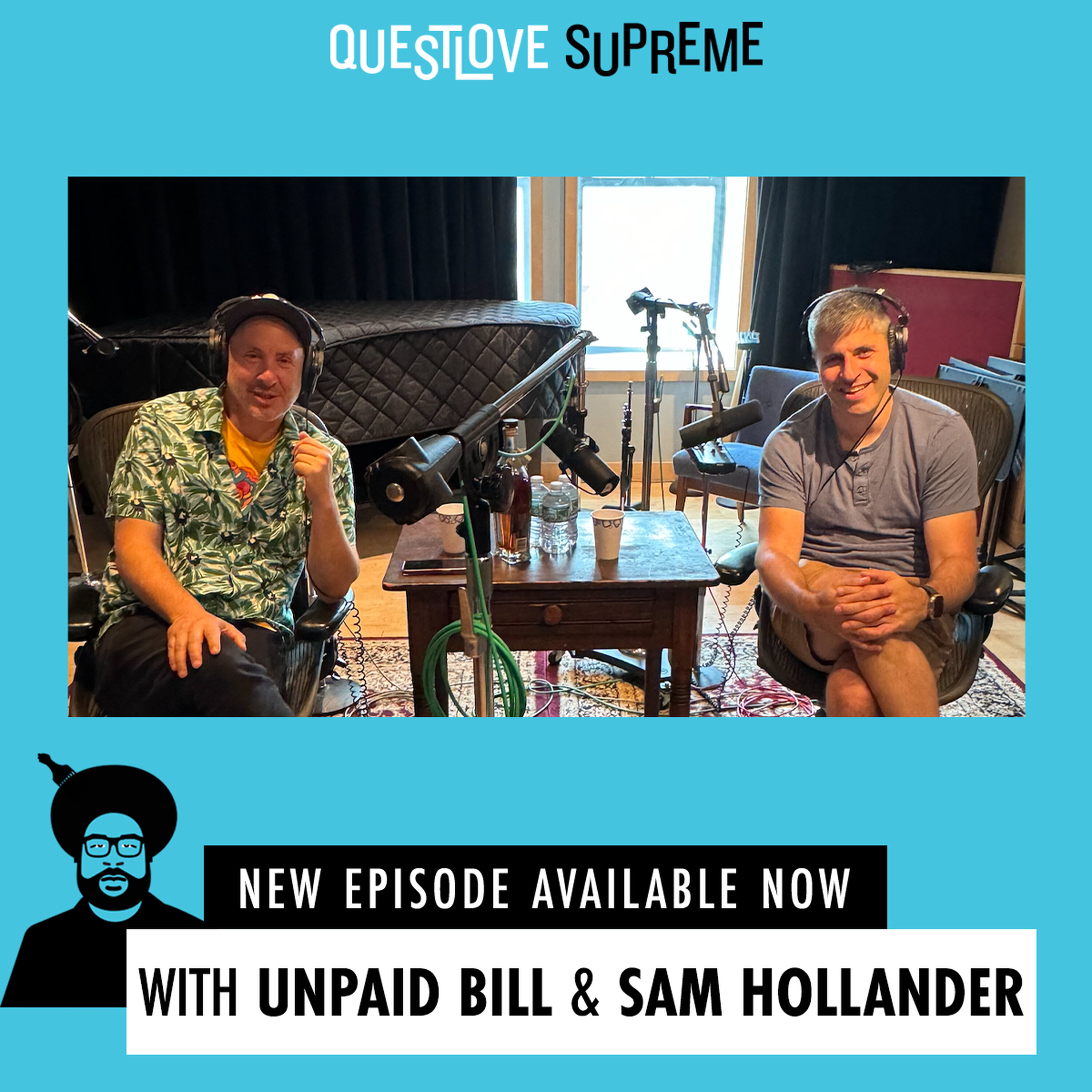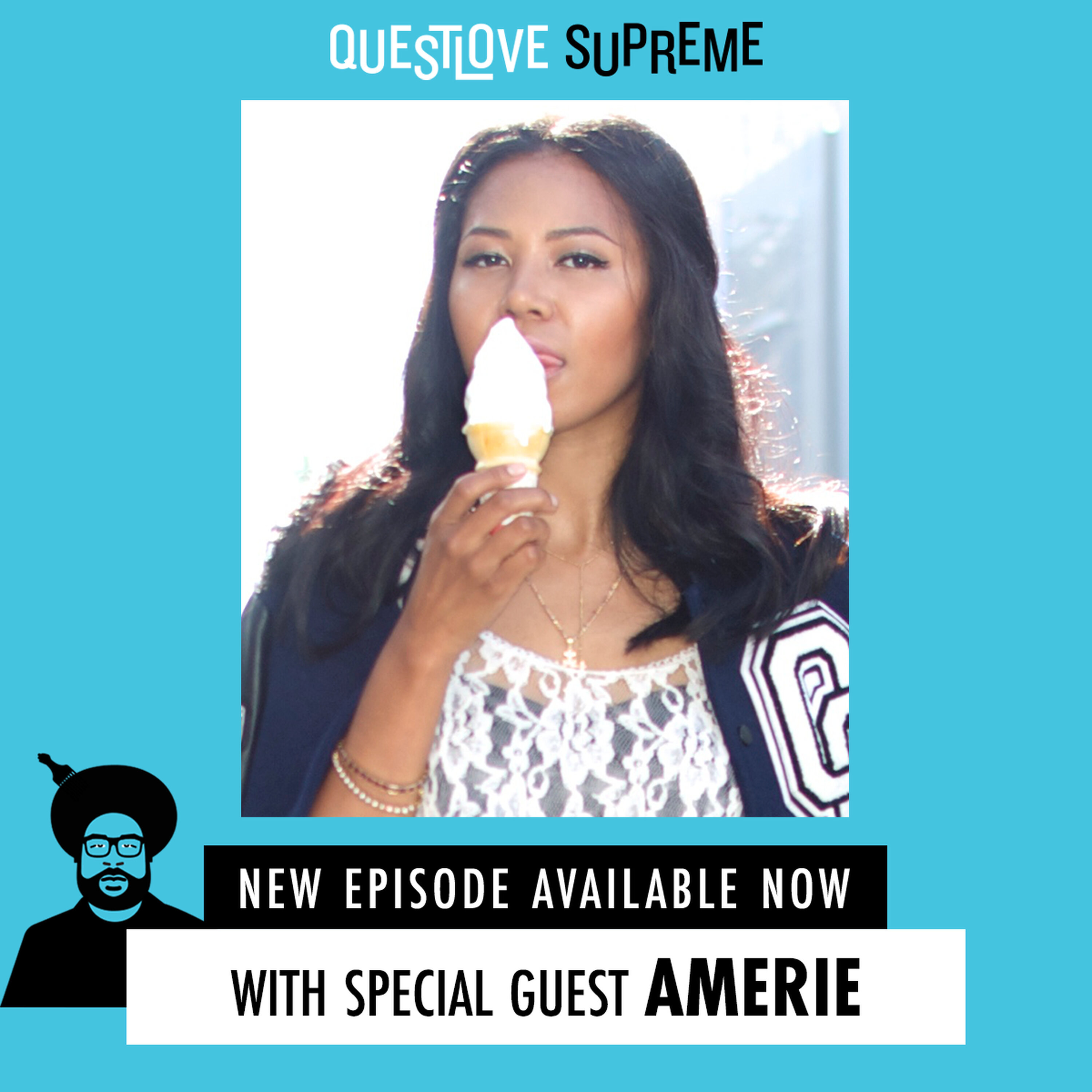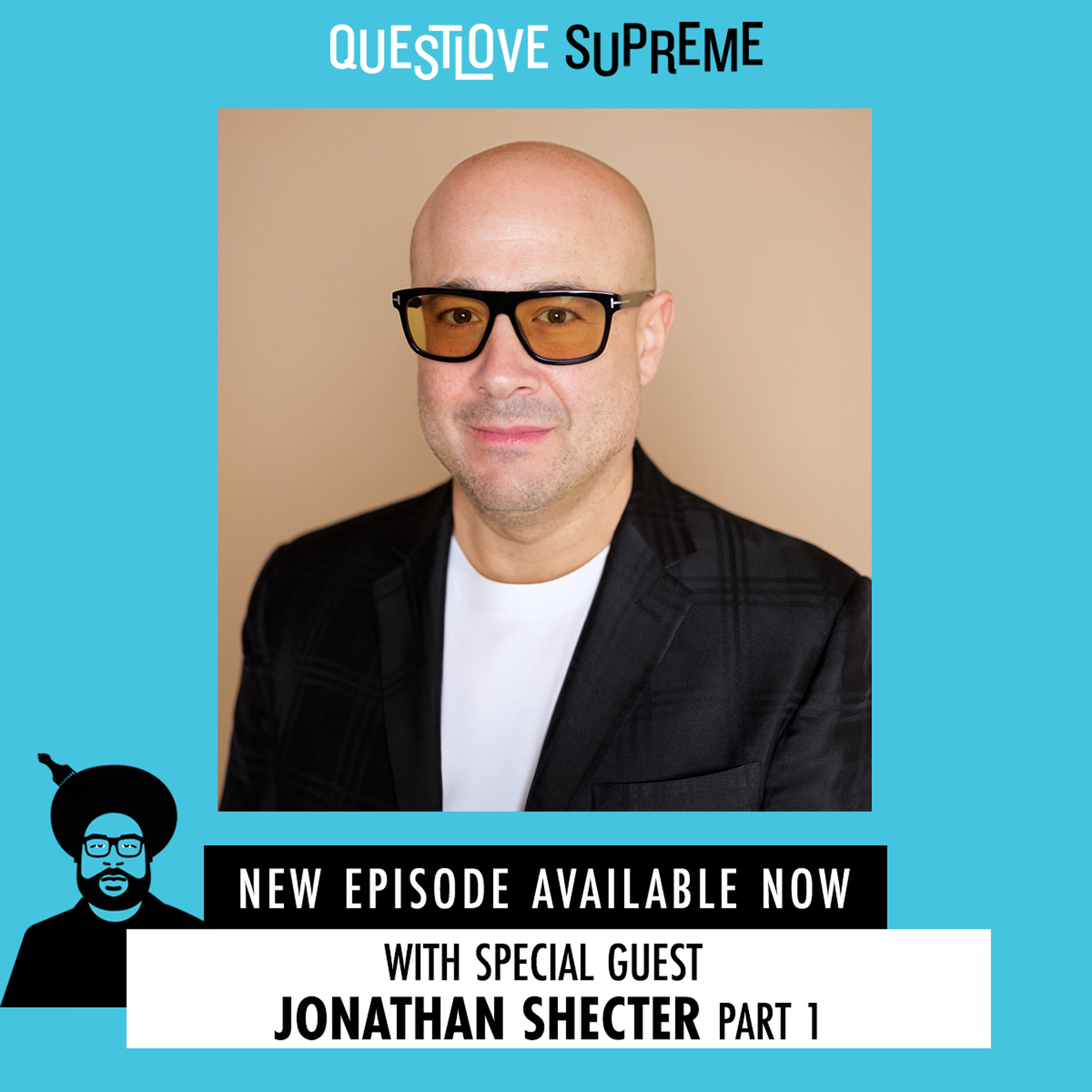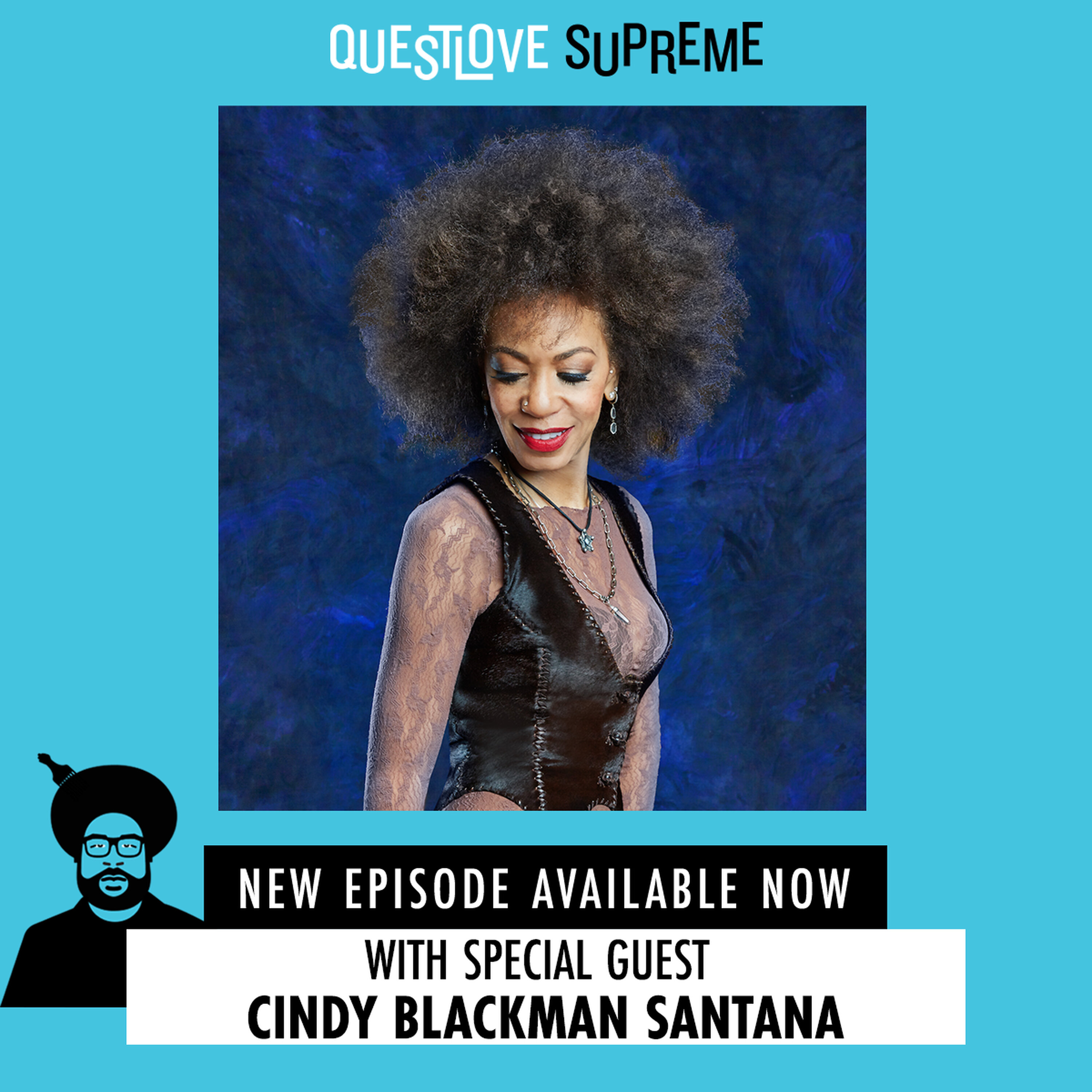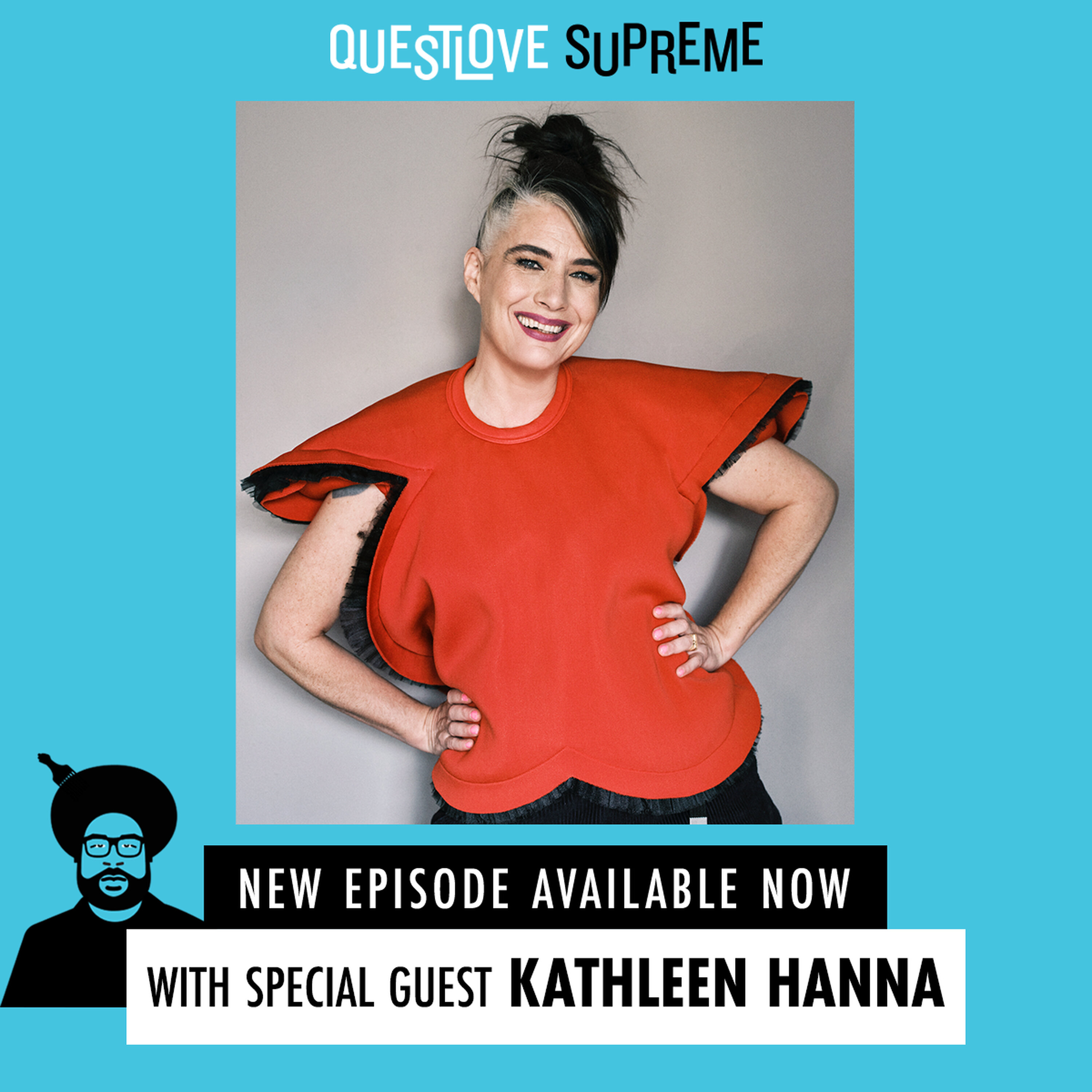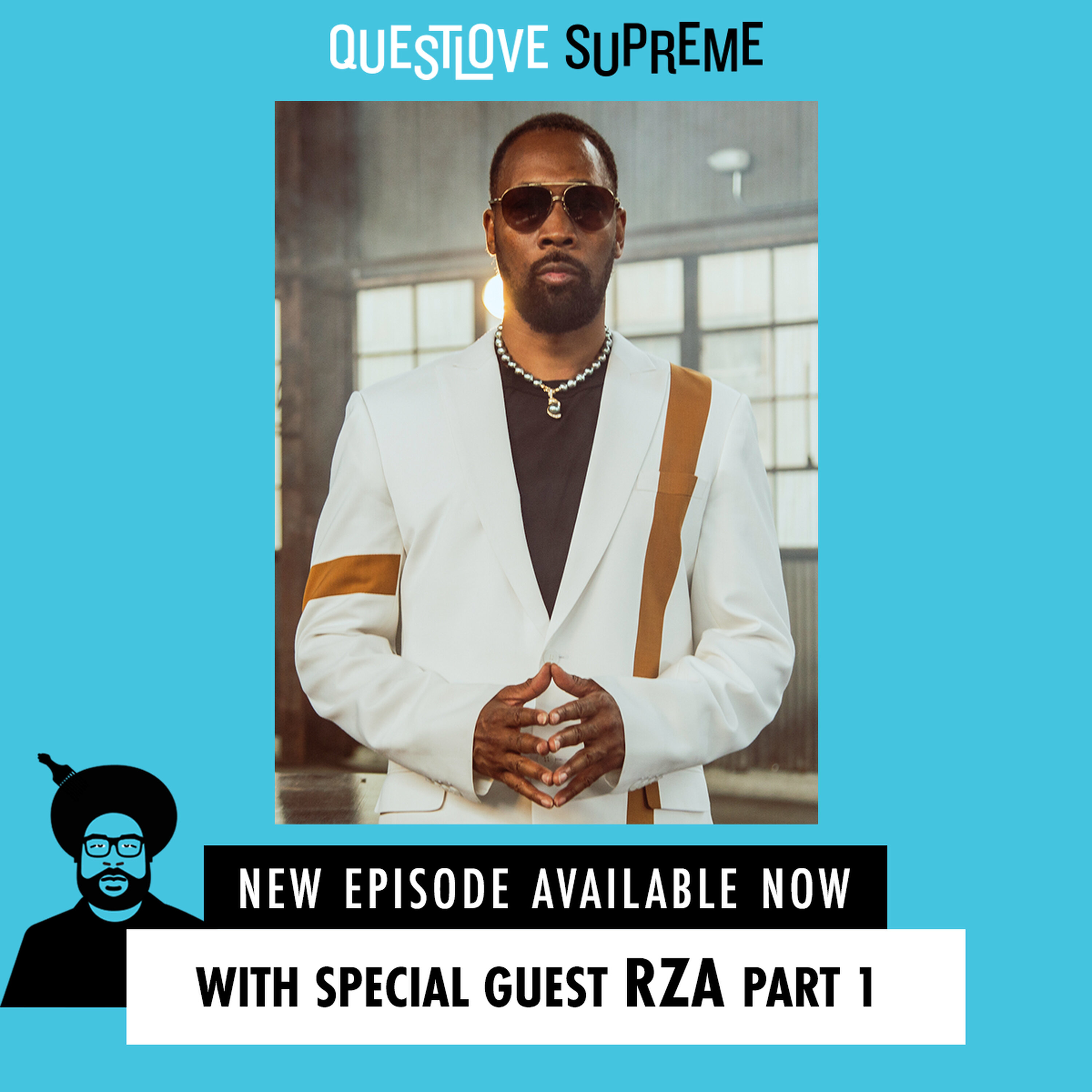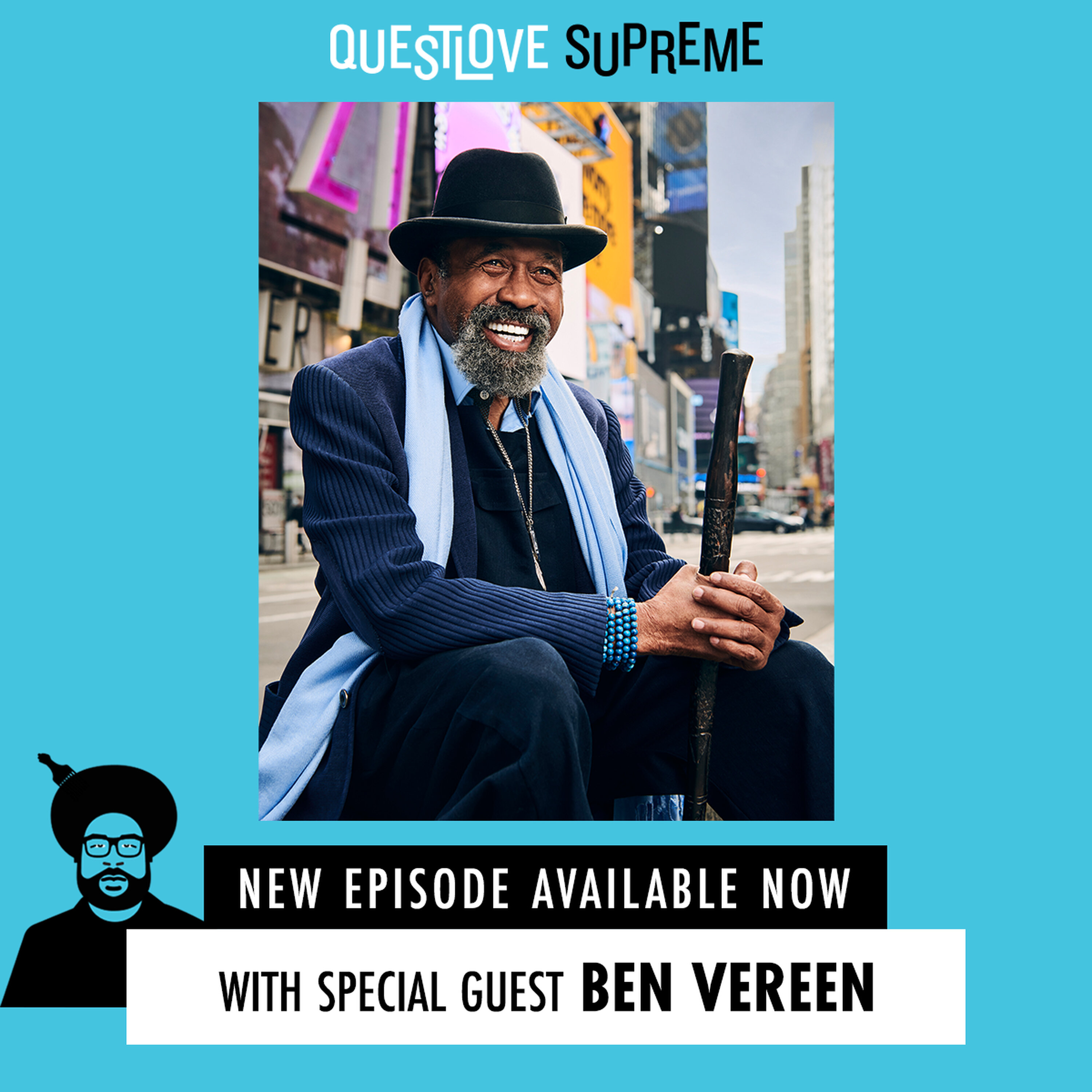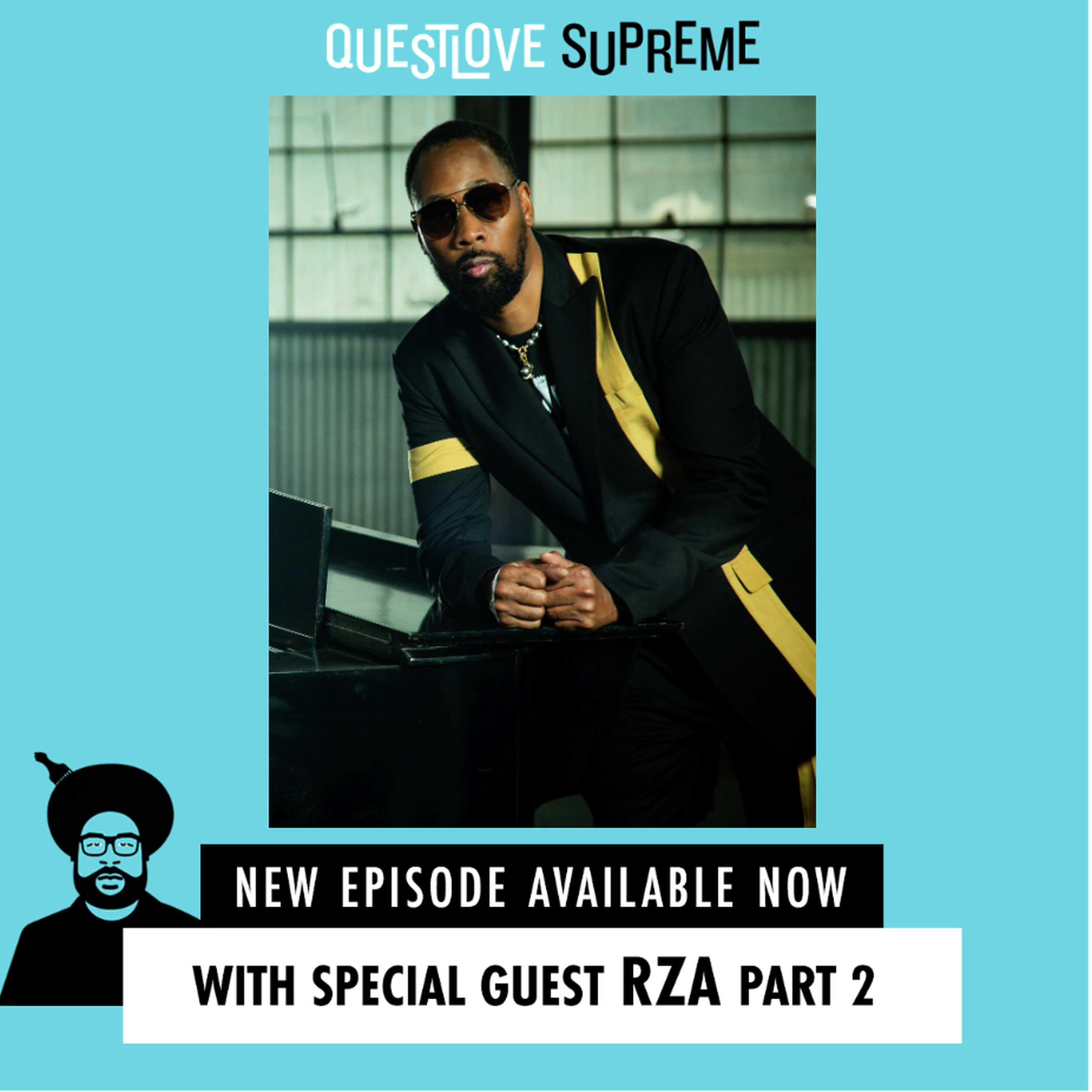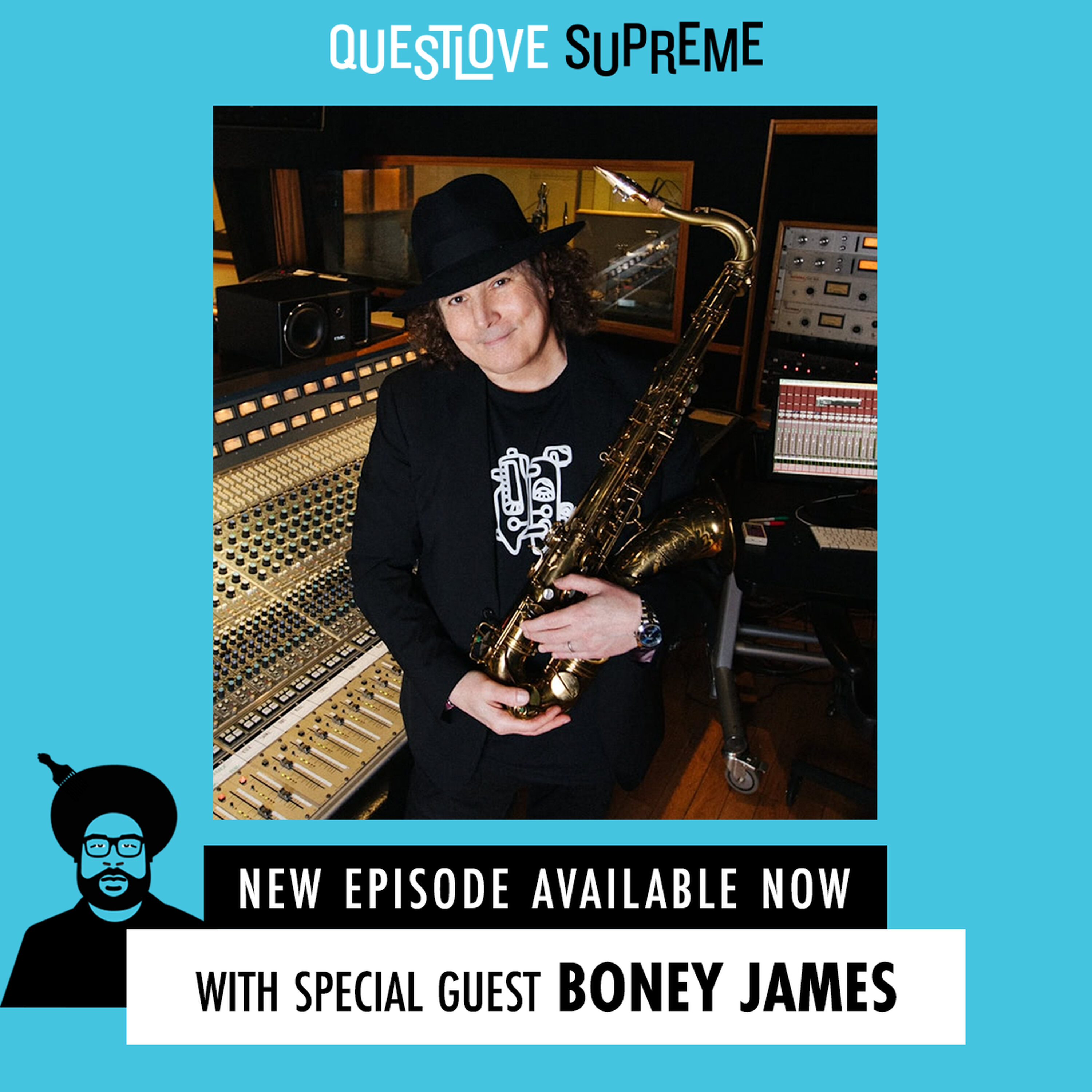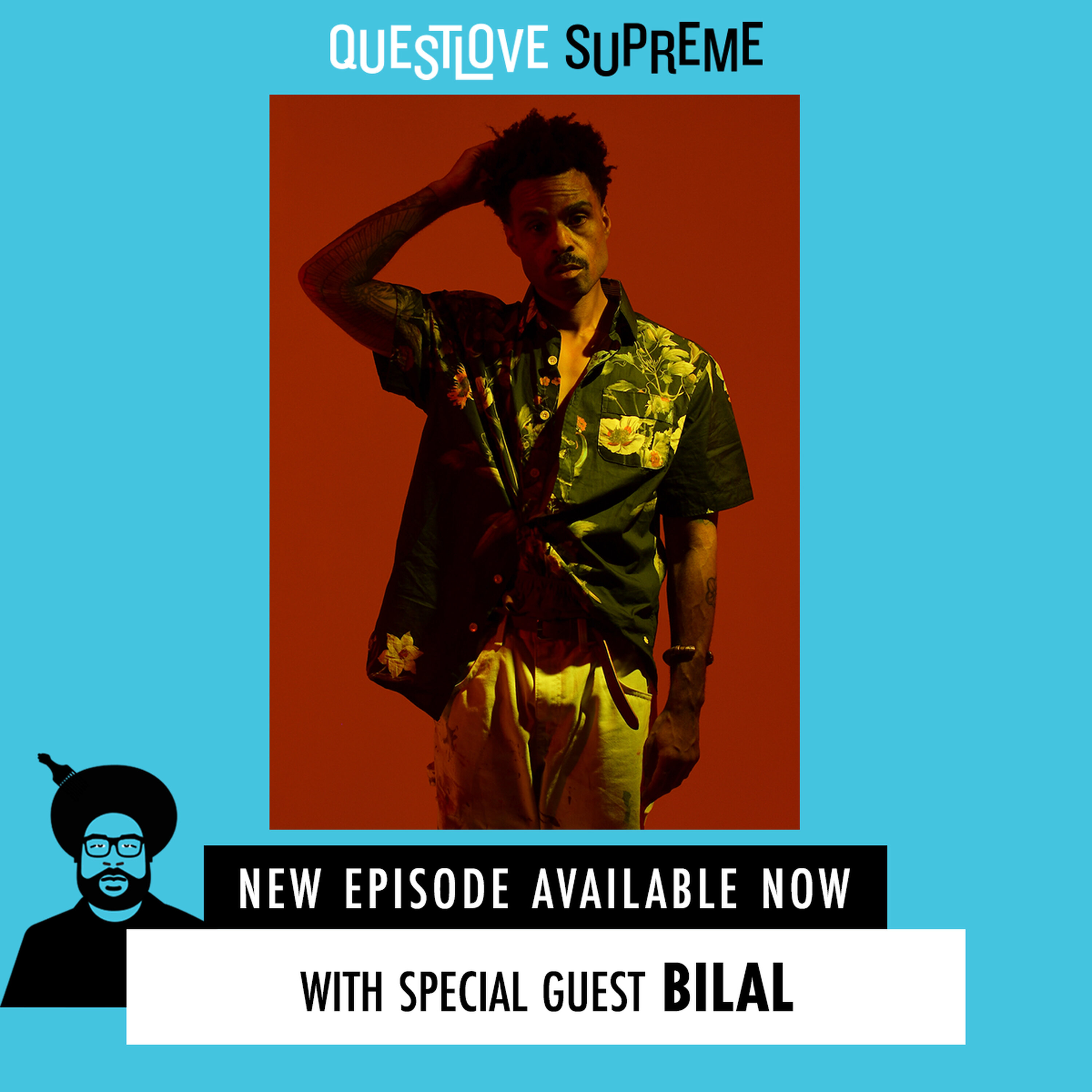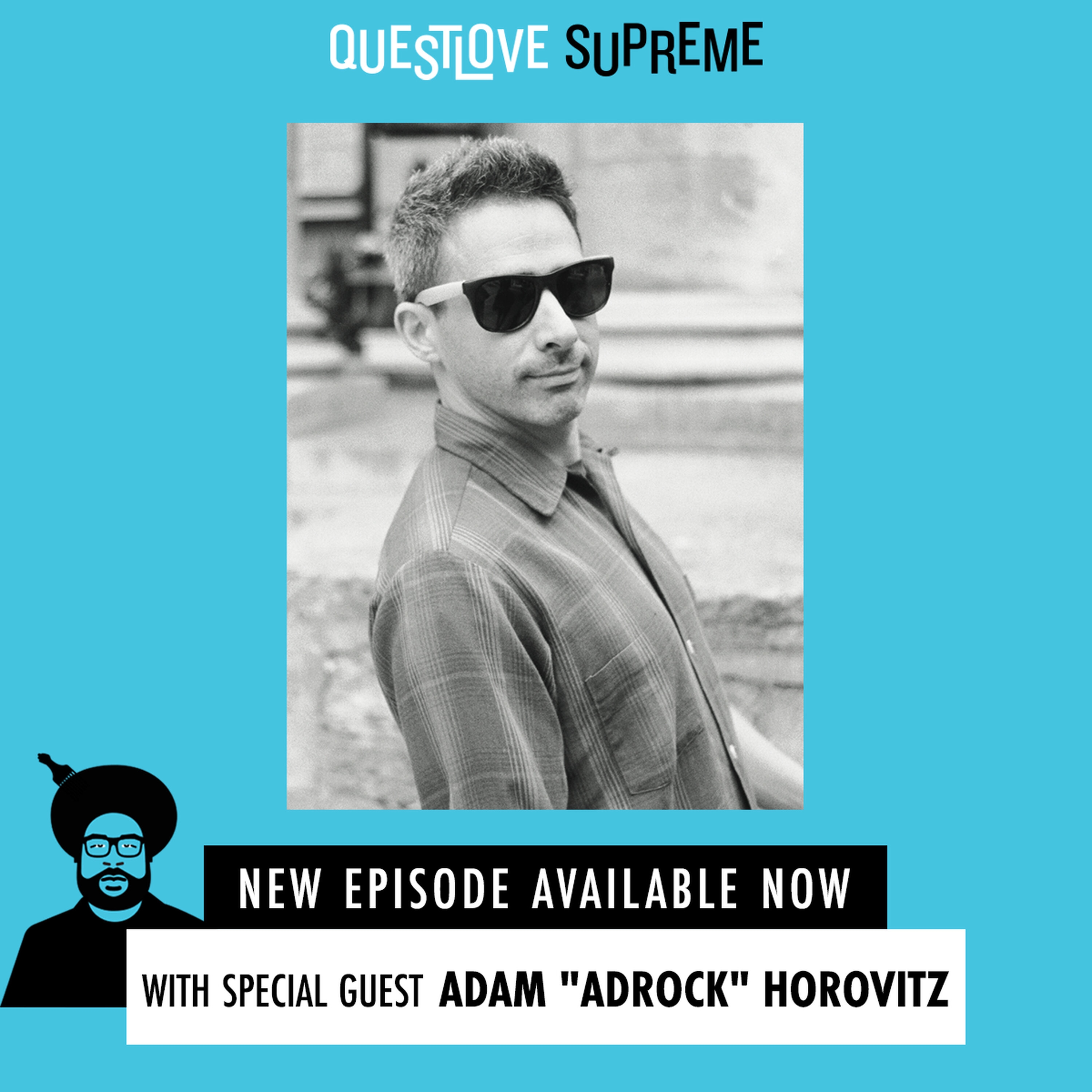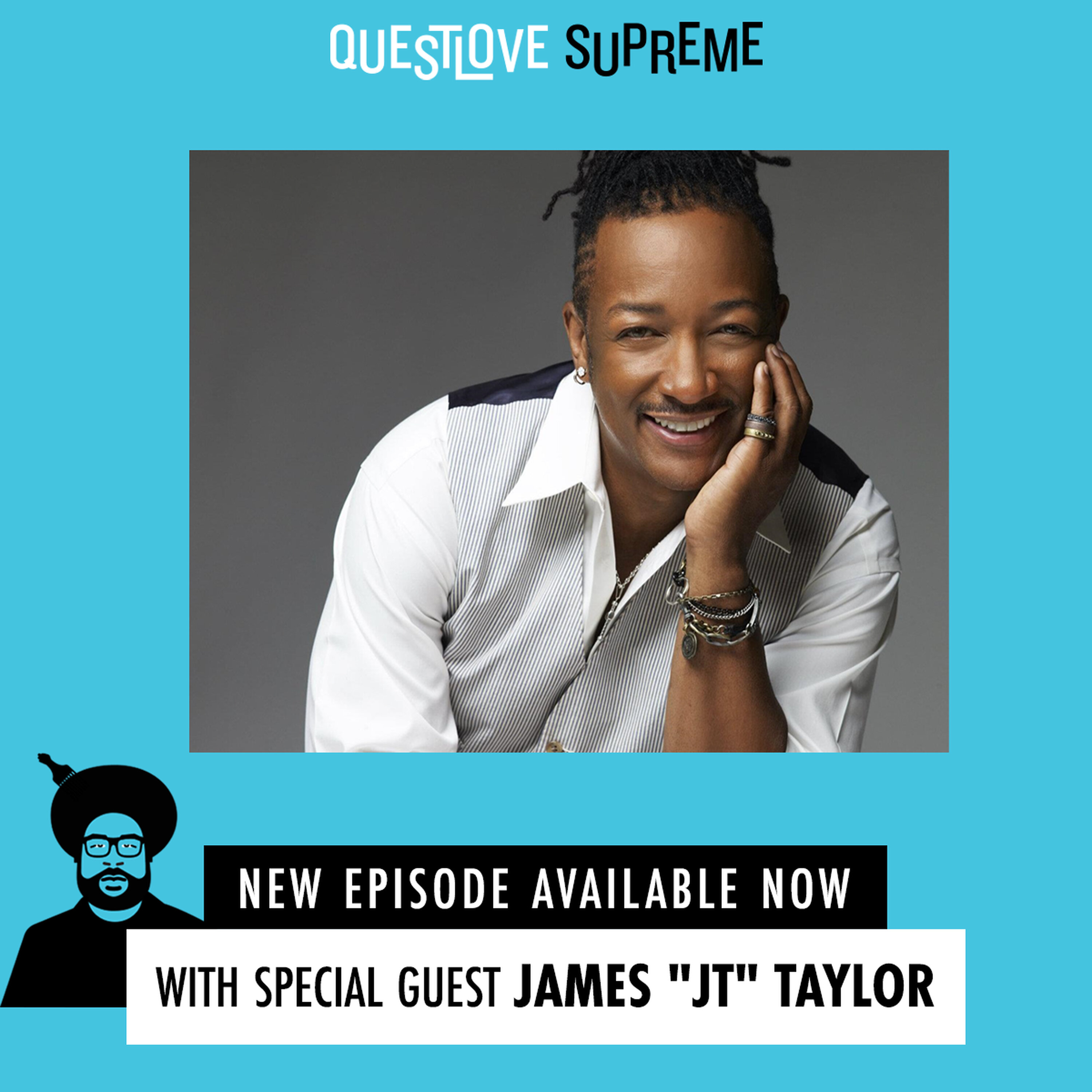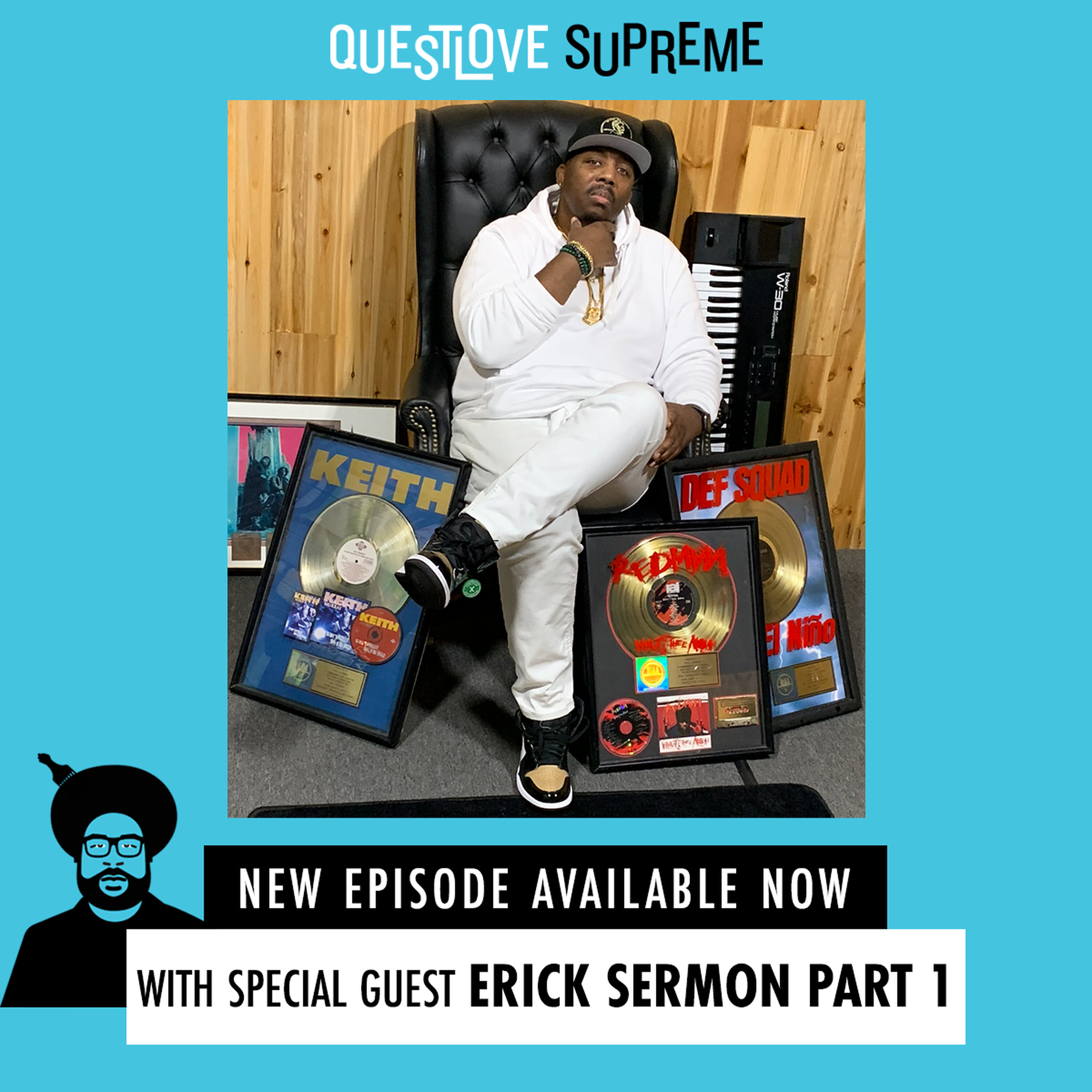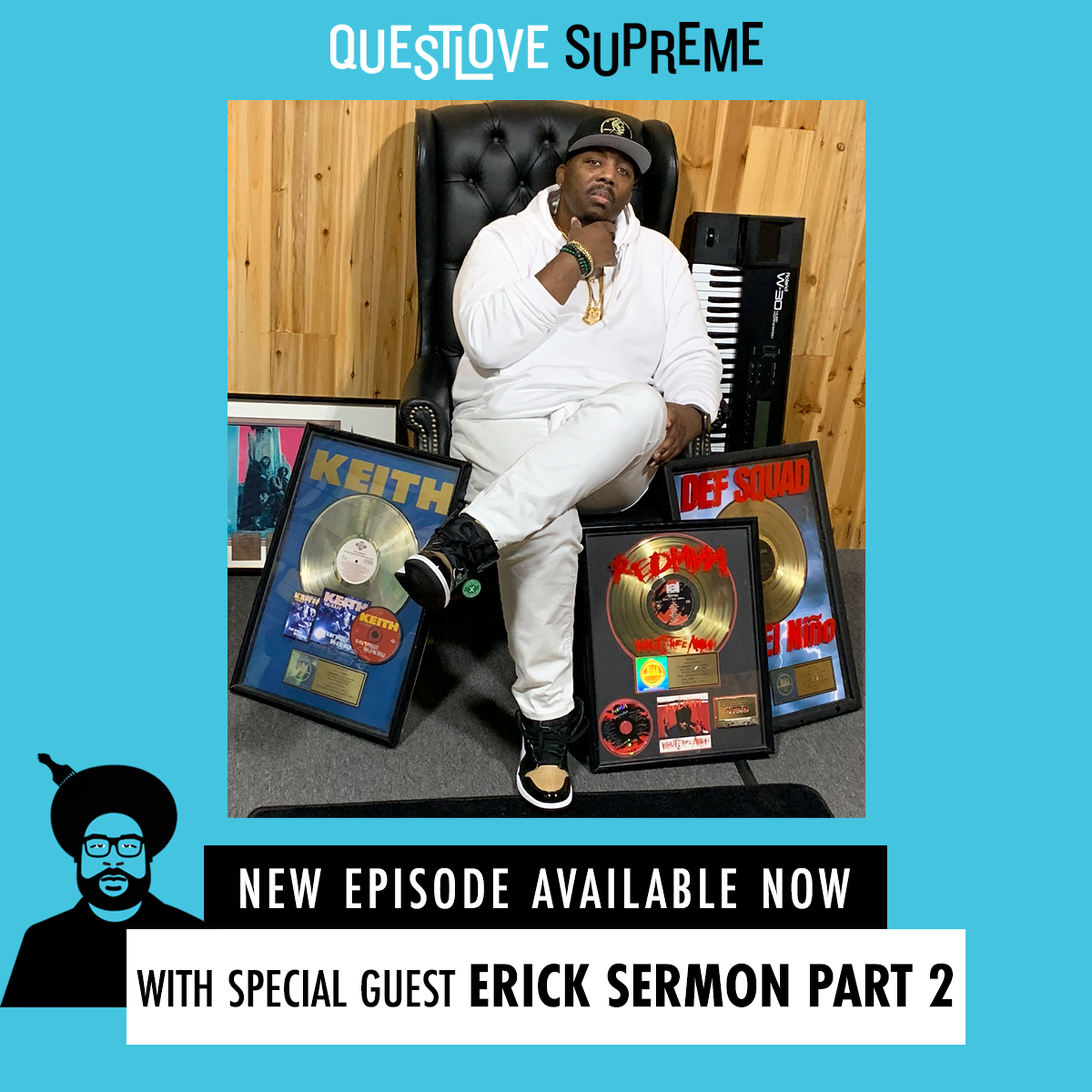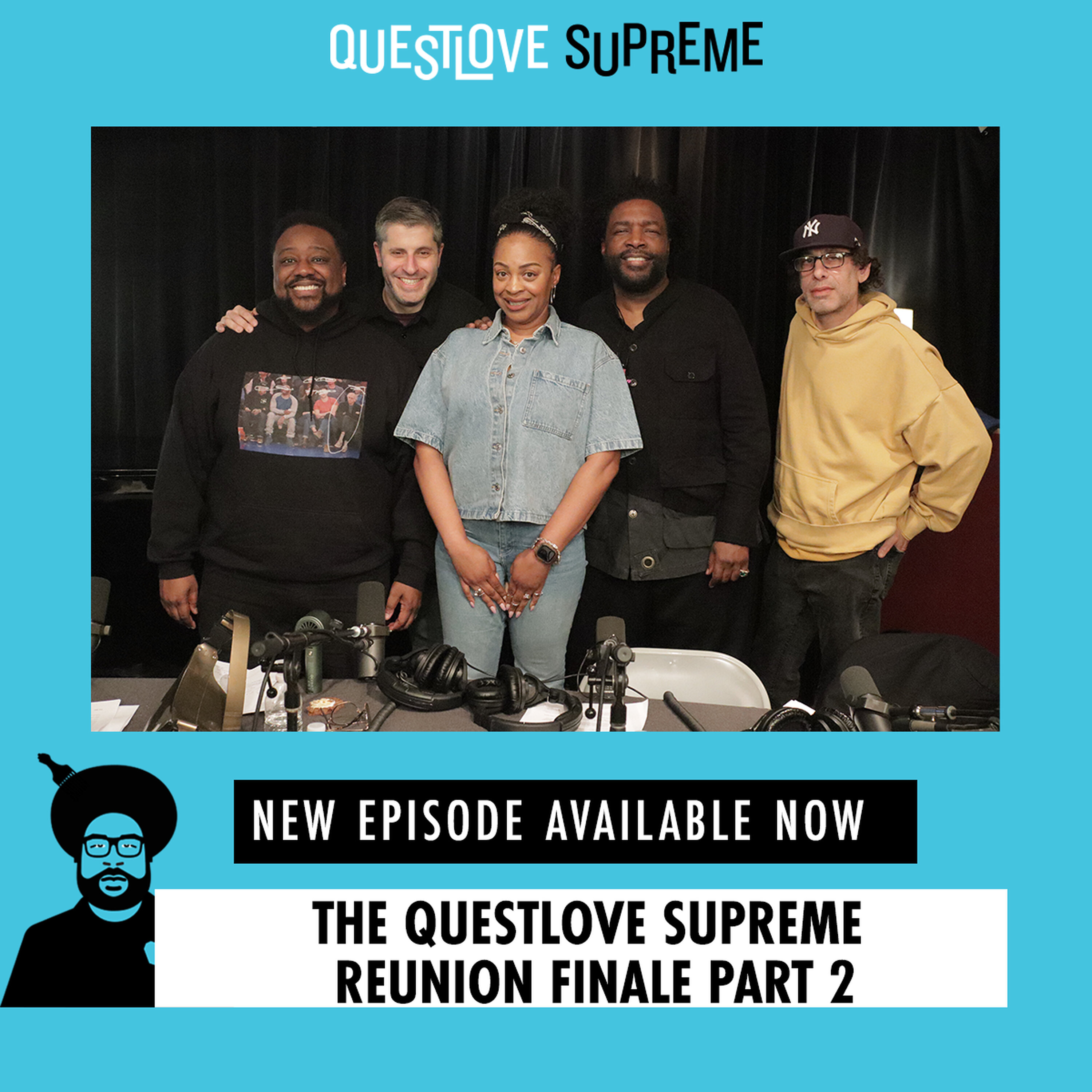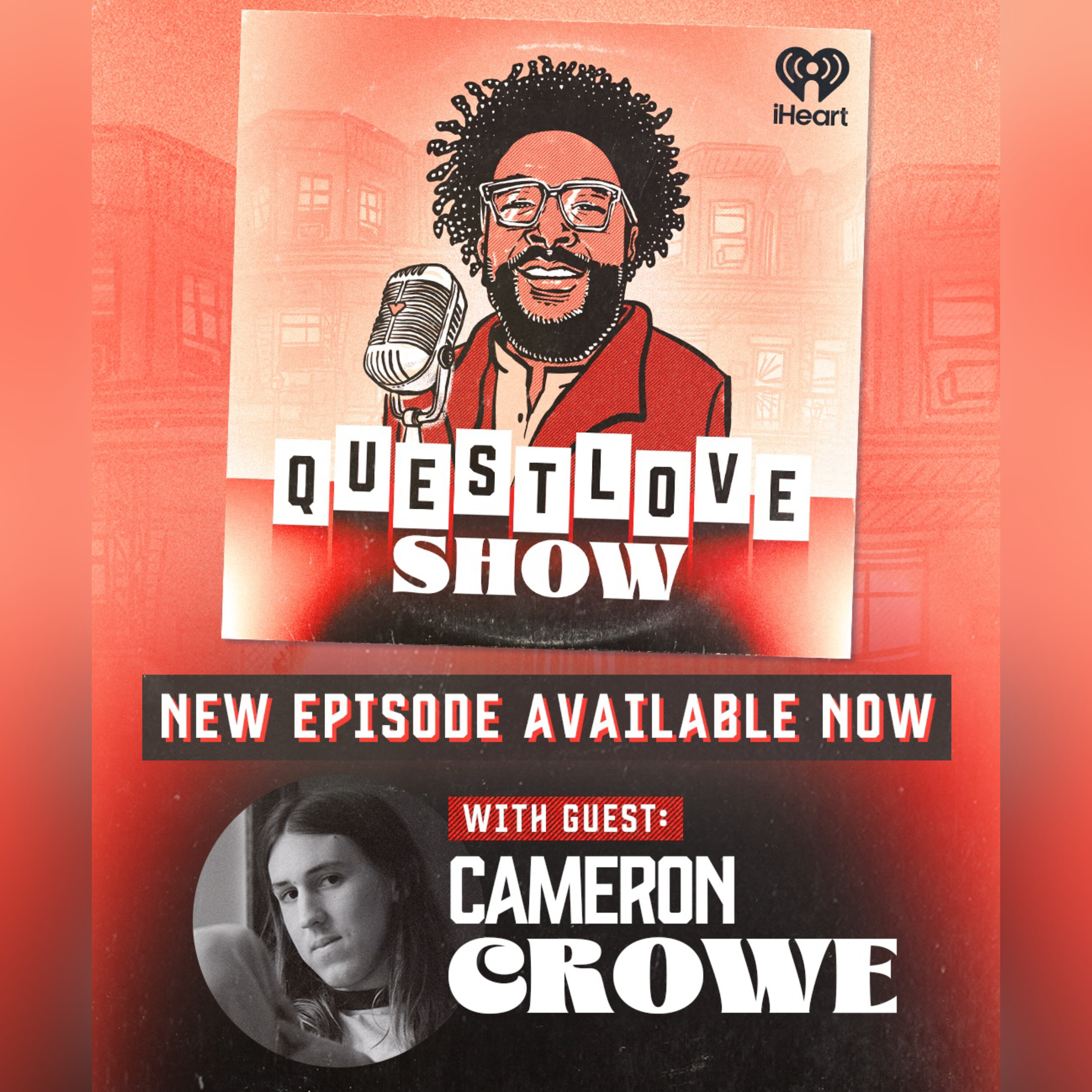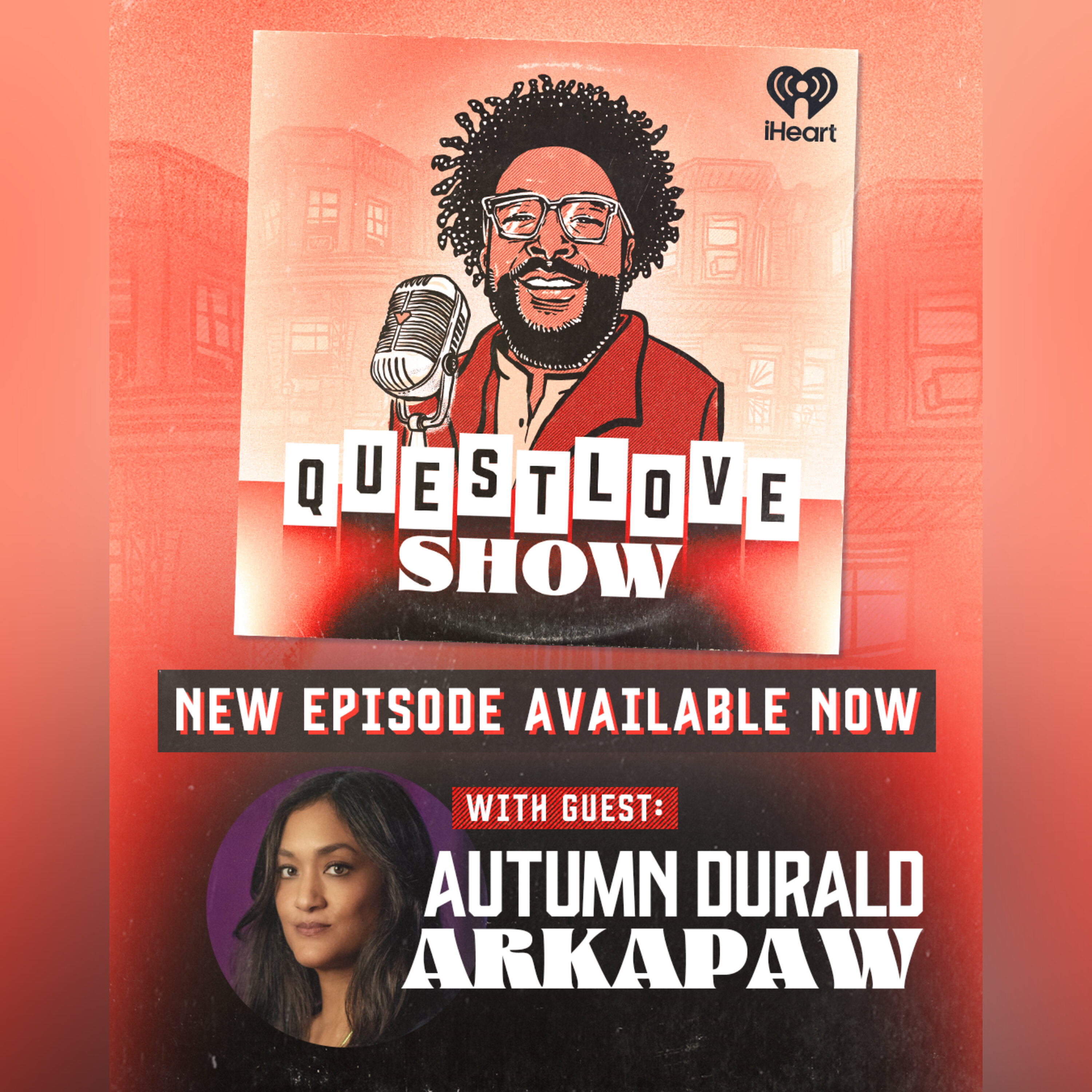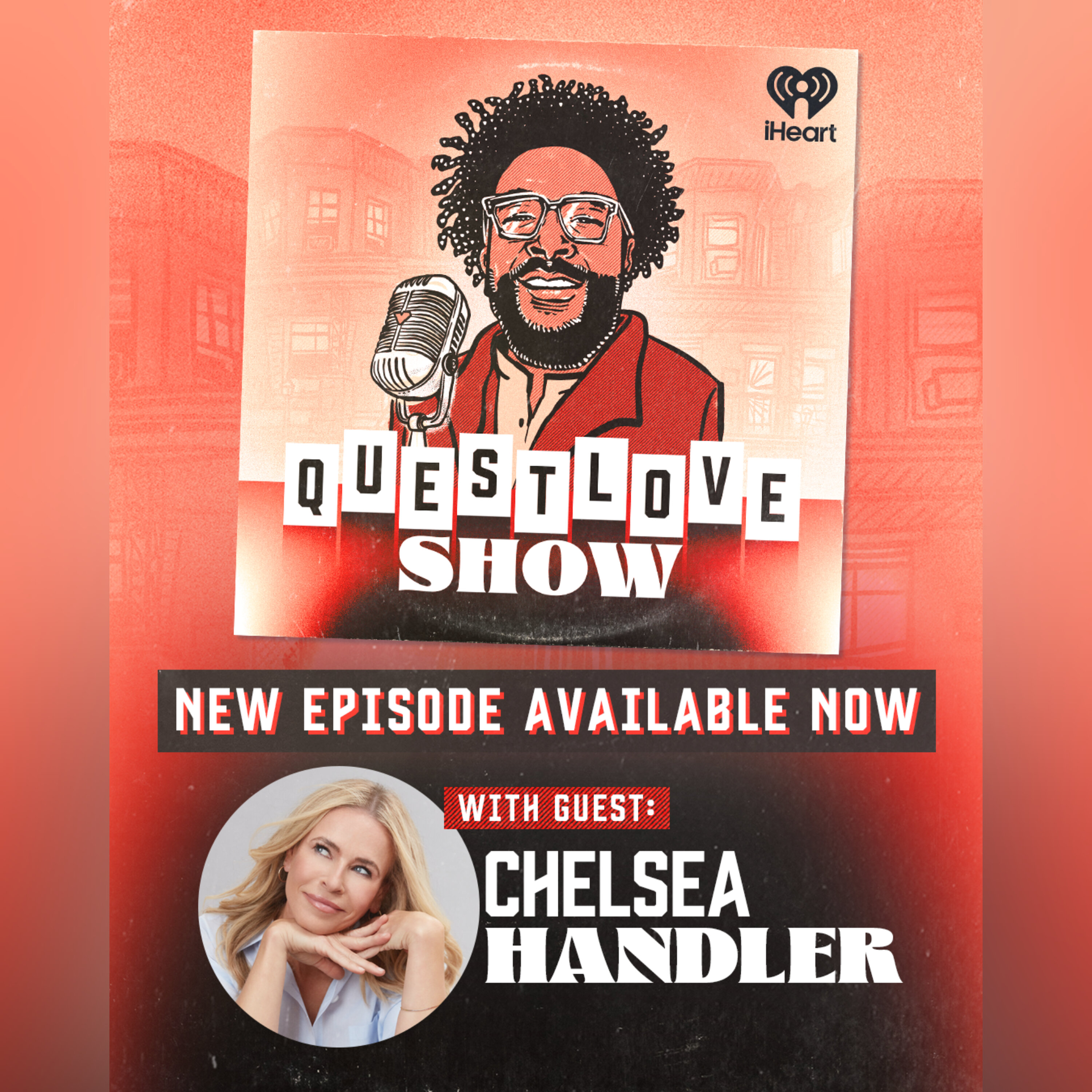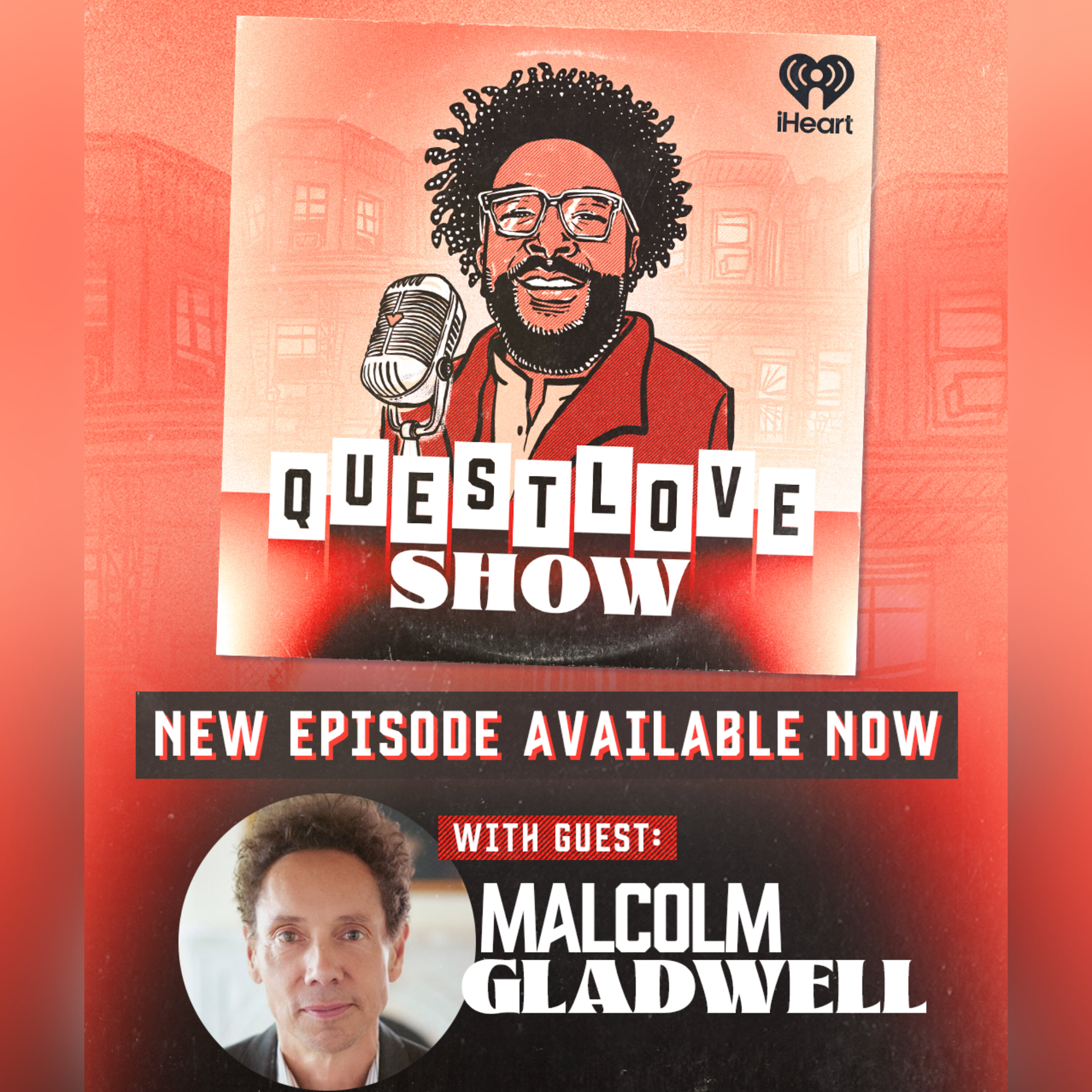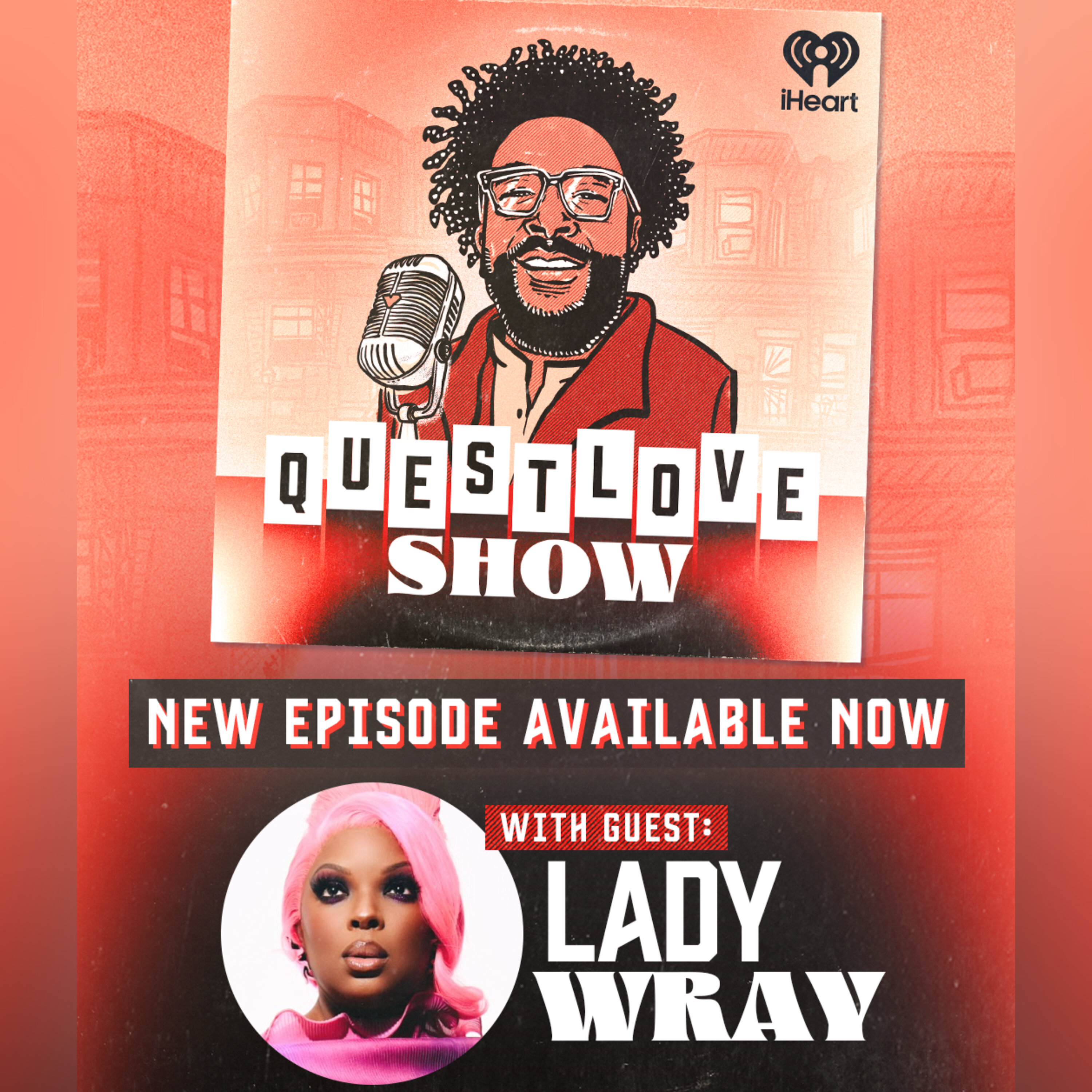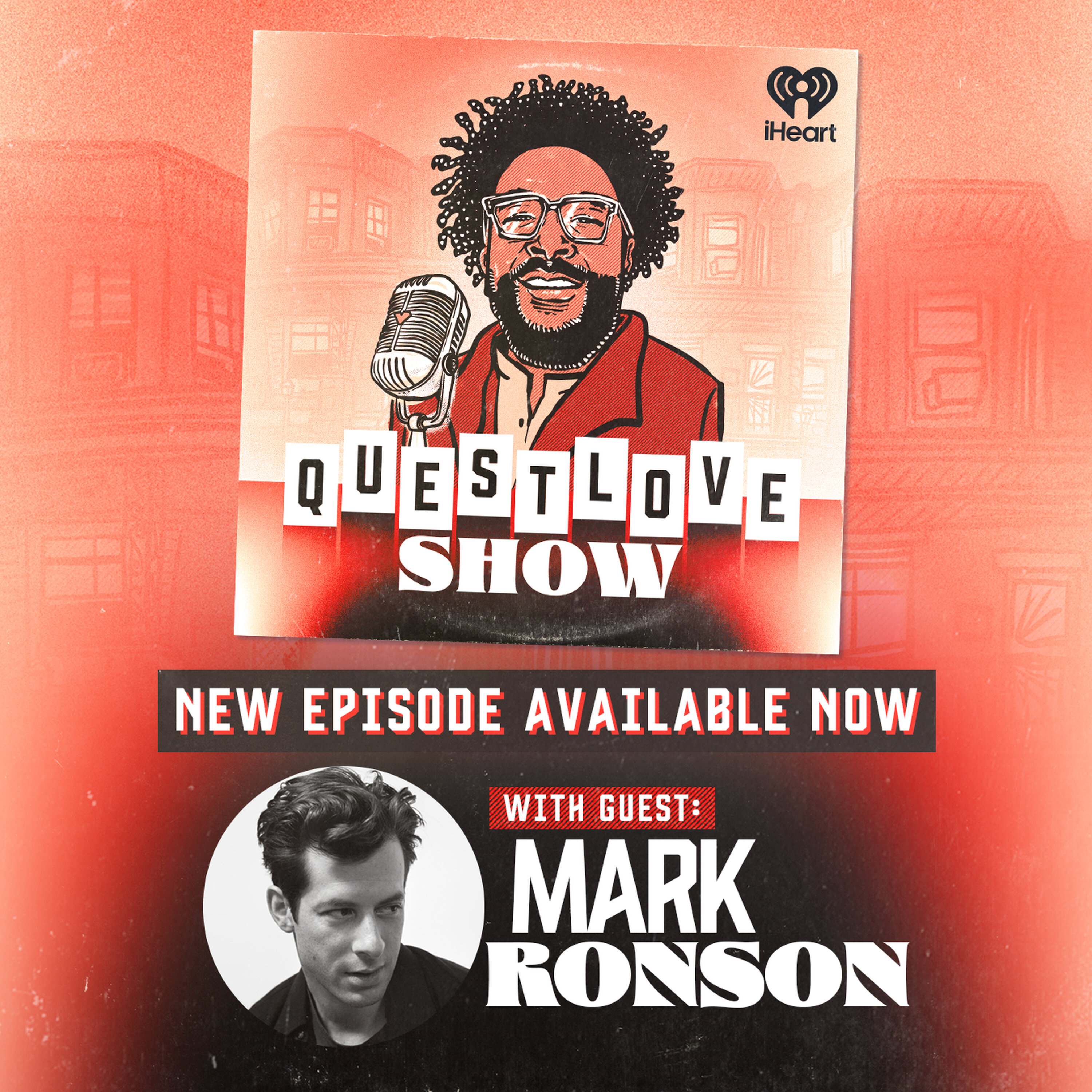David Murray
In the last year, The Roots' Questlove and Ray Angry made an album with today's guest — Jazz legend David Murray. David is a veteran saxophonist and a longtime leader within the Free Jazz movement. In this episode, taped in-studio, David explains why freedom in music reflects freedom in life. He recalls highlights of a 55-plus-year journey with intersections with a who's who of Jazz, as well as Sly Stone and The Grateful Dead. David discusses the moods, attitudes, tours, and figures that have colored his career. He also discusses working with The Roots and collaborating with Quest and Ray for their Plumb material.
See omnystudio.com/listener for privacy information.
00:00:00
Speaker 1: Quest Love Supreme is a production of iHeartRadio, Ladies and gentlemen, You're listening to the world's most dangerous creative.
00:00:40
Speaker 2: Our guest today is a legendary creative in the vein of such giants as Archie Shepp. In order that Coleman and Albert Island has pushed the envelope of what music and what mom modal jazz is.
00:00:56
Speaker 3: It's pretty much carrying the culture on his back right now, having made over two hundred albums and recorded collaborated with the likes of Max.
00:01:06
Speaker 4: Roach Coas, mahal A, Mary Boraka, The Grateful Dad, Saw Williams, The Roots, Gregor Reporter, the Plumb Projects.
00:01:18
Speaker 3: He leads the world saxophone quartet for over forty years. Pretty much. He's going to realign the Brave New World Trio and come May of this year, his new project Francesca will be available for mass consumption for us to listen to. Please welcome to the show, David Murray, what's my supreme?
00:01:38
Speaker 5: Thank you?
00:01:42
Speaker 3: So I have to say, and you know I've said this to you before. Your biggest champion is no longer on this plane with us, But you know I came to know you because of my manager, Richard Nichols, who before I even met Richard Nichols. Rich was like the guy that that you listened to on like the free jazz station in Philadelphia Radio, and he would constantly play levels of spiritual and free jazz that I never heard of before. And he would play your records. And even though Rich was.
00:02:16
Speaker 6: Talkative, like I rarely heard Rich.
00:02:20
Speaker 3: Talk passionately about things, well only because I meant Rich was passionate, but he was also.
00:02:28
Speaker 6: Like to know, Rich is very extreme.
00:02:30
Speaker 5: But he was part of that crew, you know, the empty fox hole in Philly Temple University.
00:02:37
Speaker 7: W r T I.
00:02:38
Speaker 5: He was part of that whole crew that that accepted us would open arms. During that time, I mean I was playing, I was playing with Sonny Murray and Trey's Lounge and hanging out in Philly, you know, doing those kind of gigs. I had some very early days in Philly because I came out from California and people like Rich you know, they kind of helped me settle and Philly was almost like a second home for me because I couldn't go home, you know, because I was three thousand miles away. And I noticed that a lot of cats in New York, they go to Philly and because they felt warm because that WRTI family, Richie and all the people there love Wig fam Trick. Even that was after he was after but people like that.
00:03:23
Speaker 3: So I'll say, like a month after I met rich we had our first music arguments, and by music really mainly jazz arguments. And you know, the thing was, I was going to school at a time with a bunch of young lions like Christian McBride, Joey dem Francesco, Kurt Rosewinkle like all these cats who are like now today the establishment, and like in order to get those guys respecting high school, there's a certain language you had to speak. And of course because those guys were younger, they kind of went to the route of where Winton was leading jazz and the way that rich would just come down hard on like no man, like I know you think, and he had to put it in ways that I can understand, which you know, the time he was like, basically this that you're listening to is would basically be like what bad Boy is, like how people think, you know, there's there's there's a sective people that believe that that's not the true, real hip hop. Yeah, real hip hop, and you know some people that wouldn't know better.
00:04:33
Speaker 6: It's just like, hey, that's hip hop.
00:04:36
Speaker 3: And I was like, well, give me an example of what you think it is, and pretty much like he just it was important to him that he sort of reprograms me to understand your level of artistry. And once I fell inside that rabbit hole, I couldn't get out of. And it was always richest sort of opinion that because of what he saw as the one step forward thirty steps backwards progression of where jazz was, was like, Okay, we only want to hear this forties bird level of bop and really not move forward like he felt that you and also the M base movement Steve Coleman, Greg Osby, like people really pushing the envelope should have been way way like he's like he's a modern Coltrane, Like he's a living, walking god amongst us.
00:05:31
Speaker 6: Do you ever tire of that kind of.
00:05:34
Speaker 3: Fan worship from jazz enthusiasts, because even when looking up your press, like the Village Voice gave you Artists of the Decade in NB eighties, you know.
00:05:46
Speaker 5: Well that's because you know Stanley was talking to Stanley Crouch. He talked a lot and Gary and Gary getting listened to a lot what he said. Stanley wouldn't stop talking, you know.
00:05:57
Speaker 6: So I know that Stanley Crouch was her.
00:05:59
Speaker 5: Me was the sixth best drummer in New York. And everybody knows that that wasn't true, right, right, So you know he said, he said a lot of things, you know, and uh when him him and went and hooked up, and uh, that was a kind of a stormy situation. I'd say they became some kind of jazz police or something like that.
00:06:19
Speaker 6: Right. So that's the thing.
00:06:20
Speaker 3: How do you what put him in that position where he was that authority figure? Was it Robert christa gal giving him that much leeway at the Village Voice?
00:06:30
Speaker 5: Well, he was my English teacher in college, you know, Pomona College in California. I mean he had he had he had probably one of the most popular courses on Herman Mailville. Uh there, her Herman Mailville, the guy who wrote Moby Dick.
00:06:46
Speaker 6: Ok.
00:06:47
Speaker 5: Yeah, and uh yeah, so he's a writer, you know. So uh and he is the kind of guy that would uh he gave me a card one time that had his his his fingers in a boxing glove on type bye and that was his business card, you know, so like you know him and Ishamael or Reid called me up one time and said, hey man, your boy Stanley's going for the championship. So you know, Richie knew all he knew about all that Richie knew. But Richie was also fighting against that because you know a lot of Richie could see through all that bullshit?
00:07:22
Speaker 3: Was he that volatile though, because I've heard stories of you know, before he passed, Great Tate told me a story of like Stanley will be in the Village Voice, like having arguments of music with writers and then it goes to pugilism levels.
00:07:38
Speaker 5: Oh yeah, well you know, tell you I like him too. But I remember he wrote an article about me trying to get trying to find his place too. He wrote an article about me in the Village Voice called David Murray half stepping what really?
00:07:51
Speaker 6: Yeah?
00:07:51
Speaker 5: And when I seen him, I talked to him about it. You know, I want to I.
00:07:56
Speaker 6: Want to approach it to a lot of people.
00:08:00
Speaker 5: I talked to Winton too, I mean I talked to you know, I wasn't scared.
00:08:03
Speaker 6: I was going to say, have you ever had a conversation with me and.
00:08:06
Speaker 5: Winton had dinner not so long ago. It was wonderful. Look, we buried the hatchet, whatever hatchet there was, we buried it and come to tell you the truth. And I mean, maybe I shouldn't even talk about it in depth the way I usually talk about things. But Winton is a brilliant young man. And I just remember the first time I seen him in Branford. I went to New Orleans when the World Saxophone Court test started. Kid Jordan brought us down there and we played with London Branch and this great drummer forget his name. It was a pharmacist from Mississippi. And I seen these two young men, Winton and his brother. They were in this in this class of kid of Kid Jordan's and bright eyes. They look brillant. Next thing, I know, somebody had said we was against each other or something like that. I said, but that's that young man I seen there and I which was great. You know, there's an article that was in a paper in Paris. They translate all the great articles around the world, different issues, into French, and they put it out in a magazine you could buy. You can see it anyway.
00:09:18
Speaker 6: It was.
00:09:19
Speaker 5: They had a thing that said, is this man destroying jazz? Had a picture of Winton, and then a lot of article was about me and Winton and the argument that we had back and forth and back and forth. But finally in the end, man, you know, Winton has done some very beautiful things, Lincoln Center, Albert Murray's Stanley. I mean, they've created a wonderful situation. And I wouldn't I wouldn't do that for anything in my life. That never would have been me. I didn't want that job, and I'm glad that he's brave enough to do it.
00:09:57
Speaker 3: I have an interest in this only because I see the parallels between because we do this a lot in hip hop culture. You know, the really first generation that was raised on hip hop, we're just around the corner from being senior citizens, and you know a lot of us are looking at those that were born after the two thousands trying to make sense of like is this hip hop?
00:10:23
Speaker 6: If it's not. My general agreement is.
00:10:26
Speaker 3: If I don't like it and it makes me uncomfortable, then they might They must be doing something right.
00:10:33
Speaker 6: They're doing something right.
00:10:35
Speaker 5: That's so good in situations like this, because you know, like we say I'm on the communists. They say, well, it keeps you sharp. Arguments keep you sharp for hip hoppers.
00:10:45
Speaker 3: Nineteen ninety seven is kind of that year in which really the shift of hip hop changed to where we kind of are right now, which you know, it's neither good nor bad because I've heard music that I personally thought, a man, that's classic hip hop, and I'll return to it and it'll just be like the songs.
00:11:10
Speaker 6: All right.
00:11:11
Speaker 3: But and you know, and there's there's production now that's way better than anything that came out, you know, in the last decades. But in jazz music, I was led to believe that, you know, the path that Miles Davis was sort of laying down with. And you know, even though people make the most out of it, just brune on the corner, like the idea of like free jazz and coloring outside the lines is Miles wasn't just the only one. However, you know, something happened in the mid seventies in which a lot of his musicians had to find other ways of making income because of his dependency, and a lot of them started saying, hey, let's just write pop tunes or whatever, and so a lot of his people sort of had to go into other areas of music, which left the gap open. And I guess the perception was that, you know, when you what did you make it, like your first record, like in seventy eight, seventy seventy six, right, so when you arrived then I guess the perception was that you are going to pick the baton up and lead the charge, and then out of nowhere, jazz goes back to the forties. That made people feel safe, like the bop movement suddenly returns, Like in your mind, where did you feel that you were creatively in seventy six when you're making your debut.
00:12:33
Speaker 5: Well, you know, prior to that, you know, I grew up in the Church of God in Christ and the piano player and yeah, she used to be at Ephesians Church and then Missionary Church of God in Christ. You know, all that happy day she was part of all that, you know, So I grew up. I mean I remember the first thing I remember about music. I'm three or four years old, and she's trying to learn how to how to play the foot pedals on the organ, and I'm making the game out of it because I wasn't know enough to go to school, you know. So the next thing, I know, I got a saxophone and I'm nine, and uh, you know, I took to church that night and started playing. Reverend Daniel said, oh, I see, young Davis got a new instrument. U he sounds quite spirited, you know. And I was playing shit like hour out of then. But I didn't know what the hell I was doing, you know, but now I do. So anyway, so when I came to New York, I had played a lot of blues gigs I played with, you know, I played back up the bad singers R and B played in Richmond, you know, behind different singers, Tyron Davids. Different people come through, Davis, Yeah, come through your town.
00:13:46
Speaker 6: What other commercial artists have you played.
00:13:47
Speaker 5: With the new Monics? I mean a lot of people. I mean everybody in the Bay Area, you know. I mean I was in horn sections, you know, mixed company, holmes, uptights and different people, you know, people like that, you know, working players, different people, you know. I mean, I grew up in church, you know, so when I came to New York, I kind of put all that stuff away to kind of get into this new music movement. So when I got to New York. I could tell you. We used to play down the Studio Wei and different studios, and I knew a lot more than a lot of the cats around me. I mean, there was a lot of cats that were playing the horn real hard and long. But I grew up playing the saxophone. I didn't just pick it up. You know. I had history in my sound. You know, the horn has always been my best friend. And I was an athlete, you know. So I could play the horn and I could play it with power, and I used circle of briefing for power, not for long notes. You know, I get louder as I play. So anyway, I'm just saying I scrapped all of what I learned in my teenage years and early years to come into the avant garde because I knew Bobby Bradford, and I knew Arthur blythe I knew Wilber Morris and Butch Morris, and I met all these people that showed me how to go into this area of music. But I had already learned a lot of stuff before I met them. So when I came to New York, it was easy for me to navigate somehow because I had this history in my young self. I had this aut this history already inside of me.
00:15:39
Speaker 8: Hey everybody, it's Sugar Steve from Questlup Supreme. I hope you're enjoying the David Murray episode. Just wanted to tell you that we have some live shows coming up with the Blue Note to promote this album to David Murray and Quest Love and Ray Angry are on called Plumb from Jami Recordings. The live shows are happening August twelfth, thirteenth, and fourteenth. That's a Monday, Tuesday, and Wednesday, or two sets each night. We hope to see you there and we hope that you're enjoying Plumb and QLs have a very merry Christmas.
00:16:13
Speaker 3: Were you aware of the perception like I always thought that or I was under the impression that New Yorkers kind of looked down on California musicians jazz musicians.
00:16:28
Speaker 5: Yeah, because they know because a lot of a lot of the jazz musicians from California, they end up playing that smooth jazz in LA and I couldn't stand that kind of stuff.
00:16:39
Speaker 7: So it's valid.
00:16:40
Speaker 5: I couldn't stand it. So when I came to New York, I wanted to play I wanted to play hard. I mean I heard, I mean I was like coming out of Interstellar Space with Train and Rashid Ali. That was like, that's what I wanted to do kind of stuff like that, you know. I mean I met son Ron, hung out with him and Rashan out there. Yeah, you know, I met Sonny Rollins, you know, and I wanted to be like those guys who was.
00:17:05
Speaker 3: The first stop you in your track moment when you realize that the saxophone could go way past stan Getz or just someone that you know, was more melodic and really didn't come out of lines like the whole spiritual jazz movement, because even then there's still this talk of like, well is this jazz is this?
00:17:28
Speaker 6: Well?
00:17:28
Speaker 5: When I heard Coleman Hawkins play The Possibility of the tenor, it really the way he played it was endless. I mean to me, he was playing avant garde, just pressing his notes, you know, doing those standards, playing body and soul and all that. The way he is rhythmic approach was. I mean, everybody that plays the tenor saxophone copies Coleman Hawkins was.
00:17:52
Speaker 6: Ornette Coleman was. He's someone that you listen to.
00:17:54
Speaker 5: Of course, Yeah, of course, of course. Yeah. I mean Bobby Bradford used to play with on that so we talked. We talked in LA when I when I passed through LA, I was in Pomona College and I never really spent that much time in LA. I was mostly on campus, and then I came to New York on the independent study. And then I was still continuing with my sophomore year. I just kind of just started making records and the next thing I know, I hear I am sitting here with you guys.
00:18:26
Speaker 6: Just like that.
00:18:27
Speaker 3: Oakland, California has a rich, deep history of black musicianship.
00:18:32
Speaker 6: Yeah, like Sliling family Stone and everything.
00:18:36
Speaker 3: I'm a Slyer church really when when I was a kid, can you tell me about it?
00:18:43
Speaker 5: Yeah, we went to valletj to some you know, they always have these pastors appreciation times. You know, one church goes to another and they raised money for the pastor and then they reciprocate. You know. It was one of those kind of deals. That's what that's that's why I met him in the poolpit, you know, up there with the band. I didn't know who he was at the time, but yeah, I mean I I look back on it. Yeah, I met him.
00:19:07
Speaker 6: What was your acronym?
00:19:08
Speaker 3: Oh, KOCHI koch Yeah, yeah, like what denomination is that?
00:19:14
Speaker 6: Is it?
00:19:14
Speaker 5: My mother was Tremaine's godmother. We used to take baths together, me and train Tremaine Davis, which who became Tremaine.
00:19:26
Speaker 6: So.
00:19:27
Speaker 5: Yes. So we lived not far down the street from Ephesians, so a couple of blocks from the park there in Berkeley. So yeah, I mean I grew up with these people.
00:19:37
Speaker 3: Was there any point in your life in which you did desire, uh more of like a commercial route? I mean the music of Junior Walker, the music of you know.
00:19:49
Speaker 5: My mother passed when I was thirteen, and three years after that my father re married to Vernon. And she said, I just loved that Bernard Johnson. He's just he's just really loved, you know, the saxophone player of Bernard Johnson. That's her name, right, And he's got a story, you know, he's got that thing trimple in this. It's beautiful. And he said, David, you can't never do better than him. It's okay. I said, all right, I love Bannard too. I'm not gonna I'm gonna leave that to him. I'm not gonna I'm not gonna be the gospel guy. No, No, that ain't gonna be my thing. I couldn't wait to get out of the church. But it was a beautiful experience on the other hand. But I'm still with God. But I'm not I'm not absolutely well. I believe that.
00:20:36
Speaker 3: Assuming anytime that you played in church, were you allowed to even go to that level of.
00:20:44
Speaker 5: Not then it was different then than it is now. I mean when when they started rocking it, I mean the church that I went to, I remember that women. I remember the big thing was culos, when they could have start wearing when they could start wearing culos, uh to uh, Sunday school, picnic and whatnot. See, that was a whole nother time. See, now they have dances that are gospel. You know, my people in Texas, you know, they they have gospel kind of dances where they they danced the beautiful hip hop, you know, gospel hip hop. And you know, it wasn't like that before. Women couldn't wear a jewelry, you know, I mean, it was a lot of things that you couldn't do during that time. Then the music just blew up and then people started realizing that, oh these Kojak musicians are very very good.
00:21:32
Speaker 9: So Koching is the same like Baptist Church Kojk church. They both rock out like that you're saying. As far as musically, they both just get the same, get down the same when it comes.
00:21:43
Speaker 5: To well, my brother right now, my brother, he's a Kojin musician. He plays piano like my mom and directs choir. For instance, he plays the three Baptist Church every Sunday. Okay, that's when he makes his money up and he runs choirs. Some churches, I'm not gonna knock on any religions. Some churches just don't. They don't have the musicians that the Church of God in Christ seems to generate. That's that's all I'm saying. Uh check you check Andre crowd see Andre. Andre. First of all, Andre and Stanley's first cousins.
00:22:22
Speaker 6: Did not know why we want to know about.
00:22:27
Speaker 5: All right, all right, look wait both of them walk you're ready, both did now, So I'm not talking about nobody. So but I'm but I'm saying you see that in California at that time, two bishops h Bishop Cleveland and Bishop Crouch. One is in l A. Crouds in l a Cleveland's in the Bay on Alcatraz and Berkeley. So yeah, there we go, Daddy, so strong, strong families, very strong.
00:23:03
Speaker 3: Was only continuing your studies your main reason for the move to New York City?
00:23:08
Speaker 5: Yes, I got a state scholarship to play music, to study music at Pomona College. I met James Newton and he I had to play flute because I you know, during that time, you couldn't major in John colch ain't like you can now, you know. I mean I had to play far aid to get in college on the flute, you know. So yeah, I met to put my tennis saxophone over there, you know, And so I started playing with the Arthur Blythe and Stanley and Mark Dresser and James Newton. And James Newton hooked me up with the flute, and so I could get in and do all my interest exams and all that because I had won a state scholarship, Because so I could have went to school anywhere I wanted to. In California. I went by Stanford and it was bland. It was nothing happening over there. I went to University Specific. It wasn't nothing happening there. I went to a lot of colleges, but Pomona. The only reason I went there was because I met Stanley, and I met Bobby, and I met Arthur, and I met all these guys who end up coming to New York. And Arthur came to New York. I wanted to go too, So I figured out a way to get this independent study things, so I'll get to New York.
00:24:17
Speaker 6: What was it about Stanley that dread to him? Like? Was it a constant thing of one upsmanship? Or you know? Well?
00:24:24
Speaker 5: I also wanted to be a writer, and I was impressed by his writing. He had written this book of poetry, Ain't no Ambulances for no niggas tonight right, Bob Thiel put it out anyway, you know, And I was interested in all kinds. I was writing poetry. I thought I could be a writer and a musician and real In fact, I did my senior thesis on Stanley's poetry book. You know, after a while, after I known Stanley for a couple of years, I had to get away from his aura, you know, I mean, I mean he was a good friend, very good friend, but when he hooked up with Winton, then I had to put some distance on that. That whole thing. And it's just the nature of things. I mean, I used to hang out with Albert Murray a lot. Then all of a sudden I wasn't welcome anymore. I don't know. It was kind of getting the cold shoulder over there.
00:25:23
Speaker 6: Now, So what was your practice at your height?
00:25:27
Speaker 5: The times when I wasn't doing everything else, I was just practicing. I mean, I just kept a horn in my mouth. I don't I don't even know the hours. It is probably way more than that. I mean, I just would have the horn everywhere. I mean, you know, when you're when you're in your in your teens and twenties, until you have kids, you know that horn is everything you know. And then it's sometime when the kids come there go to some of your practice hours. I don't know, it's just life. I guess. Now my son and I we spend a couple of hours a day every day and be Bop just going over because I'm trying to impart a lot of things to him. Yeah, so you know, to to my son mingus, you know, and uh, he could play the guitar, but he wants to know everything.
00:26:12
Speaker 6: Now.
00:26:13
Speaker 5: He's like a sponge and I'm just glad that he's ready for it because he's played with me, uh in different settings and uh with my octet and with different bands. But now he wants to go inside because I always thought, you know, jazz is the black man's music, and jazz history is so short, you got to know all of it. You know, it's a short history. And you you know, with James P. You know, go back to James being. Get all that, you know, get everything, James P. Johnson. Just go back and get all this. You know, you'll be blake. Just get everything. Jazz is such a short and rich history. We can't just learn one era of it and think we got it all. We can't just copy people's solo and think we got it all. You got to go back to jazz. I mean, I know, bass players people talk about jazz before court changes. I mean, guys have been playing jazz for a while. They didn't even know what to call it, you know. So I'm lucky enough to have known some of these musicians that are gone, didn't gone now, But to go back and talk to people like I was just talking about Duxter Gordon, Johnny Griffin, you know, going back to people who really James Raymi from Texas, the bass player. He's talked about jazz before it changes. I'm like, wow, friend of Steve McCall, you.
00:27:34
Speaker 3: Know, do you feel as though we're in danger of what they say, losing the recipes?
00:27:41
Speaker 5: Perhaps because you know, but jazz is blues, you know. Hanging around with Taj Mahall, he's a student of the blues, you know, and he's probably one of the older significant blues artists out here still. So we got to go back. When we're talking about going back to our roots, we got to deal with the blues too, you know. And most great jazz artists there's a lot of blues in what they do. You know, Duke Ellington, you know, com base it, there's a lot of blues up in there.
00:28:11
Speaker 8: You know.
00:28:11
Speaker 5: You go back to Jimmy Lunsford, there's a lot of blues up in there, you know. I mean, it's what makes us different than other bands. Like if you think of some of the some of the more successful white bands in the history, the thing that's different about the black bands that there's a lot of blues in there.
00:28:29
Speaker 7: I think that reminds me of Leroy Jones. That's what we learned from him.
00:28:33
Speaker 5: Yeah, that's right.
00:28:35
Speaker 3: Like my opinion on musicianship today is that we're doing too much. I would like musicians of my age, and you know, musicians I see now there's a lot of overplaying because no one knows how to gel with each other as a unit. But you know, I also know that there's not often opportunities for bands to even play together unless you know, if you're in church one day out the you're gonna do everything about the kitchen sink. But what specifically do you look for in a musician that you know.
00:29:09
Speaker 5: That they have it? Well, it depends on the instrument. It's like the band I have now, Luke Stewart, he's starting to become one of the well known bass players out. He reminds me a lot of Fred Hopkins. You know, I mean people who really play with soul, you know, I mean not just okay, the education and music these days, I hear a lot of notes, but I'm not sure that they're all true.
00:29:37
Speaker 3: Okay, So I hear people say that, and I wonder, like, what set of areas are you listening to that?
00:29:43
Speaker 6: Because I want to know that as well.
00:29:45
Speaker 5: With a bass player, I want somebody who really is there to support me. I mean, there's bass players that want to get up in your range and play what you're playing, and that's not what the function of the bass. For me, the bass is the is really what swings the band. The drummer swings the band too, but with a good bass player, it really can happen, you know, and from the drummer. You know, just today as far as drums have gotten to this point today with the between you go for Max Roach, you go to Sonny Murray, you go to rash Lee, you go to Steve McCall, you go to you go to Boohinout, you go to different drummers, great great drummers. You know, Philly, Joe Jones, you know uh who I play with. You look for different things in a drummer than you look for in the bass player. But if you put the two of them together, they don't always have to be playing exactly the same thing. It's not like in funk where the bass drum and the bass are playing the same thing and then people say that's a group. No, that's not necessarily it. In jazz, they have to compliment one of one another. And to me, the bass in the drums are the rhythms the pianos. Else, the piano is more of a uh independent in the band. I mean he he or she colors as long as they don't get in my space, you know, because see I've told people say, well, you know, I've had some great piano players that I've recorded with. You know, can you imagine having to fire the great John Hicks are having to having to not fire but not called back. I never fire anyone. I just don't call him back. I mean, how do you how do you say, Okay, I've had a Don pulling. I've done some wonderful things with Don. But after you make a certain amount of records, I don't care how good your band is and how many tunes you write, it's gonna end up being the same record after a while. So you gotta change otherwise you won't have the longevity that I've had. I mean, I've I've played with Randy Western, played with Jackie Bayart, I play with John, I played with Don, I played with David Rell, and they all are wonderful. But you got to keep moving. You can't be stagnant in what rhythm section you hire. Now I'm playing with with with mart De Sanchez, on piano. She's from Madrid, and she brings a whole other thing into the music, maybe a little more a studied approach than John Hicks. Maybe not as as a syncopated rhythmically as John Hicks or Don Pulling, but she's heard them both. Uh, So you know, it's a different kind of pianel. I like playing with Lafayette Gilchrist as well, and I like playing with D. D. Jackson. That's a whole other thing. So there's a lot of great piano players as a piano town. So you put the you put the rhythm section together, and I look for people now that are half my age.
00:32:50
Speaker 3: Well, you mentioned D. D. Jackson. Were you playing with D. D. Jackson way before.
00:32:56
Speaker 5: I hooked up with D. D. Jackson When I was with uh just in time in Canada, that record company, he was with them too.
00:33:04
Speaker 6: Did you bring D. D. Jackson to us or did we? I knew maybe Rich did, because maybe yes I did. It was me, Okay, I was about to say, how did D. D. Jackson in my life? It was me totally?
00:33:18
Speaker 5: I called I called Rich and said, hey man, I got something for you here. You guys don't like is that was my gift? To Richie and you guys, you.
00:33:28
Speaker 6: Work with everybody. I mean, if they work with you, then I know they're great.
00:33:37
Speaker 3: This is what I always wanted to know, because I never it's hard to find any of the albums with them, and it's weird to ask you what your opinion on a musician or not.
00:33:46
Speaker 6: I didn't know that you worked with Alu Dara.
00:33:48
Speaker 3: Oh yeah, I know of him, but I don't know.
00:33:53
Speaker 5: Went on my first European tour. We went to Holland and we did the thirty concerts. Uh in my and was Olu Dara and Philip Wilson. So that's another long story, but uh, anyway, old is fantastic. And then when the Wildflowers thing came, when they did the whole Wildflowers thing, O lou was was was picked out to continue on and uh to do a big record for Allen Douglas. Yeah, and so Alan Douglas was he produced after after the Wildflower session, he produced the Last Poets and also Olu Dara and so we were all in a lot of people that was in the Wildflowers. They put a band together and we we man we were in the studio for it seemed like months and we got We got paid some good money during that time. I mean it was it wouldn't be good money now. But we were in the studio for a long time, and O Lou was so brillan he kept us in the studio. And the record never did come out. Man, I mean we must have been in there for months. I mean, and so in my head I said, oh, louis a cat because he knows how to run these cats, and he did. I mean, we were in the studio for months after the Wildflowers and the record never did come out. They even had Stanley trying to produce. It didn't even come out.
00:35:21
Speaker 6: So somewhere on this there's something.
00:35:22
Speaker 5: They exist some great things. I had a couple of songs on it. I had one tune in the last of the hit Man that they wanted to use, and then they played the hell out it. We even had Bernard Party come in there for a while, a lot of people, you know, a lot of people. They tried different drummers, because I don't know, they tried a lot of different musicians. Probably forty musicians played on that. On that it must have went off for six months.
00:35:46
Speaker 6: If only there was a jazz label to I'm on it. You're literally on it.
00:35:52
Speaker 5: What year was that, Well, just track where Wildflowers came out. That must have been in our seventy oh, seventy seven, seventy, I don't know.
00:36:03
Speaker 6: You look it up for listeners out there. Yeah, Oli dars Uh his father, yess him playing on Life's Bitch. That's him playing the trumpet solo.
00:36:13
Speaker 5: O Lou was great man, he was. He played my octet and I mean I played in a couple of his bands, his Okra Orchestra. You remember when he used to throw out Okra. We had a bag for the Okra and he would throw it out in the audience.
00:36:28
Speaker 6: Okra Okra. Wow, that's an angle. I never once thought of what's the reason that.
00:36:33
Speaker 5: Well, his name of the band was Okra Orchestra.
00:36:37
Speaker 3: There you go for the cats that you've played with, and I've seen him, you know, Butch Marris, Reggie Workman, like all these cats that you've played with. What is a good living for a working jazz musician in the eighties, Like is the is the purpose to find a unit that will be hopefully picked up to tour the European circuit? Because I would imagine that between May and say, August, if you're a jazz musician.
00:37:11
Speaker 6: You're going to spend your summer in Europe.
00:37:14
Speaker 5: Well, I have to go back to the eighties to ance or that, because because during the eighties everything was cash. It was different. See it was cash, you know. I mean what I did in the eighties was to have my octet and my quartet and sometimes big band and the world saxophone quartet to joggle all those together. I would go to Europe. For instance, I could have a promoter in Scandinavia over to handle Scandinavia. I had a guy in France that did all of France I had. I had Archie is called Archie in Italy, and I give them all two weeks, two weeks here, two weeks here, a week here, bab and I just say, look, man, you know I need blah blah blah, such and such for for my band. I got to pay my band X amount thousands a week, and I just, man, it was a different Now, it's not like this now. This one I was doing between myself and Coulan Mango, we covered a lot of territory and we paid a lot of people. That's what I can say. It was extraordinary sometimes we go to a country, we do six weeks in Europe, we come back and go into a major club for a week, and then at the end of the week we're in the studio. So uh, people like Reggie Work when you mentioned Reggie Work, when now this is a this is a great bass player who he's always there, he's he's he's hardware. His name suits him because he's a real work man. You know. Uh, you could depend on him. Then there was doctor art Davis, you know, great bass player, doctor Artie. He was one of the cats that didn't didn't want to use an AMP. He's from the old school because he could play. Yeah, yeah, you could still hear him right and then and then the word was out that cats have to start using playing with the amp, you know. And so he was one of the ones that resisted a long time. And I remember going to his house up in Crowton, New York, and his wife was working at a hospital, psychiatric hospital, and he started working there too, and she wanted me to give him a salary. It was like she thought, I don't know what she thought. I was John Coacha and so I don't know what she thought. I was, Well, you got to pay my husband extra month thousand dollars a year, and I want to see it. His kids got to see him go to work every day like that, and I'm like, oh, and it was a higher amount, and I don't know. I didn't know if I could do that. That's why he'd enjoyed my band. I mean, he played in my band. But I mean maybe I could have paid him that, but I didn't add it all up. I didn't know if I could do it, if I could make that or not. You know, people have demands that they put on me once they see my name in the paper, and this and that, and I wasn't ready for all that, To tell you the truth, I was just like, you know, trying to trying to make the ends meet and myself.
00:40:14
Speaker 6: How taxing is it?
00:40:15
Speaker 3: Because of your level of creativity, which I assume you know, if you're not familiar to people, if you ever see David Murray's name in your town or in your country, whatever, please like go see this legend perform. But you know, I also know that for the decades I've known you, you've always led projects. You know, You've led your owned trio, quintet, whatever, your orchestra, world tech.
00:40:44
Speaker 6: How taxing?
00:40:45
Speaker 3: Is it to be the business guy, to be the responsible guy for your band, to organize things like make sure your guys can sleep somewhere, eat somewhere, that sort of thing they're for diem and on top of that, be in a mind space that you're still creating.
00:41:06
Speaker 5: Well, I don't do that anymore. I mean that was used to do it. I used I used to do it. It was difficult, but you know, I spent a lot of time in bars. I don't know how I did it. I guess having that youthful energy helped. Being able to talk a whole bunch of crap was you know. And the whole other thing was I always in terms of records and recordings, I always had to make whoever was the small company that was going to make a record for me. I always used to have to make him think it was their idea and then they would do it.
00:41:44
Speaker 6: You remember that time we were gonna do the Plumb sequel record.
00:41:51
Speaker 3: That was my idea, right, Well, yeah, it's because I asked that simply because like if you've seen Quincy Jones Is Listen Up documentary, the thing that actually led him to pop music was the fact that.
00:42:06
Speaker 6: You know, one.
00:42:09
Speaker 3: Bad tour, one mismanaged tour, could almost put you in a position where, you know, he was getting aneurysms because he realized that he was responsible for you know, the orchestra thirty people and show me about it didn't figure in hotels and flights and all those things. And he had to get a day job as an an r.
00:42:31
Speaker 5: Believe me, I understand, and I did see it. I understand that one time we went on a tour, we went out west, we went to Chicago, we played Chicago Fest. Cooney, my manager at the time, he got ripped off at the hotel the chain Mays ripped him off some of the band's money. And we were on our way out to Denver to play at the Blue Note, and then then they canceled on the way out there. We ended up playing at that Tabuddhist place out there in Denver, the guy at Peace Church in New York on Ninth Street and Second Hofurn. No, no, no, it was a it was a Buddhist place.
00:43:09
Speaker 6: It's a it's a real father.
00:43:12
Speaker 5: No, no, it was. It was a Buddhist It wasn't. Oh okay, it's actually a famous place. It's in Colorado. In Colorado. Yeah. Anyway, we swung around and we went to California. We came back around Texas and we played at the place on that was associated in Dallas Fort Worth, and then we came to New York. When I got back to New York, oh, the band fifteen thousand dollars. And during that time, I was like, you know, some money, and so I had the Monday nights at the Sweet Basil. So I was paying the cast on the back door from the tour and the cast on the stage I was juggling. It was yeah, it was pay par and I finally got it off me, you know, because I couldn't have that reputation. I mean, I mean we could blame some of that on those chamber made at the Blackstone Hotel in Chicago.
00:44:07
Speaker 7: Yeah.
00:44:08
Speaker 5: It's rough, man, I mean, it wasn't easy to doing all that. But now I have help. You know, my wife, Francesca, she's been very helpful over the of these last few years. Tomorrow's our anniversary for the project, right, yeah. Yeah, So now she does a lot of my business, and she doesn't want to because she has her own tie business going on, and it's starting to pick up and I'm gonna have to find some new agencies, bigger agencies to deal with, so we could kind of manage it a lot better, you know. But as time goes on, hopefully it to get easier and easier, so I could just relax and deal with music.
00:44:53
Speaker 3: So what's the climate now for the jazz musician again? Living in Europe in the early nineties, jazz music everywhere, like the roots, ourselves were essentially just jazz musicians. We were doing all those festivals. Would we've done a lot with you?
00:45:13
Speaker 6: However?
00:45:13
Speaker 3: You know, I know time moves on, and when time moves on, something might get lost in the rear view mirror.
00:45:22
Speaker 5: So what I would like to do now is more or less, do less but more substantial gigs and have time in between. I don't really want to do the twenty six Nice out of thirty if I could help it, of course I will if I must, But I'd like to have the luxury of being able to play somewhere at the Nice festival, wait a couple of days and three days and then play at another one and move around a little easier. But you know, sometimes the demands changed that idea. I don't need all the gigs. There's gigs that I come to me that I kind of pass off to other people and said, yeah, well, one time I did a I had an article came out in one of the papers, Times or something they said big fish in small pond. You know when those you get those kind of articles, it just makes you say, well, what am I doing? I mean, one time I seen a picture of myself and I had I had this triple breasted suit, you know, and finally finally the lapels is pointing at the camera and I said, is you're working too hard?
00:46:35
Speaker 6: Man?
00:46:36
Speaker 5: I had to see that picture to understand that I was just straining myself. I'm blowing hard every night and see James. But Oltma told me, says, you know, David, you know there's a lot of cats playing saxophone out here, but you might be the one of the only ones that is free. And that's what I want. I just want to be free. I want to be free in my music. I don't want to be a B bop player. I don't want to be an avant garde. I want to be free on any music. Did I play at least for you?
00:47:07
Speaker 6: Uh? Where you are? Now?
00:47:08
Speaker 3: What's the easiest lane for you, and I'm asking in terms of I would assume that if you're doing bop that it's more about your your scale knowledge. But when you're doing your free jazz, like you, your physical stamina has to be I assuming tip top shape because you're blowing the ship out that horn.
00:47:31
Speaker 5: So for me, the most challenging thing is to have is to play freedom on top of everything, with everything and be part. If I'm playing bebop, I want to play bebop and I want to be in it and I want to be above it at the same time. What if if I play with Bob wid the other night at the Apollow Jam Mala Dean and that was a wonderful yeah, yeah, yeah, and that benefit they had the other day, it was a wonderful show. But I pride myself in bringing freedom into any kind of music. When I played in church, I was free. I got it to the point where nobody cared after a while because they liked what I was playing. I think every music has its difficulties. I love be about music. My special gift is to be able to play any kind of music, because the more music that you learn how to play, the more people can play with when I did the nat King cole and Espanol and we played at the Salle play L in Paris with Omarra Patundo and I wrote string arrangements, had ten strings, twelve strings and a five piece horn section and Omara Patuna man. When we finished that show was ready to go to Vegas. That was probably as commercial as I could probably ever be. But at the same time, I'm playing freedom and see that's what's special about me, and I've been criticized for it, but that is my cradle. I want freedom in everything I do.
00:49:14
Speaker 10: I think our listeners might be curious about the Philadelphia halfway.
00:49:18
Speaker 6: Oldelphi appearance of Dave Murray Inn.
00:49:21
Speaker 3: We were trying to figure out if we were going to make a say what Man a running joke on every roots album, But for the first four years, like the idea of Tariq freestyling and scatting to each instrument on stage was like one of our ways to pass the time on you know, all right, we got three hours to do a showy man.
00:49:42
Speaker 6: Well no, no, no, I'm just saying that.
00:49:44
Speaker 3: We you know, we did it on Organics and then we did it on Do You Want More? And Richard was like, well, let's do it on Ihiladelph Half Life. So we were doing it, but you know, Dreik was kind of in his rebellious stance of hey, all that jazzy stuff is now in the rearview mirror, like I gotta I gotta earn five mics in the source, and this ain't it. So we tried and then it just fell kind of fell apart.
00:50:11
Speaker 6: But so weird.
00:50:13
Speaker 3: Like you, you've done so many gigs, something that might mean something to me, you might forget about. But one of our first years at the Tonight Show, I remember we did a gig you me furnon Reid Ornette Coleman. Uh no, no, no, we we flew to uh London.
00:50:38
Speaker 5: Oh right, Yeah, that when they did that festival and they featured yok was.
00:50:44
Speaker 3: Like the jazz madness. All I remember was that this was like maybe the fourth month of Fallon and it was a Friday show. We did the last of the note and we didn't have time to like even run and change our clothes. Like we run straight to the airport in our show clothes. That's right, I remember, got off the plane in our show clothes, went through customs, waited an hour for them to damn near antal Probus and then go straight to the venue and rehearse like three hours or so. For you, though, can you talk about playing with Ornette Coleman, Because I kept asking at the time, like are we going to rehearse with him or we just played?
00:51:26
Speaker 6: He's like, no, man, we just play what we feel.
00:51:28
Speaker 5: Yeah. I remember because when on This showed up and we were doing we were doing like a sound check, I guess, and on it he didn't want to do the sound check, so he had me check his micah and so he gave me a listener right there while checking his mic because he had a very particular way he wanted to shrill us up his horn to come out. He says, yeah, do your saxophone like that. I said, no, that's okay on that. But I got it though, I got it. I got it because I was always friends with on that and he cared for me, you know, because I knew Bobby Bradford of course, and Charles Moffatt, you know, they all go back to Fort Worth. But yeah, Arnett didn't need to be hers because that's going to play on that dependent on whatever anybody else is doing, He's gonna he's gonna be pure on that. If he's playing with thirteen Whales, it's gonna be pure on that.
00:52:26
Speaker 3: When I was sort of shedding heavy with Chris McBride and some George Butler esque, uh George projects, they told me to getting to Andrew Cyril Rich actually gave me the record the Shaquille's Warrior album.
00:52:43
Speaker 6: Could you talk about the.
00:52:45
Speaker 3: Migenn of that record, because that was one of the first records that Rich was like, study this record and.
00:52:52
Speaker 5: Or Shaquille was one or two? That's two, the one that came out in ninety one. Okay, that must have been one. Yeah, okay, well that's when when Don we had yeah, and Sam Frank's guitar. These were my childhood friends. We used to be with the notations of Soul when I was growing up in the Bay Area. Yeah. We used to back up a lot of different groups, you know, Barbara Treegler and the Numnics, different people, R and B. Yeah, So playing with Don because I had done on piano, but when I I didn't understand that he really it wasn't revealed to me at that time that he played organ like that. And you know, his experience in the church is very similar to mine, so much soul in his organ playing. And I remember when we did the we did the first album and it was quite successful during that time because we were on the run.
00:53:50
Speaker 7: Uh.
00:53:51
Speaker 5: We went to Japan. I remember they brought an organ. They brought a hamm and B three but it was it was one of those very new kind and it came with a big manual. We were sitting there at this club in Tokyo and Don didn't even get up. Don wouldn't even open the manual. He said, that organ, you could take that back. He said, go get me one with some cigarette burns on it and give me a give yeah, give me a real hamm of organ. I'm not gonna do that. That's all gadgets and stuff like that. And so they finally bought one and we played six nights at this club and it was wonderful and that was a great experience. And when we did Shock Kills two, that's when Don told me he was sick, and so that was a different kind of date.
00:54:45
Speaker 6: But he waited.
00:54:46
Speaker 5: Don was a kind of cat who would it was always a wild card with Don. He would wait until he got in the studio and start writing a tune. And by the time the session was over, that was a hit tune. It was always the number one tune uh he had, and it was a way the way he dealt with things. Uh. Very private man, very very deep reader. He's a real reader. I'm a reader too. You know, you could in jazz musicians, we don't have a lot of people to maybe readers, but but you could since when you were around these people, the conversations that we had on the road, and very deep thinking person.
00:55:25
Speaker 3: Reader in terms of philosophy or you're talking about notes, notating.
00:55:30
Speaker 5: I'm talking about philosophilosophy in life, you know, just books in general. I mean, I mean, I tried to make sure all of my children are readers, you know. I mean you could tell a person who reads and the person who doesn't read. I mean, you know, I mean that's part of my growing up. I mean, I was heavily influenced by a lot of writers. I wanted to be a writer, like I said before, highly educated too, you know, so it's important it's important that. But he was that kind of a person, and you know John Hicks too. You know, when you're around people like that, it just kind of inspires you to Uh, to know that you're on the right path. Perhaps you know, you have a complimense that you want to make that are personal to you, and you have to keep your mind filled with many things, you know. I mean like I'm doing a blues project with Ishmael Reid, and that keeps me a lot of times when I you know, I always always go to him when I need some inspiration in terms of words, and uh, you know, I have my favorite writers and I constantly read. You mentioned earlier you talked about sun Raw.
00:56:41
Speaker 6: He had a singer that in his orchestra, June Tyson. Yeah, I knew, Yeah, we talk about her.
00:56:46
Speaker 5: She was.
00:56:47
Speaker 6: I loved her voice, and she's like.
00:56:49
Speaker 5: Oh, I used to love her. I loved her, and I loved her Space dancers too, because her to make Grossner you know, Mickey Davidson, Uh, Sheryl so wonderful people around Sunnraw. I mean when I met Sunray, I was out in California and they played at the Transitdental Meditation, some kind of place on Telegraph Avenue, and he started talking to Butcher and I and we closed the joint. I mean it's three o'clock and everybody's left and he's sitting there. He's sitting there just talking to me and Butch and just this philosophy. Do you just say much Back to Sunrow you said yeah, yeah, oh yeah, right on words. You know they weren't even saying that then. But you know, I was like, wow, man, and he take you too many places. So he always hit on me to play in this band. I was like, what time he always hit on me. I was like, no, man, I got a family. Man, I can't.
00:57:46
Speaker 6: I can't trying to get paid.
00:57:48
Speaker 5: Yeah, yeah, I mean, you know.
00:57:50
Speaker 3: If you can mention like what would have been a bad gig back in the day on that level, like now it's shaky. He doesn't pay as musicians, Oh.
00:58:01
Speaker 5: Oh bad gig. One of those gigs when nobody shows up doing loft jazz. Sometimes, you know, sometimes you would be very successful. Loft jazz was basically on the door. But when you were successful, yeah, because I used to I used to have some skates and I had a backpack, and I had a tape, and I had things that put posters up everywhere, and I got pretty good at it. If you got a voice, choice, you got a little thing, a little blurb in the times, you might have a packed house. So people started giving me their flyers and I became an emissary for like you know, Loft Jazz and so. But a bad gig would have been when you didn't get a voice choice or something happened technical like that and you didn't get the publicity out. But most of the times when you did, you would get the returns. But every once in a while it would come up flat.
00:59:00
Speaker 6: Were you friends with Robert Christigo at the Voice?
00:59:04
Speaker 5: Not really? I knew him, he was, I knew him.
00:59:08
Speaker 6: A major fan of yours, Yes he was.
00:59:10
Speaker 5: No, Yes he was. I knew him, but I knew him mostly through Stanley and uh that was the guy at SO who News. There was nothing. There was other people that I knew very Chris Kyle was not in my generation, but but I knew him. Of course I knew him. I knew everything.
00:59:27
Speaker 3: Well, I'm obsessed with his writing as a critic and you know pretty much all his choices on jazz or whatever, like you're always at the top of.
00:59:35
Speaker 6: His Yeah, I mean.
00:59:39
Speaker 5: Probably, and Gary gettings too, I would, I would imagine. But Chris call no, he knew what he was doing.
00:59:45
Speaker 6: You know, were there critics that irks you, and.
00:59:47
Speaker 5: That was Peter Ochio girls from.
00:59:50
Speaker 6: The had receipts ready.
00:59:53
Speaker 5: And then then there was uh, you know the guy at the time. And so anyway, people come and people go. But I knew most of the critics. I may not can remember all their names. But you know, every once in a while you get blasted. I mean I did a couple of stream concerts. I got blasted a few times. Yeah, but it maybe go back and do a better job. David.
01:00:15
Speaker 3: We were talking about tunes before, like how much of your day is spent actually playing and practicing versus sitting and writing composing, Like.
01:00:22
Speaker 6: What's the how does that? How does you'd rather be practicing right now than talking to this man? Absolutely?
01:00:27
Speaker 1: But like because we were talking about like actual physical art of writing a tune versus just playing.
01:00:32
Speaker 5: Well, I'm kind of like, I guess I'm taking a break because I just made this album. And when I'm making an album, I usually come up with maybe twelve or thirteen songs, and I got to wheeled down to seven or eight maybe so during COVID man, I wrote so many tunes I throw them away like airplanes. But you know, it made no sense to write for big band during that time because we couldn't even get a trio on the stage. You know, I have a lot of big band music and orchestra music that I've written that there's no chance of playing it during this time. It would be great to have a resurgence of big bands. That would be fantastic. Those times are not I'm looking to get a court in on stage.
01:01:27
Speaker 3: You know you mentioned your desire to write. Do you have any of your things on manuscript or like? Have you written pieces writing in terms of fiction? I've assumed that you're saying when you wanted to be a writer, you're.
01:01:44
Speaker 5: Oh, well, that was when I was. I was in high school, in my first year in college. I don't I don't even know where that stuff is. But as far as I didn't get that far, you want to know because when I had written a my senior thesis in high school about Stanley's book that I was telling you before, and so when I went when I met him, I gave it to him and he read it finally, and he gave me a B plus and threw it on the garade said, man, pick up your saxophone. That was almost the end of my writing. VI so I kind of got discouraged at that point, you know, so, But yeah, anyway, anyway, I'm close to the writers, is what I can say. Michael Nash and Carrie Williams and TODs Mahall and Bob Were and myself we've been we've been working on this, uh, this musical for Satul Page for many years now. We're finally ready. The last time we tried to bring it out, this other play called Damn Yankees came up. That was about thirty years ago, nearly thirty years ago. So I think we've revised it and we're about to make another running at it.
01:03:05
Speaker 3: Speaking of Bob, where can you talk about your foraise into other genres?
01:03:11
Speaker 6: Like knowing that you played with the Grateful Dead?
01:03:13
Speaker 3: I mean, of course there's the Bay Area connection that you two have.
01:03:17
Speaker 6: How long have you been playing with you?
01:03:18
Speaker 5: It kind of start it kind of started with the Satul Page thing project, it kind of and Michael Nash is the one that brought me into it. They gave me a grant and I did a record of Grateful Dead music with my octet. I don't know if you remember that, but it came out and it was kind of popularized their songs and they had a big laugh about it. And Uh I did a gig out at the at the film More Feel More West, and uh and Bob were and Feel Less sat in with me and at the last minute it was completely sold out. So anytime they played with me, and then I played with him and Yoshi's one time they showed up and was completely so oh okay. So yeah, I mean, anytime anything with the Grateful Dead come up. There's there's so many dead heads in this world. I mean, I've played a wedding one time. Some Grateful Dead fans that just come to me and they put their rings on their toes and it was fantastic, and they paid some money. It was fantastic. It was fantastic. It was a lot of money. It was great. It was out of Martha's vineyard. Yeah, it was very nice. You know, so these little I've never really got paid to play with the Grateful Dead. But things come in different packages, you know, the things from the Dead, they come in other farms, you know. You know, I'll get called with this and called. But I just did a gig in Washington. Some people that knew the Dead played one for Jerry man, you know, it's always like that keeps on giving. Yeah.
01:04:50
Speaker 3: Okay, so you've done what's the name of the project? Sun Moon is a him and it was two musicians.
01:04:59
Speaker 10: Right now it's just well, it's just it's two instruments, but it's just David. It's he's playing tenor sacks pieces and bass clarinet pieces.
01:05:07
Speaker 6: Yeah.
01:05:07
Speaker 3: Okay, So when Steve first told me that you were doing a solo record, how does one plan for that, like, because you've done solo shows by yourself before.
01:05:18
Speaker 5: Correct, Yeah, I've made five solo albums.
01:05:21
Speaker 6: Wow.
01:05:23
Speaker 5: Well, one time in seventy eight I went to Paris at the time into Zaki Shange my first colors.
01:05:34
Speaker 6: You said that was your first wife. What wait, time you were there pre colored girls?
01:05:42
Speaker 5: Wow? What how come I didn't know this?
01:05:44
Speaker 7: I didn't Sorry, David, I didn't meant surprise.
01:05:49
Speaker 5: No, No, that's not pre colored girls. That's seventy seven.
01:05:54
Speaker 6: Okay, me right a little bit.
01:05:56
Speaker 5: Anyway, anyway, mingus, his mom was my second wife, okay, and Francesca's is my fourth wife. Roman and Valerie in Paris was my third wife.
01:06:10
Speaker 6: Got it?
01:06:11
Speaker 5: Okay, So we were doing when the Mississippi meets the Amazon. I had done music for it. In Tasaki, Jessica Haggard Dorn and to Lannie Davis. They dressed up like Billy Holliday with gardenias and they read the poetry where the Mississippi meets the Amazon. And it was at the Public Theater. It was just after we had done Photo a Photograph, which I also wrote the music for, and I had I had left that show. A lot of people in the show on the band uh J Hogard was in the band. Michael Gregory Jackson was in the band. Uh from Owing a Cloth was in the band. A lot of good people. And anyway, I left the show because me and in Tazaki we were married three months oh wow, but we had we had the marriage of the century artist marriage of the Century in Berkeley, California, at a place called Mapenzi. And the marriage didn't last long. We went to Milwa for the honeymoon. Yeah. So so that was during a time, you know, irector Porsche and all kind of shit, Oh shit, you know, I mean it was it was another time, you know. But I went to Paris and I did a concert at the theater move Start, and I did two nights solo there and out of those two nights solo, we made a record. We sold one to Callac Records in London, the Red Records in Italy and Marge Records in Paris. So that was my first three solo albums, Organic Xophone, Conceptual Saxophone and Surreal Saxophone. And then I did two other solo albums in Florence, this Guy check on Mino, Buyum one and Buyum two those on. That makes five solo records that I made, and then this is yours is the sixth.
01:08:23
Speaker 10: So doing a solo record or playing a gig solo, is that the ultimate freedom? Or is it better to have others to bounce around and bounce off?
01:08:34
Speaker 5: When I was younger, I used to set up three microphones on the stage, one over here, one in the middle stage and one here and when I come out and I would play three different personalities at each microphone. I did this in London at the Bracknow Festival one time, and I played in front of the Revolutionary Ensemble with Leroy Jenkins and those guys, those guys and uh On that Coleman played after us, and uh I have to say I got house, but but it was it was and I don't know how the concept of using the three personalities and three ways of playing the saxophone. The center stage, I only played like ballasts. I was like that, you know. On the right, I played another kind of way. Over here, I played a different way. And then finally as a constant, and I would move and I was much younger then, and I had these crape shoes and I could move kind of like basketball kind of moves. It was more physical than it is now. I enjoyed it better then than I do now. I don't really like to play solo now. But I'm not that athlete because I used to do the catalon, you know, so and I won the strength strength competition in the whole area.
01:09:56
Speaker 7: I was you mean, for real, you did the cathalon.
01:09:58
Speaker 5: Okay, yeah, I mean it was you know, I was good at sports up until a certain point. Then guys got big, all right, But I was really big when I was young, So i'd say up until fifteen, I probably was pretty good. After leads sixteen, but then you know, music took over. And so, yeah, solo concert is a physical act for me. I mean, I've seen other people play. I'm not going to say any names. I've seen other people play solo and it's just like boring, you know. I mean it just like especially if it's one of those head trips. You know, for me, if you're going to play solo, you got to blow the hell out of it. You can't just be like dude, I didn't wait like Chicago musicians. Woo Yeah. I gotta tell a joke somewhere in there.
01:10:48
Speaker 8: Now.
01:10:49
Speaker 6: You're the most intense soulo is I've ever seen.
01:10:53
Speaker 5: So I just can't. I can't watch it. If I can't watch it, how am I going to do it?
01:11:00
Speaker 8: You know?
01:11:01
Speaker 5: I can't sit and watch Like I'm in Europe. I see guys play solo in Europeans, Black guys, different people. They got this heady approaches, way intellectual. I say, it's only one guy up there. Why am I waiting for a note to come? I don't get it.
01:11:22
Speaker 6: You know.
01:11:22
Speaker 10: It was interesting when we made this record. He had some song ideas and some songs that already existed, but a lot of it, most of it is improvised. He asked me name something for me to play.
01:11:36
Speaker 6: About, to write on the spot about.
01:11:40
Speaker 10: Just for example, one of the songs called Garcia because we mentioned Jerry Garcia, and then he played for fifteen minutes, expressing himself about his experiences with Jerry and things like along those along those lines. So it's fascinating to watch somebody try to attempt that a solo experience, whether it's on stage or in a recording.
01:12:03
Speaker 6: So daring, you know.
01:12:04
Speaker 10: So can you be more exposed really or you know too, to just show your creativity on when you're all by yourself.
01:12:14
Speaker 5: I don't mind that, you know. I work sometimes with this with this artist named nasci Ostrowski. She lives up in the Court, New York. And we did we did a duet concert, you know, with a with an action painter. And I've done a few in Europe, you know, one with the with with this brother from Guadeloupe. Very interesting to do action, I mean the action, you know, musicians. I think we're supposed to be some kind of a representatives of our time. We're supposed to be able to not not that we're sages, are high level gurus or anything like that, but we should be able to, Like a good painter, we should be able to interpret what's happening politically, are socially around us. We should be able to. I mean, there's there's many issues. I mean, this is this is what ques Love does. He's doing that, but maybe they could hear it in certain kind of improvisations.
01:13:19
Speaker 10: So we got to see him improvise on his own, and then we got to see him improvise with two other people, You and Ray Angry. The most amazing thing was watching either you or Ray or David come up with an idea and then hear the response from the other improv improvising me.
01:13:37
Speaker 5: It was very difficult too, because to try to keep a melodic motif going and making it up on the spot almost was sometimes doing that recording. I felt like I had to write melodies as I was improvising something that people could hold on too, because I'm really a true believer of the song for him, even though people categorize my music as avant garde, but what I am is a person who's truly into the song for him. Melody is very important to me. And what they were throwing at me, what quest Love was throwing at me, it wasn't easy. I mean, I'm trying to translate his rhythms and then I play something, and then Ray would do something, and then it was like a triangle that was happening. I was just trying to keep up with what they were throwing me too, because it was some of a lot of fastballs and curveballs.
01:14:37
Speaker 6: Meanwhile, I'm trying to just.
01:14:40
Speaker 7: I was just thinking. I was like a meir, how did you go in thinking approaching that?
01:14:44
Speaker 3: I mean, look, Steve convinced me to leave the farm. It was still like mid quarantine.
01:14:53
Speaker 6: Right like, or at least yeah, towards the end, but yeah, yeah.
01:14:56
Speaker 3: It was like the end of it, but still like I mean that in the air, and then like to even be creative in that time period, which is I think the real reason why I agreed to do it. I think I would have invented an excuse to get out of it, because I think there's a point where maybe after two thousand and four, two thousand and five, I've really just stopped trying to chase the dragon of you know, virtuoso musician and that sort of thing. And so normally I would have said no to that, but I mean, you caught me right in a position where it was like, all right, well.
01:15:35
Speaker 10: I think everybody was challenged.
01:15:36
Speaker 6: Yeah, I wanted to get out the house, and you know, just have fun.
01:15:41
Speaker 3: So I was like, all right, well, let me make a fool of myself in front of David is going to take me serious?
01:15:46
Speaker 6: Then I know it's good. And actually, you know, it.
01:15:49
Speaker 5: Was good, clean fun, believe me. But it was a work too.
01:15:55
Speaker 6: I would love to do it again. We part of me also wants to take it live, so you know that.
01:15:59
Speaker 9: Would be that I was wondering if y'allould ever do that, I would be fantastic.
01:16:02
Speaker 10: Well, we're supposed to do some Blue Note shows when the physical product comes in the next few months.
01:16:08
Speaker 6: Well, there we have it.
01:16:09
Speaker 3: I guess my last question to you before we wrap is what is.
01:16:14
Speaker 6: The future of jazz now?
01:16:16
Speaker 3: When people say that, but for you, like, are there any bucket list projects that you'd love to get into, you know, while you're still active?
01:16:30
Speaker 5: Well, I really would like to do an opera, if not the Pushkin. See the thing about the Pushkin and the whole thing about the war in Ukraine and kind of put a damper on it for the moment. But when I was looking toward Pushkin, I was looking towards creating another mulatto hero for black people, somebody who who was a true poet, and uh, he was part black so anyway, but that and the satul page I would like to complete. And I have many aspirations if I were to be able to get some grants. I like to write for larger ensembles, certainly, and when I say large, I mean larger than octet. I like to write for I have some orchestra music, and I'd like to.
01:17:32
Speaker 10: We can't afford an orchestra at my label, but we can keep you on solo records.
01:17:36
Speaker 5: Anyway. I'll be happy just to play with my quartet for the next couple of years and uh see them grow, uh get ready for this new album that's gonna come out, and be on tour with that and uh ca he else the bar and duet and play with you guys. Fantastic with you and that would be a dream would well.
01:18:03
Speaker 6: Thank you man.
01:18:03
Speaker 3: It was a dream plan with you, and you know I am not. Even though I'm world famous for exaggerating and statements, I still maintain that you are one of the greatest living musicians. And I appreciate you for sitting talking to us.
01:18:23
Speaker 6: David Murray, Lads and Jalen.
01:18:27
Speaker 1: Thank you for listening to Quest Love Supreme hosted by must Love Thompson, Why You Saint, Clair Coleman, Sugar, Steve Mandel An unpaid Bill Sherman. Executive producers are Near Quest, Love, Thompson, Sean.
01:18:46
Speaker 6: Che, Brian Calhoun.
01:18:49
Speaker 1: Produced by Britney, Benjamin Cousin, Jake Payne, Eliah Saint Clay, edited by Alex Conroy. Produced by iHeart by Noel Brown. What's Love Supreme is a production of iHeartRadio. For more podcasts from iHeartRadio, visit the iHeartRadio app, Apple Podcasts, or wherever you listen to your favorite shows.
















